Dorset packs the most idyllic parts of south England’s coastline and countryside into one easy-to-visit county. Follow the south west coastal path, swim in quiet coves or go fossil hunting on Dorset’s Jurassic coast. We discovered the best things to do in Dorset, from sandy beaches and lush countryside walks, to cute thatched cottages and heritage attractions, staying with Classic Cottages.
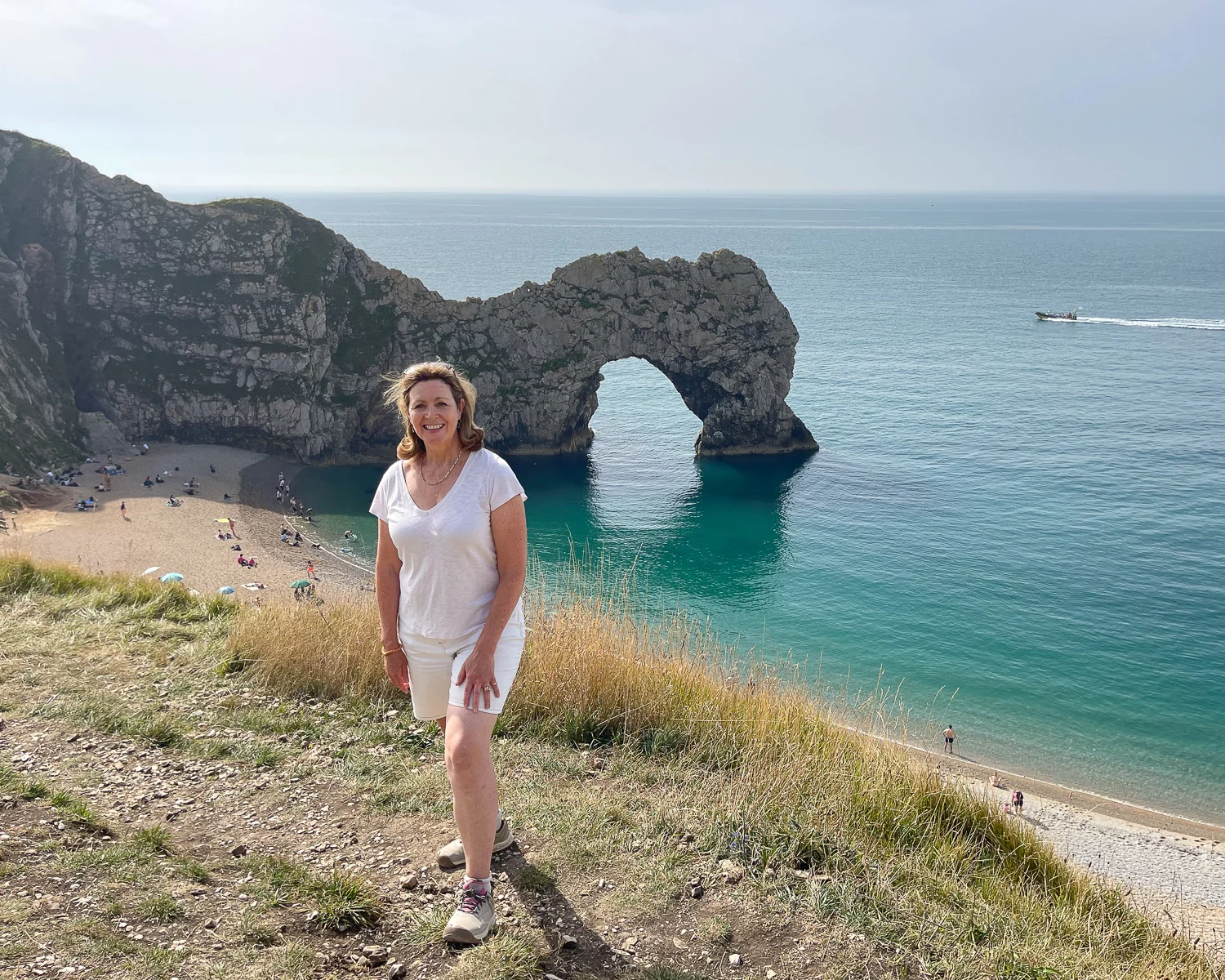
This article may contain affiliate links that provide commission on purchases you make at no extra cost to you. As an Amazon Associate I earn from qualifying purchases.
Top places to visit in Dorset
Dorset is a surprisingly large and varied county in southern England, so to get the most from your time there, here’s an overview of the best places to visit in Dorset.
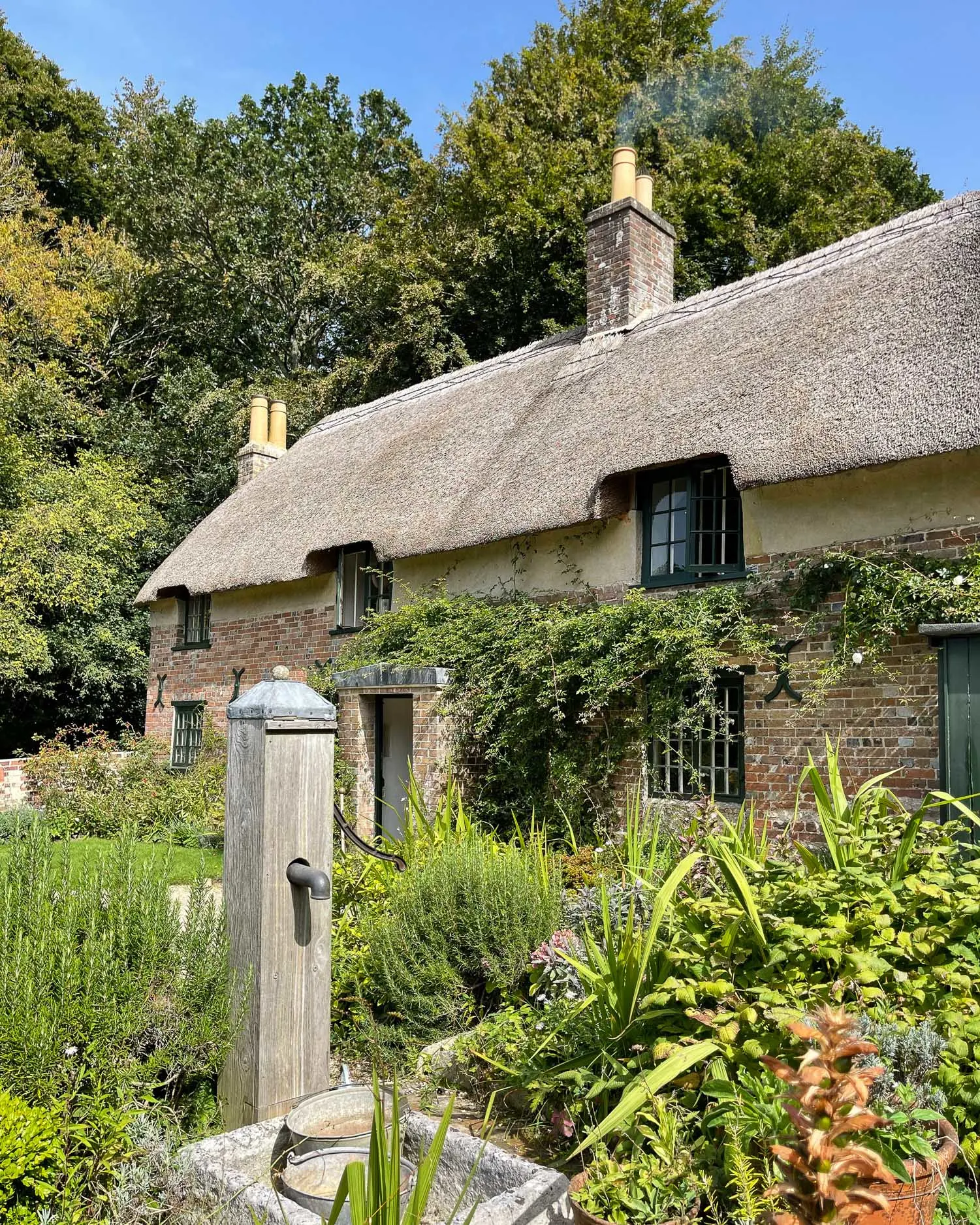
Lyme Regis and Charmouth – This charming fishing town was a favourite of Jane Austin and together with nearby Charmouth is a magnet for fossil hunters.
Lulworth Cove and Durdle Door – Visit the circular Lulworth Cove, a bay created by sea erosion, then walk over the cliffs to the photogenic rock arch at Durdle Door.
Bridport and West Bay – Sample the twice weekly Bridport markets and discover the ‘Broadchurch’ film locations and striking cliffs at nearby West Bay.
Weymouth – Relax in Dorset’s traditional ‘bucket and spade’ seaside resort, with golden sands, donkey rides, ice creams and fish’n’chips.
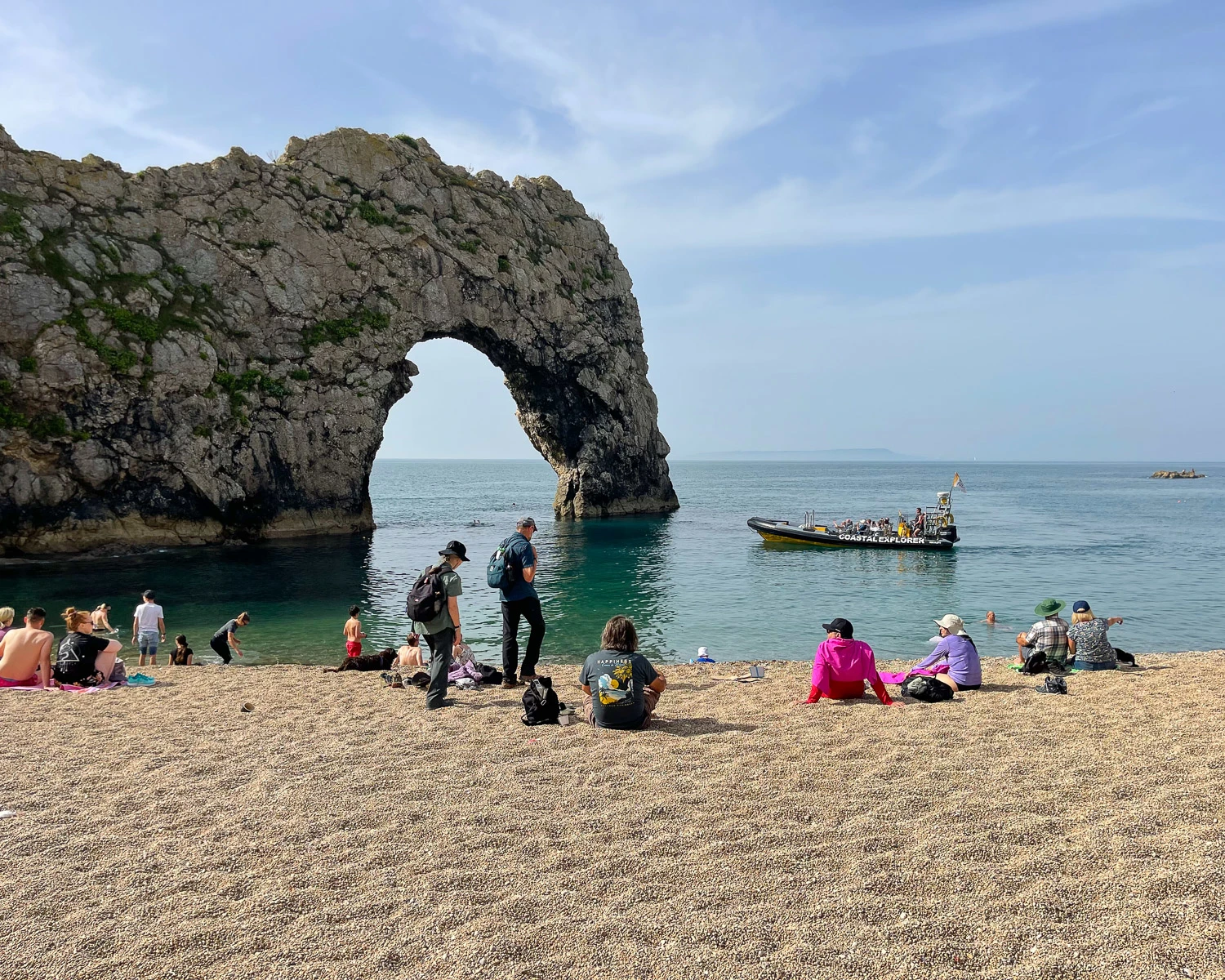
Isle of Portland and Portland Bill Lighthouse – Take a clifftop walk on this small peninsula, famous for its Portland stone quarries overlooking Chesil beach, to see the red and white Portland Bill lighthouse.
Dorchester and Hardy Country – Visit the market town that Thomas Hardy featured in his novels and the two houses where he lived nearby.
Corfe Castle and the Isle of Purbeck – Step back in time with a ruined castle on the hill, ride the vintage steam railway, then head to unspoiled Studland Bay for a clifftop walk to Harry’s Rocks.
Sherborne – Wander through a pretty Dorset town with stylish shops and cafes, as well as an abbey and two historic castles.
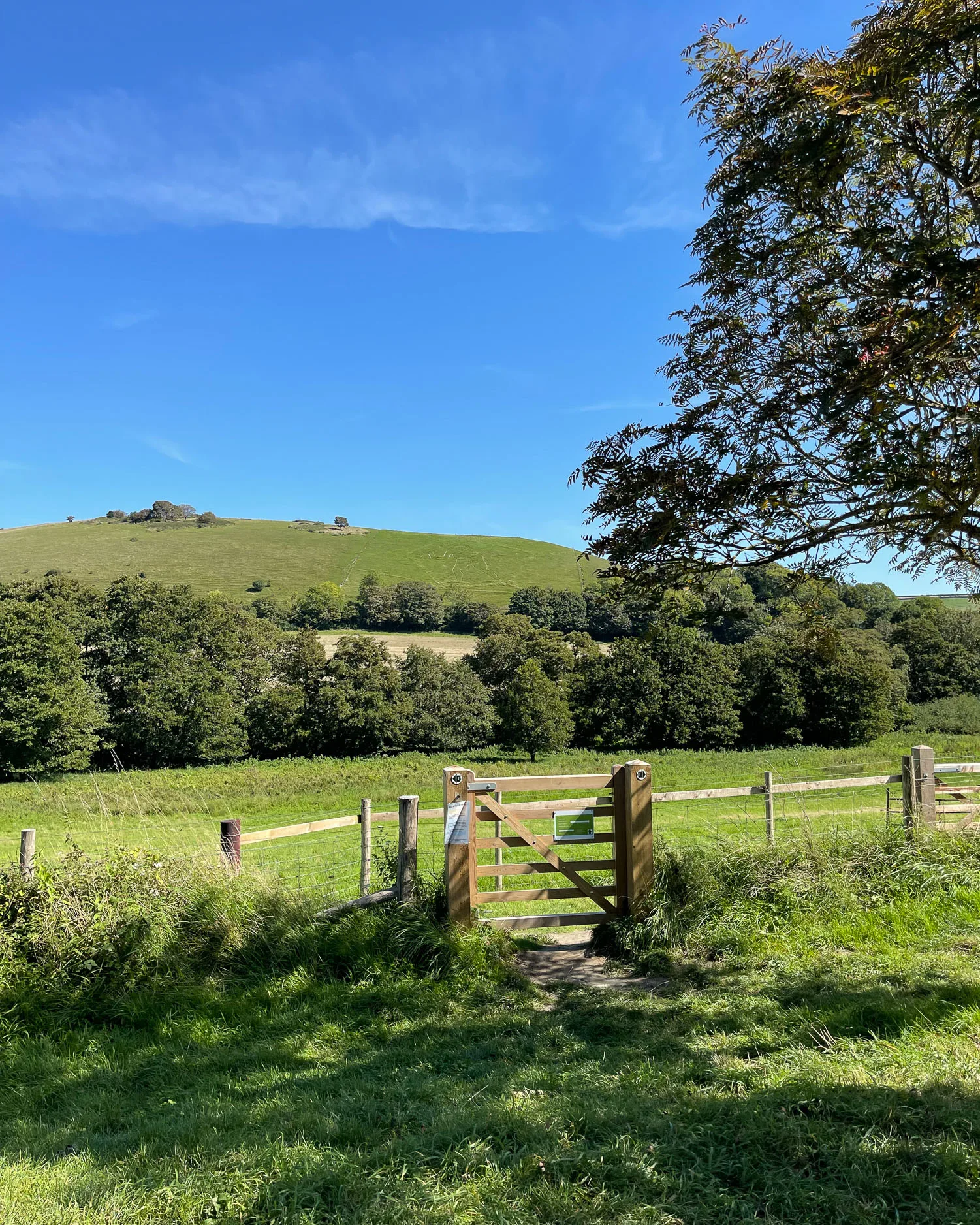
Things to do in Lyme Regis
1. The Town Beach and Cobb at Lyme Regis
Since Jane Austen’s day Lyme Regis has been a popular resort to take the sea air, featuring in novels such as Persuasion and John Fowle’s The French Lieutenant’s Woman. The picturesque harbour is encircled by a broad sea wall known as the Cobb, unusual for its sloping top that allows storm waves to drain away.
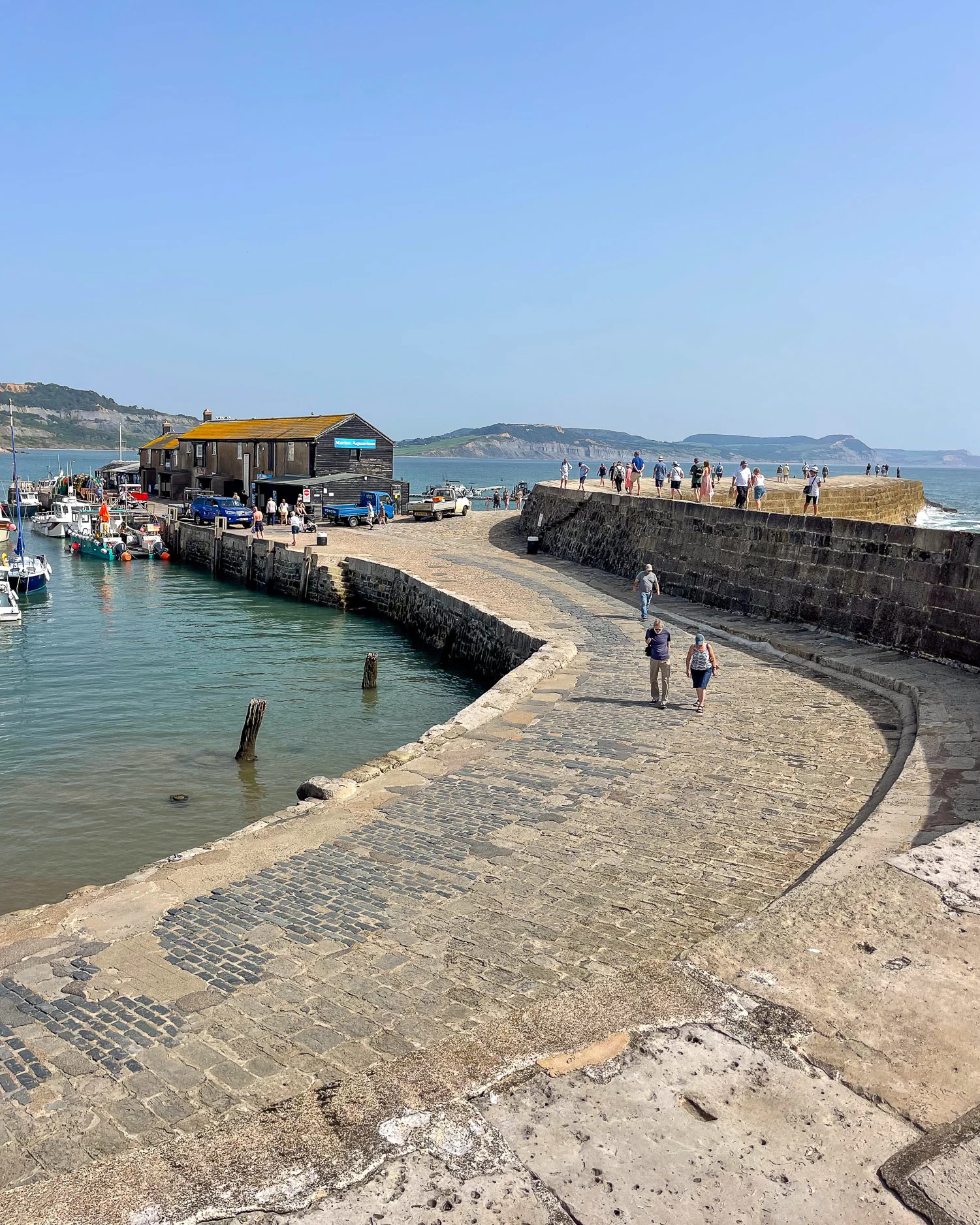
We took a walk along Monmouth Beach, to the west of the Cobb, which is dog friendly. If you continue as far as the cliffs at low tide, you may discover the Ammonite Pavement, where fossils can be seen imprinted in the flat rocks.
The sandy town beach is a popular and busy place to sit or swim. Above it the Marine Parade runs past candy coloured beach huts and a row of picturesque Georgian cottages, with cafes and ice cream stalls.
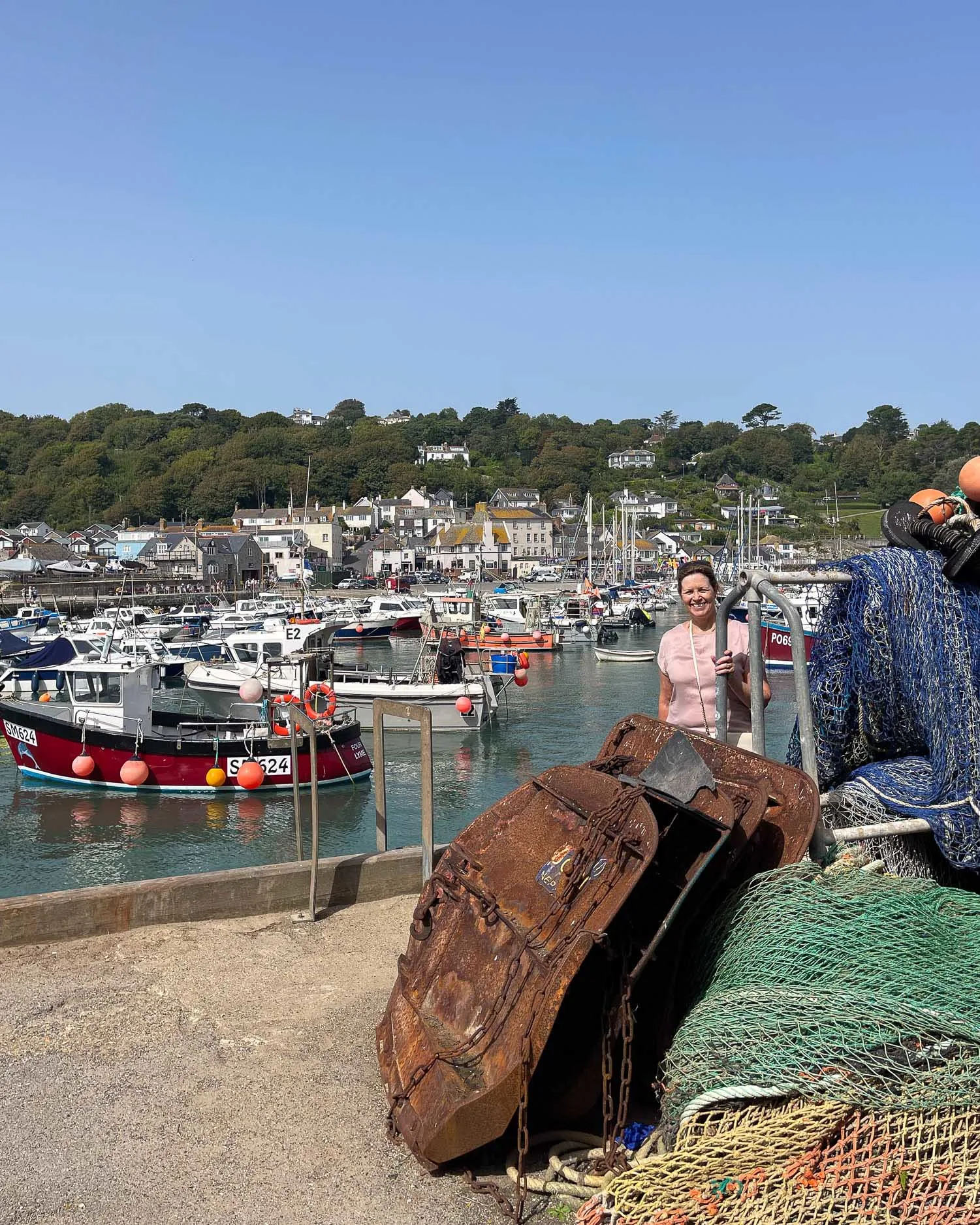
If the beach and promenade feel a bit crowded, head up to the tranquil Langmoor and Lister Gardens, set on the slopes above the beach. At the far end of the promenade, the River Lim meets the sea and the path continues a little further past the Lyme Regis Museum, a good place to see some of the town’s fossils.
Looping back, Lyme Regis’s main street runs up the hill. It’s a great place to browse for artisan gifts and locally produced food specialties.
As one of the prettiest things to see in Dorset, Lyme Regis harbour and beach get lots of visitors, especially in summer. To avoid driving in endless circles, we recommend parking in the large Holmbush Car Park, since many of the smaller car parks fill up quickly.
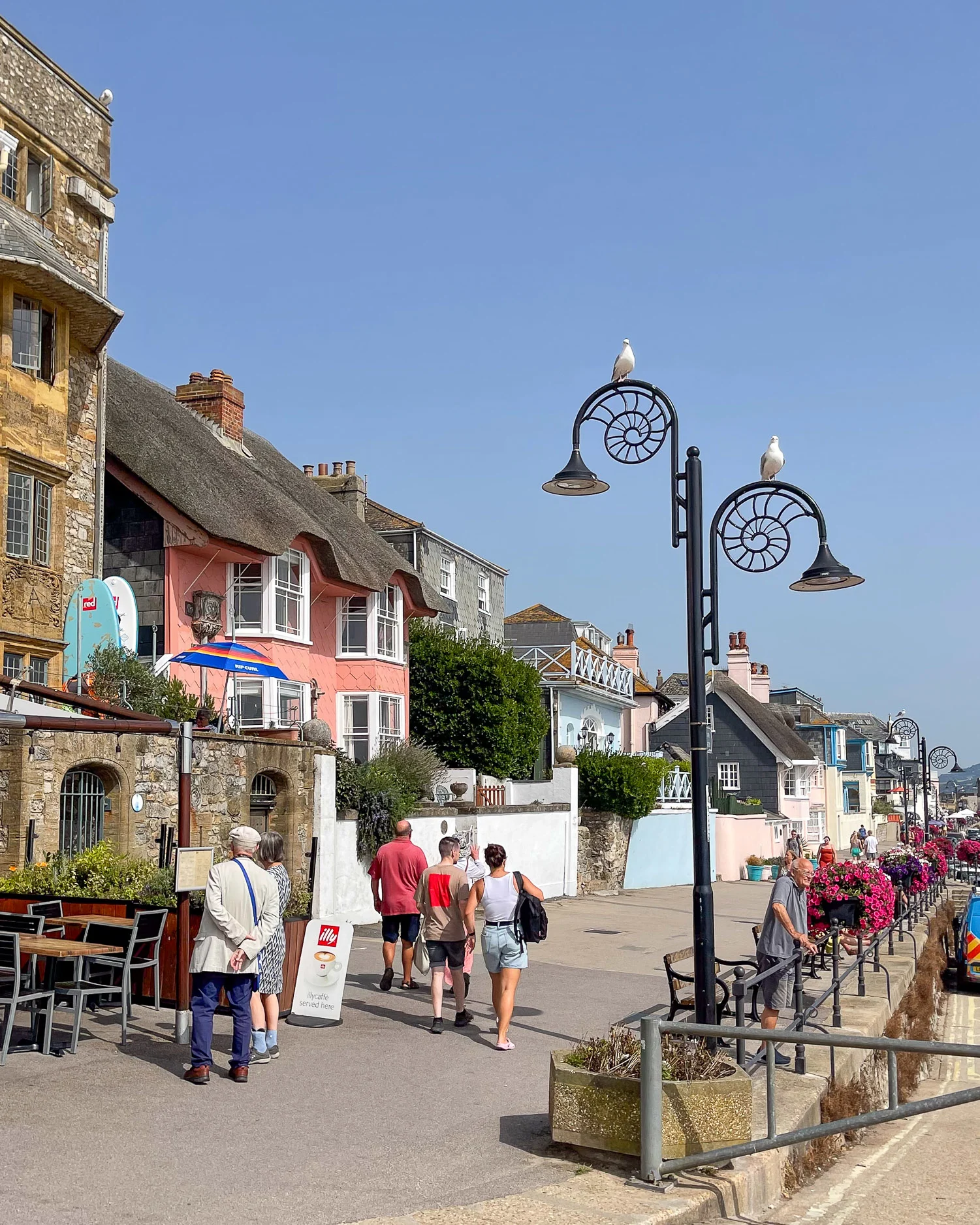
2. Fossil hunting on the Jurassic Coast
Most of Dorset’s coastline is part of the Jurassic Coast, a UNESCO World Heritage site. It’s known for the unique geology and fossils that formed in the Jurassic period millions of years ago. Fossil hunting is one of the more unusual things to do in Dorset that you can’t try elsewhere in England. Perhaps you’ll uncover an ammonite you can proudly display at home!
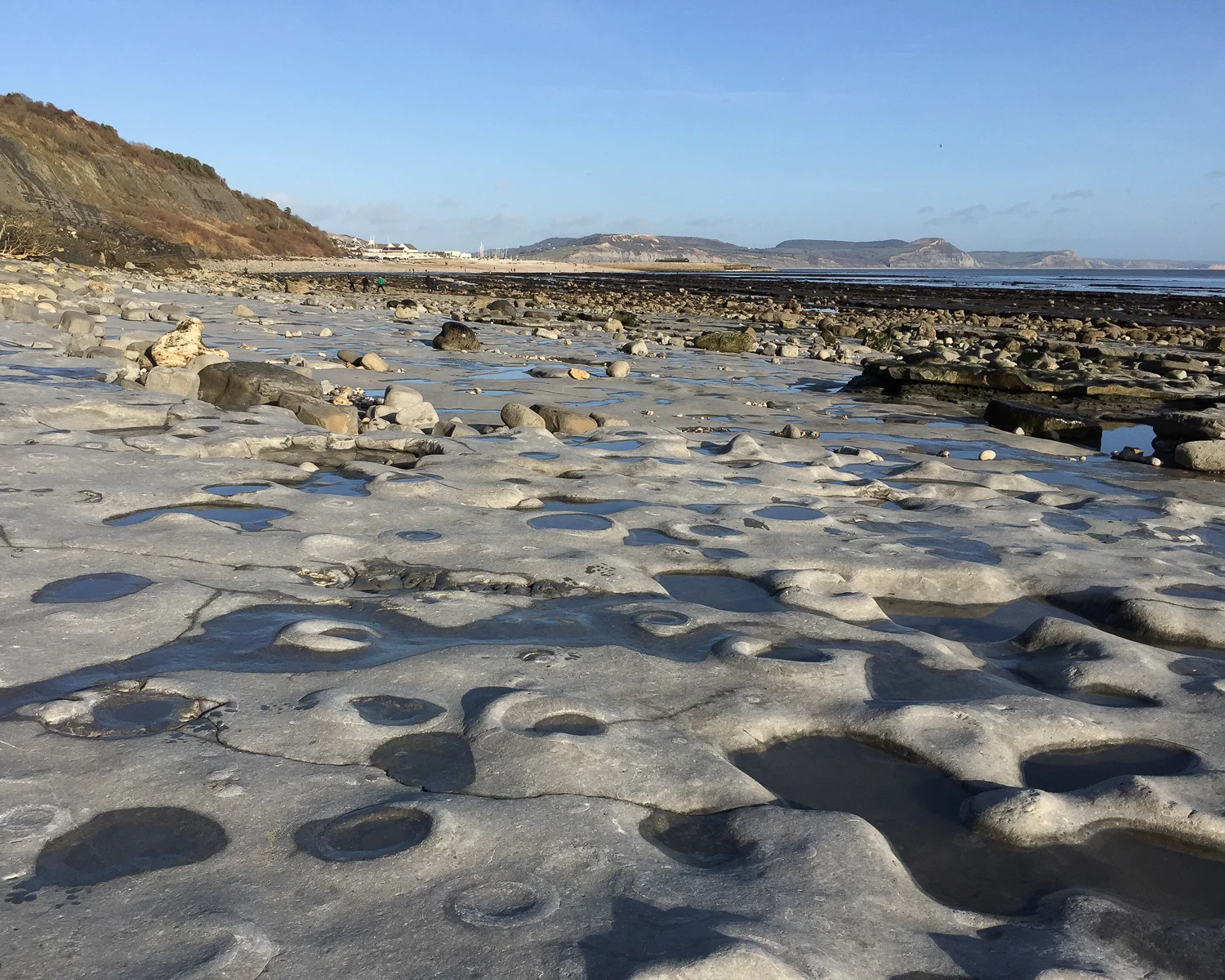
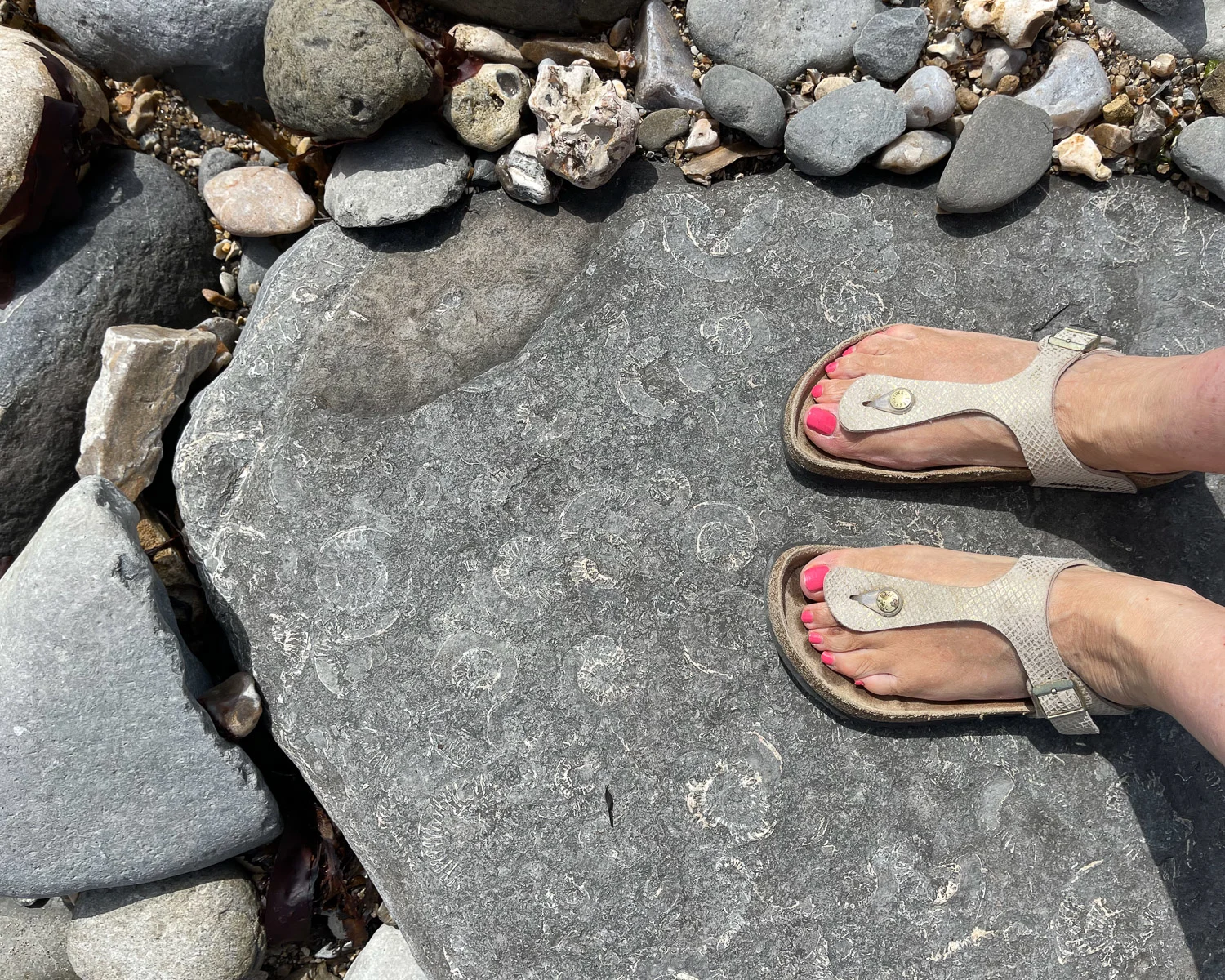
Where to find fossils in Dorset
Check out these great places to learn more about or find fossils in Dorset.
- Walk along Lyme Regis Monmouth beach to see the Ammonite pavement at low tide.
- The Lyme Regis Museum is housed in the home of famous fossil hunter, Mary Anning. There are displays of her fossil collections and the museum runs fossil hunting beach walks.
- Dinosaurland Fossil Museum is a privately run museum in Lyme Regis old town that has 16,000 different fossils on permanent display.
- Charmouth Beach is a good fossil hunting location, with free displays at the Charmouth Heritage Centre where volunteers run fossil hunting walks.
- At Kimmeridge, the Etches Collection is a small museum that houses an extensive collection of marine fossils, many of them found nearby on Kimmeridge beach.
- The Dinosaur Museum in Dorchester displays fossils from the Jurassic coast as well as reconstructions of larger dinosaurs.
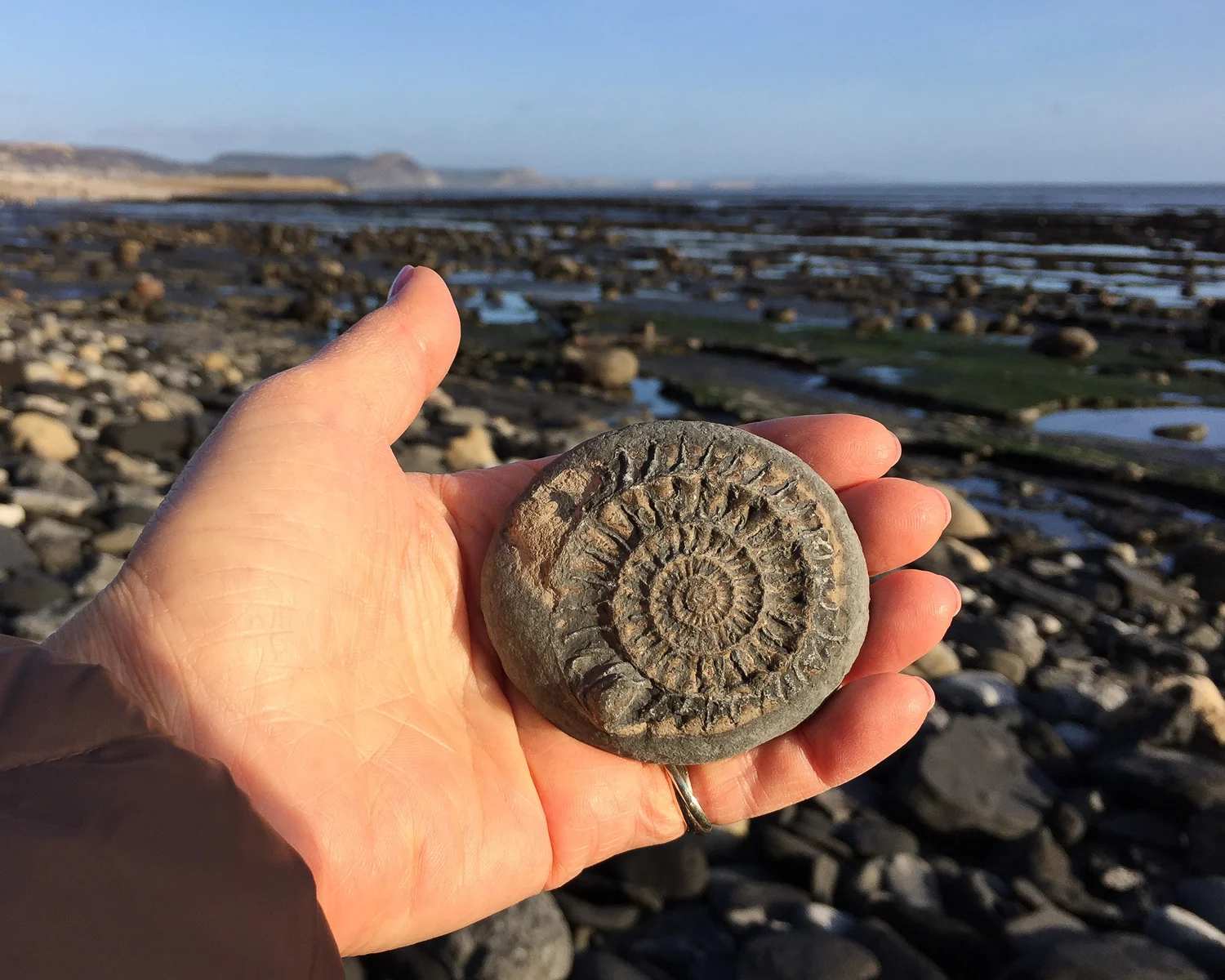
3. Charmouth and the Charmouth Heritage Centre
Just along the coast from Lyme Regis is Charmouth beach, another good place for fossil hunting with a long sandy beach. Rock falls from the towering cliffs often reveal fresh finds of ammonites. For this reason take care not to sit or walk too close beneath them.
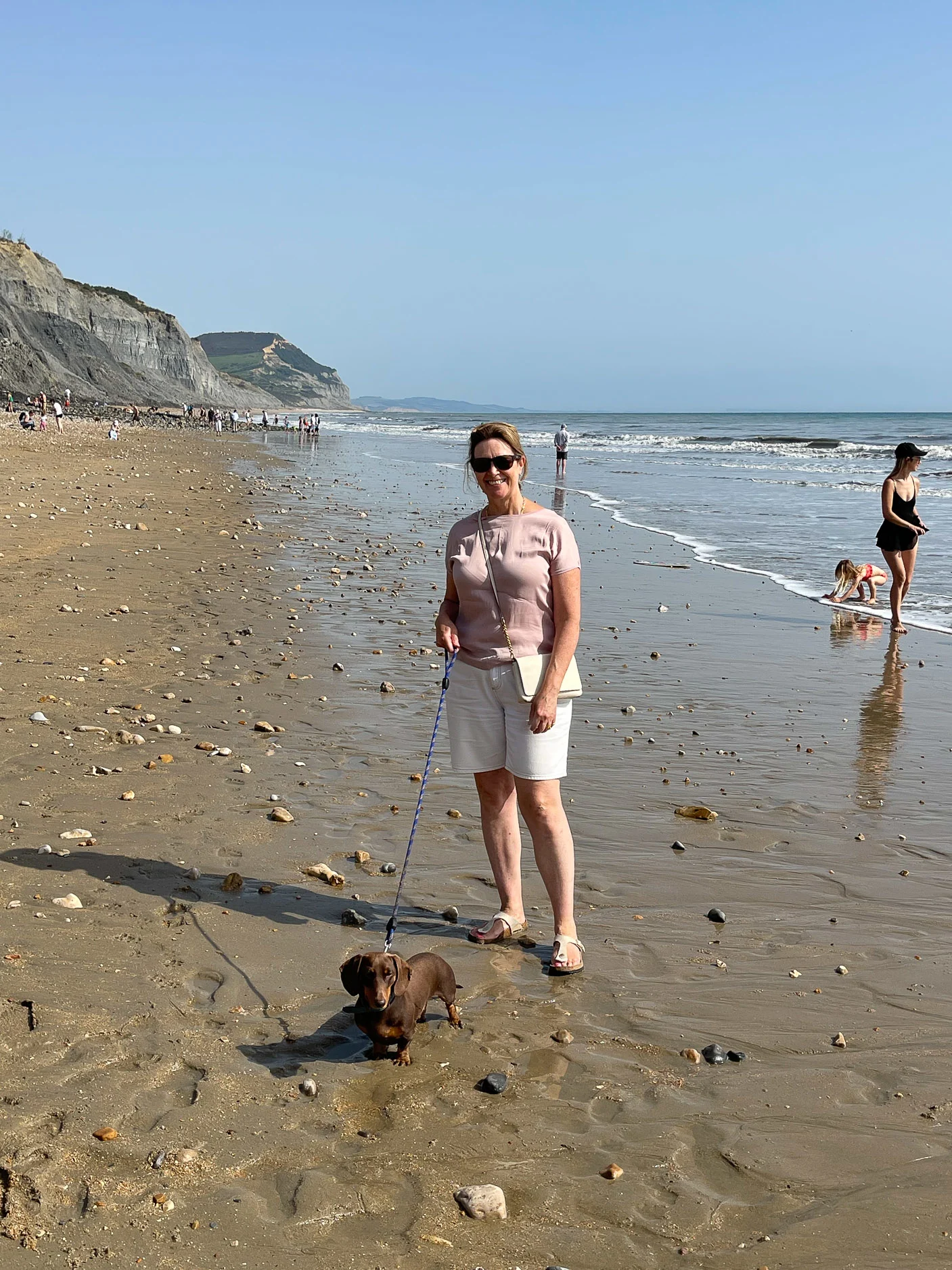
At Charmouth the river runs into the sea, creating shallow pools for children to play. The Charmouth Heritage Centre is right on the beach and has an excellent mini-museum full of fossils, which is free to visit.
Volunteers also run fossil hunting walks on the stony shore where you can easily find the conical fossils of squid like belemnites.
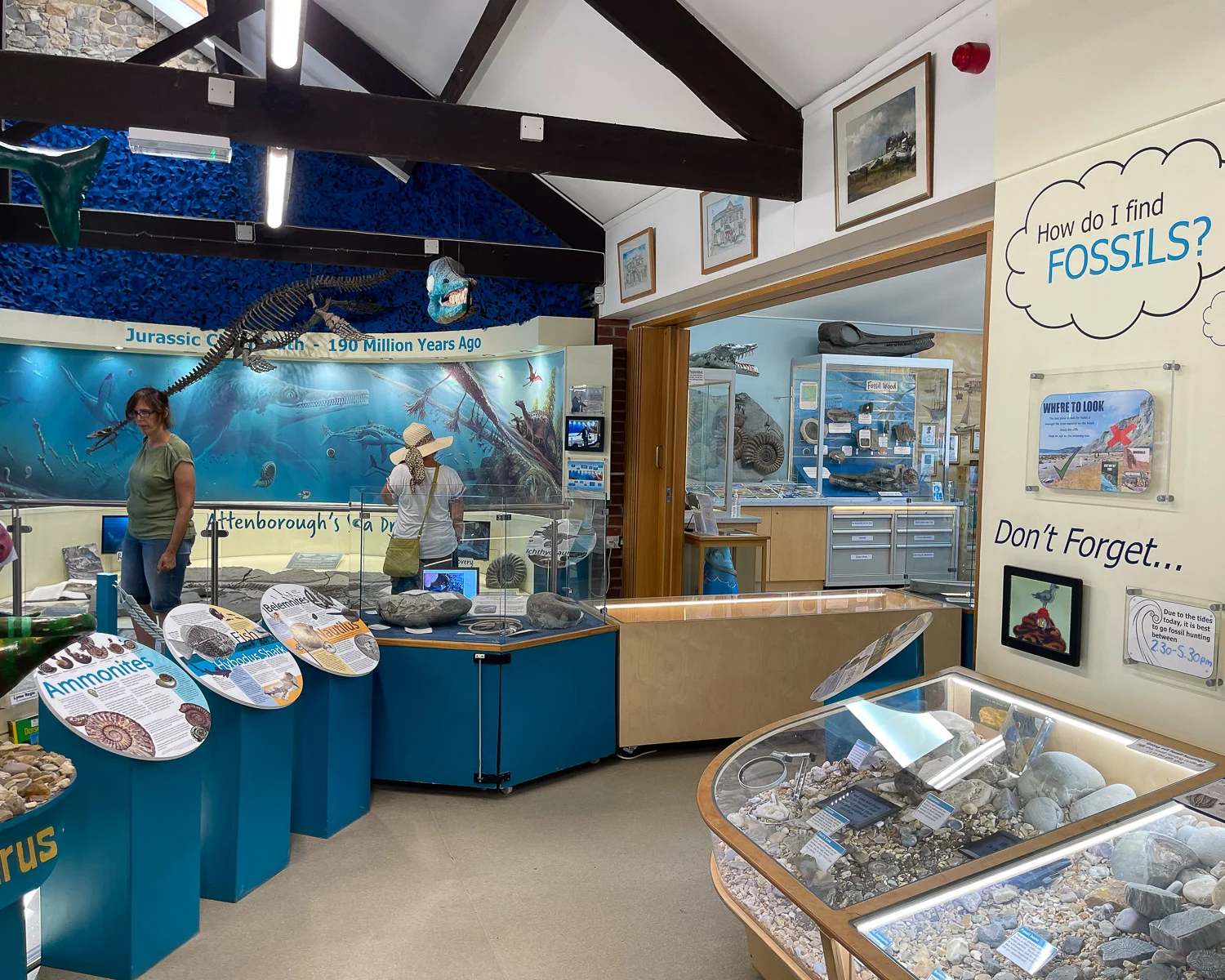
Charmouth is a good place to stretch your legs on the South West Coastal Path. The walk takes you west to Lyme Regis or east to Golden Cap, the highest point on the Dorset coast and beyond to West Bay.
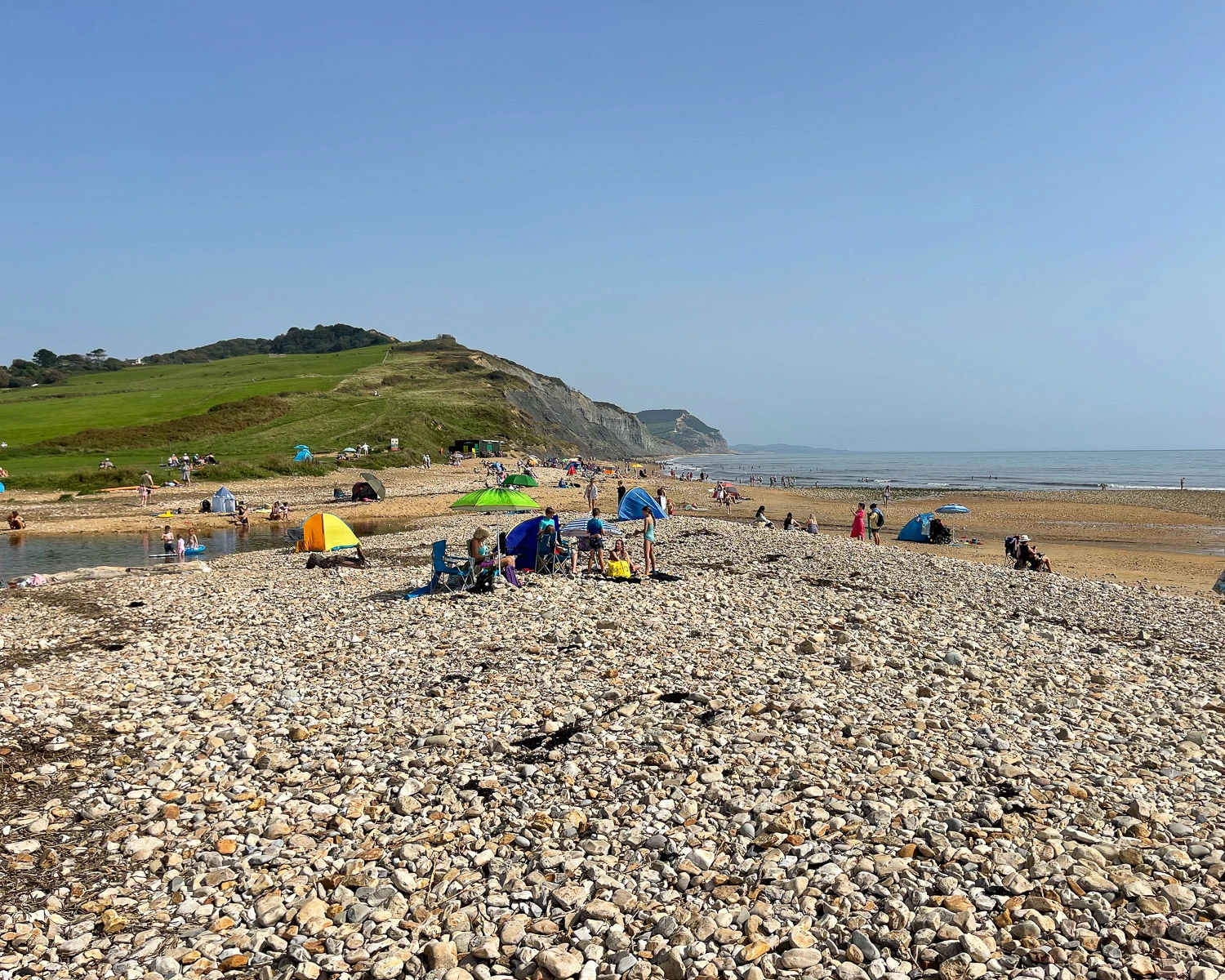
Where to stay in Dorset
While there’s a whole range of accommodation options in Dorset, we can recommend a cottage stay to get that quintessential English countryside experience. We stayed with Classic Cottages who have a wide range of cottages in Dorset.
Choose from cosy nests for a romantic couple’s getaway, or larger holiday homes that would be perfect for an extended family gathering.
Stay at Seymour Barn with Classic Cottages
We loved our stay at Seymour Barn with Classic Cottages, which made an ideal base to explore Dorset. The location on the edge of Bridport was perfect, since we were surrounded by green fields but could walk into Bridport town centre.
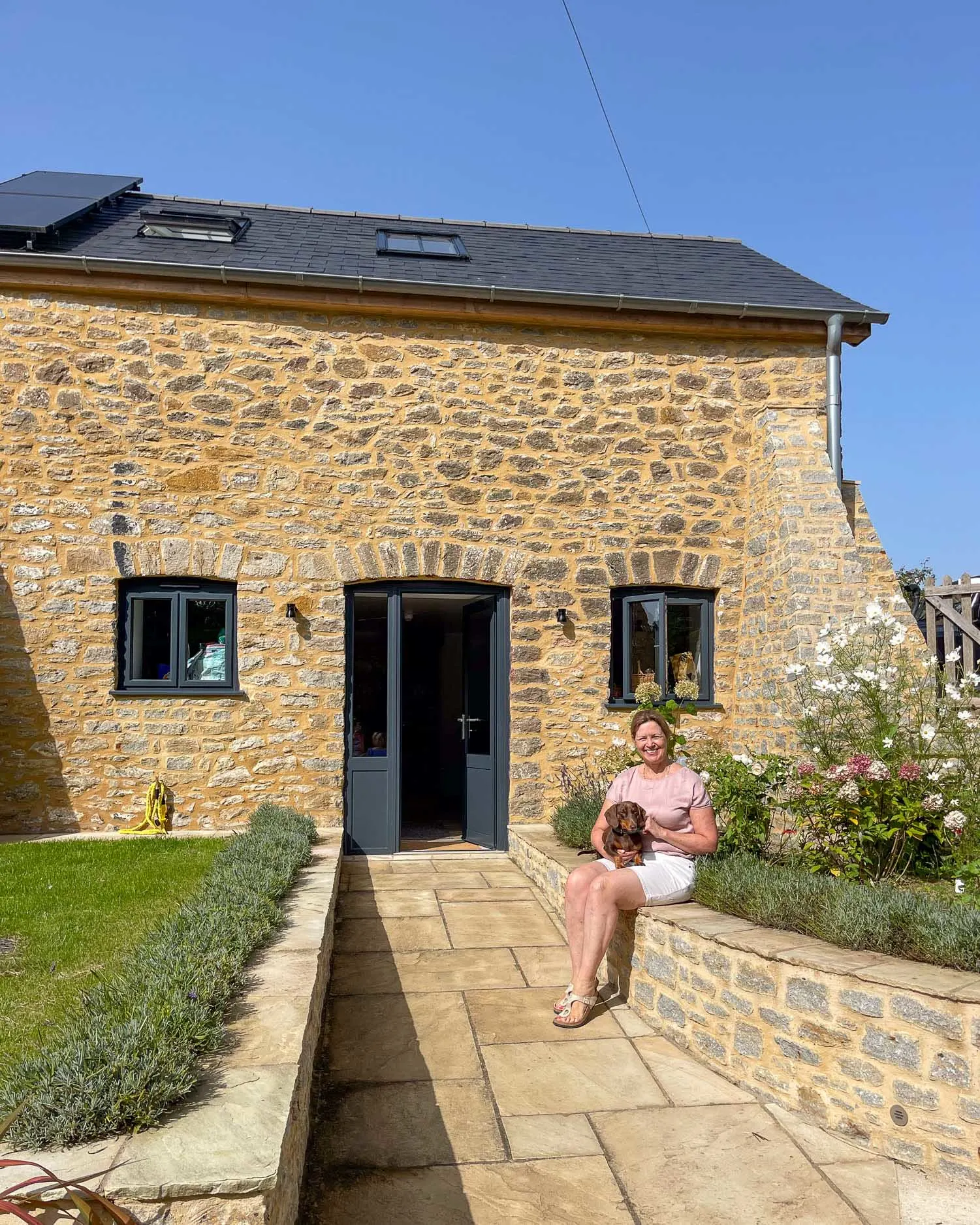
This holiday home had been newly converted from an old stone barn adjoining the owners’ thatched house. As part of the renovations they had made the cottage as eco-friendly as possible.
The full insulation, solar panels and heat exchange pump were designed to keep the cottage cosy, while reducing its carbon footprint. There was also an electric car charging point and lots of information about recycling and local things to do. (Check out other eco-friendly cottages here).
The barn was elegantly practical with natural stone and wood floors, as well as a stylish mix of contemporary and antique furnishings drawn from the local area.
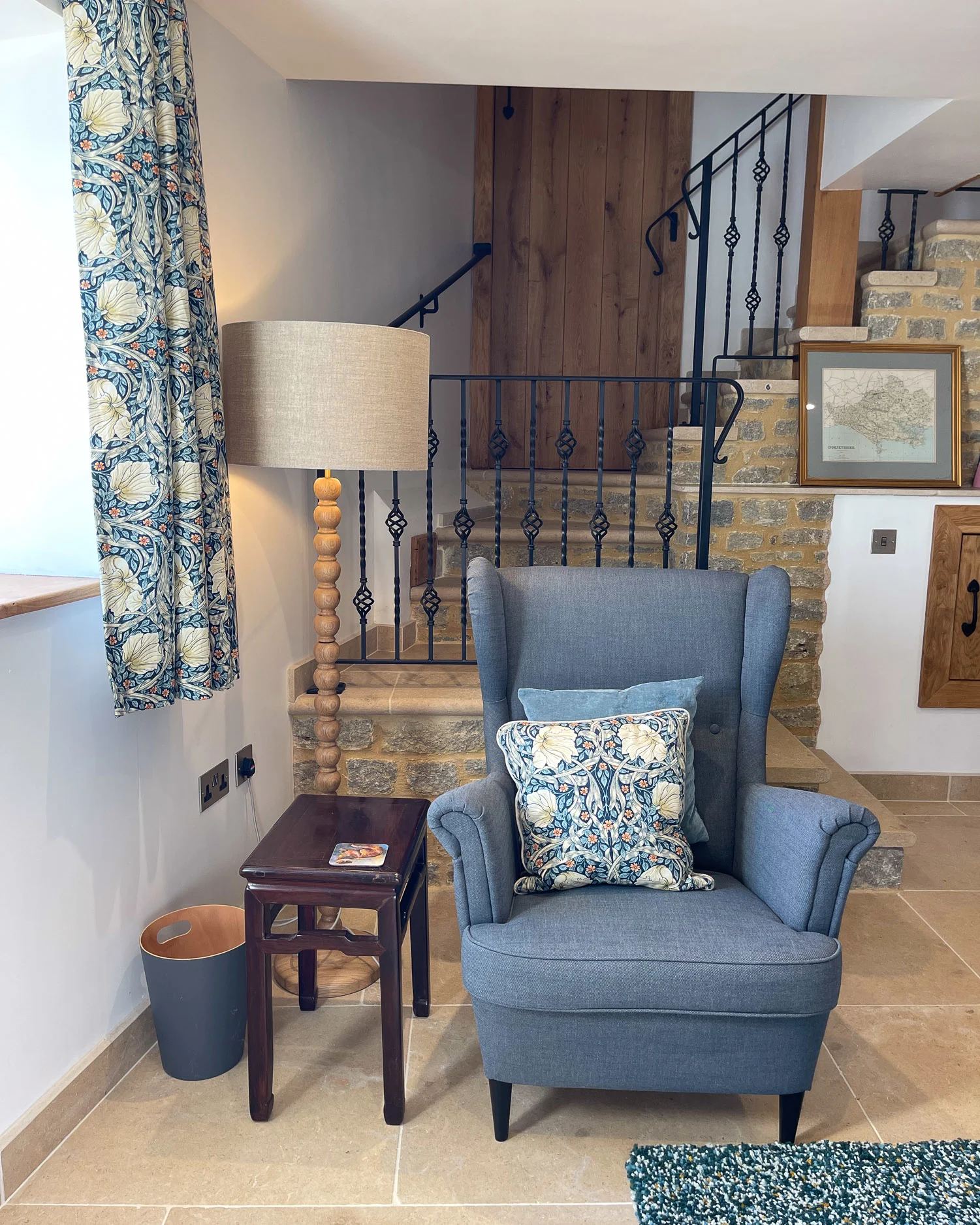
Our dog friendly cottage
Best of all Seymour Barn was dog-friendly which pleased our special guest for the weekend. Bertie the Dachshund appreciated the cosy dog bed and doggie welcome pack that awaited him.
There was a list of dog friendly walks from the front door, although the garden was not fully enclosed, so we did have to keep an eye on naughty Bertie while on the terrace.

Downstairs we found a spacious new kitchen with dining and sitting area, as well as a separate sitting room with TV and doors out to the terrace so we could dine al fresco.
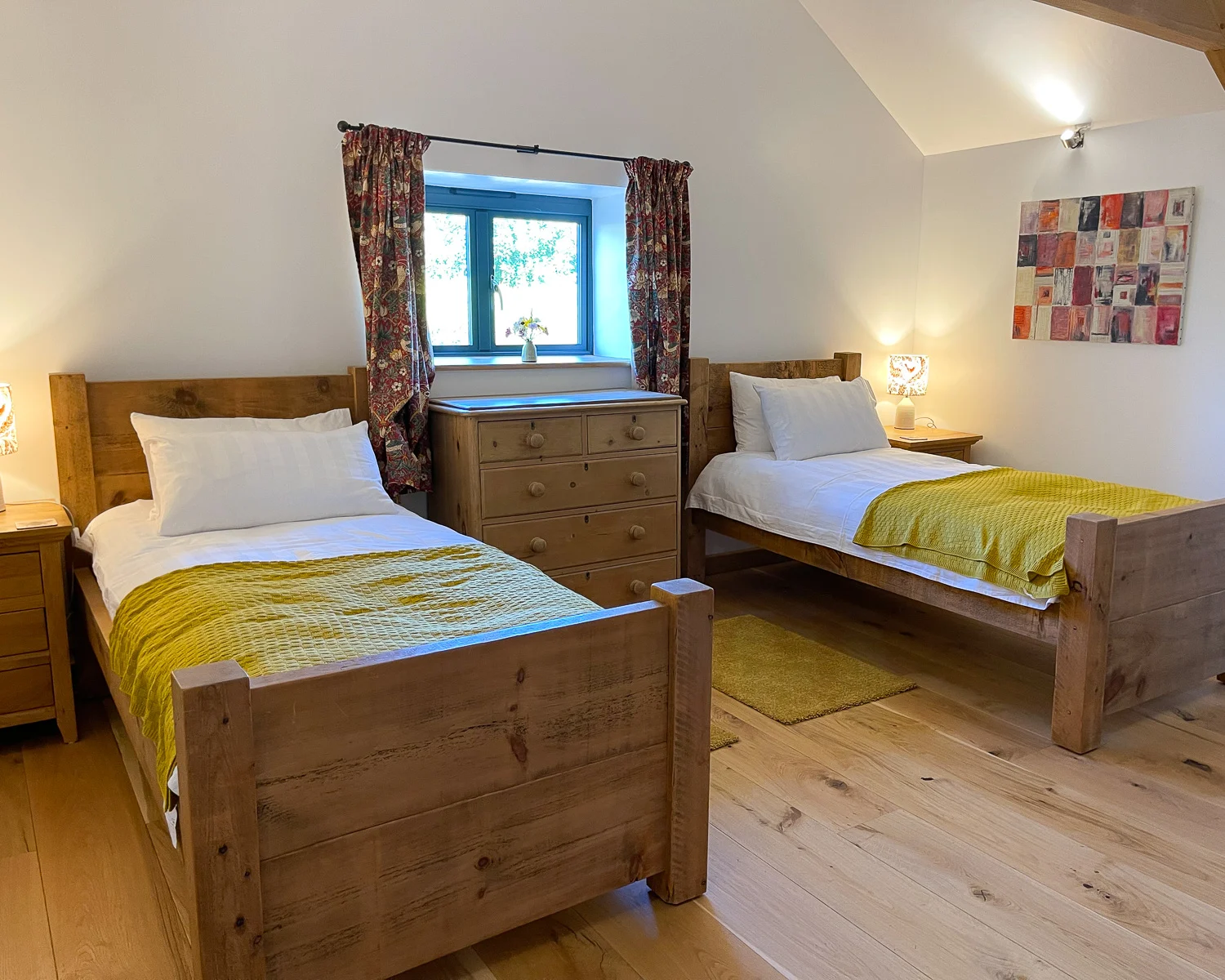
Upstairs were two stylish bedrooms, each with their own shower room, one with a comfy king size and the other with twin beds. We enjoyed the views over the fields, the work of local artists on the wall and extra touches like the flourishing house plants, pretty garden flowers and vintage pieces.
For more on where to stay and what to do with your dog, read our article on dog friendly cottages in Dorset.

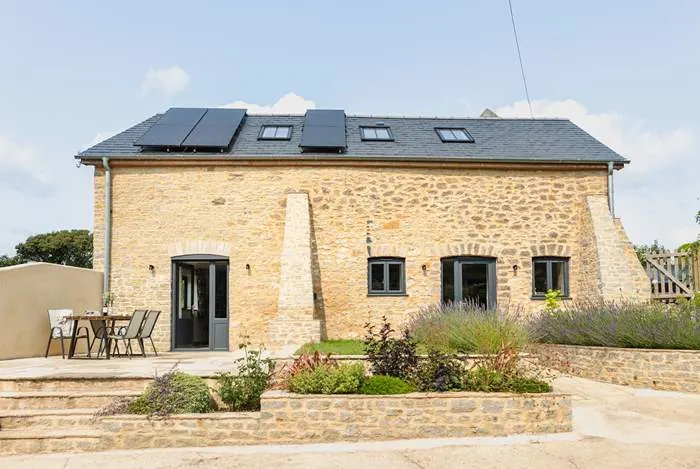
Seymour Barn – book to stay in this 2 bedroom dog friendly converted barn in the countryside near Bridport
Things to do in Bridport
4. Bridport – for the markets and antique shopping
With a main road running through Bridport, the town doesn’t immediately reveal itself when you drive through. Better to park the car and wander around, to get a feel for the authentic charms of this thriving Dorset market town.
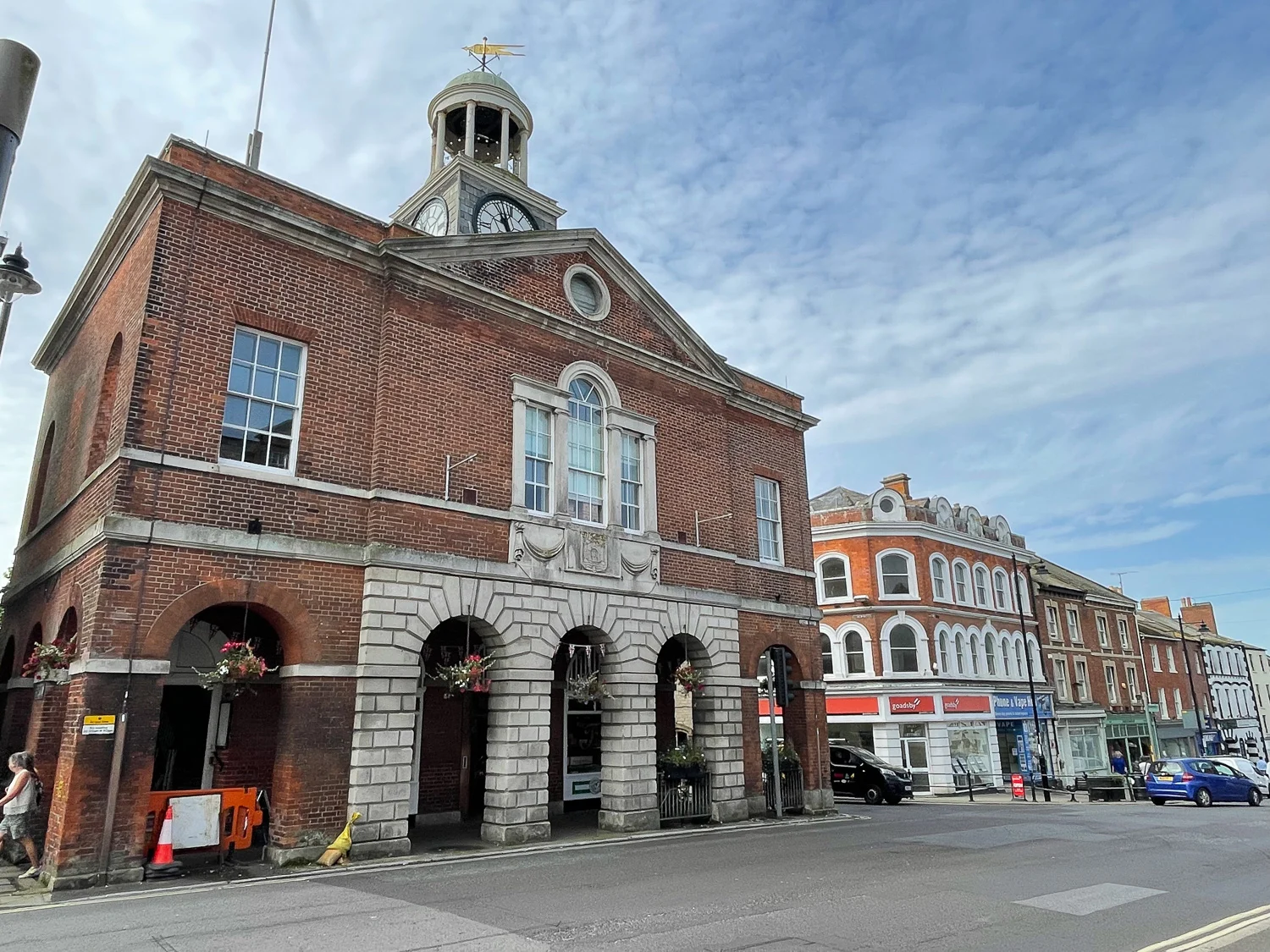
The famous Bridport market is held on Wednesdays and Saturdays, taking over three of the town’s main streets. Independent businesses are strong in Bridport and the town has something of a foodie reputation.
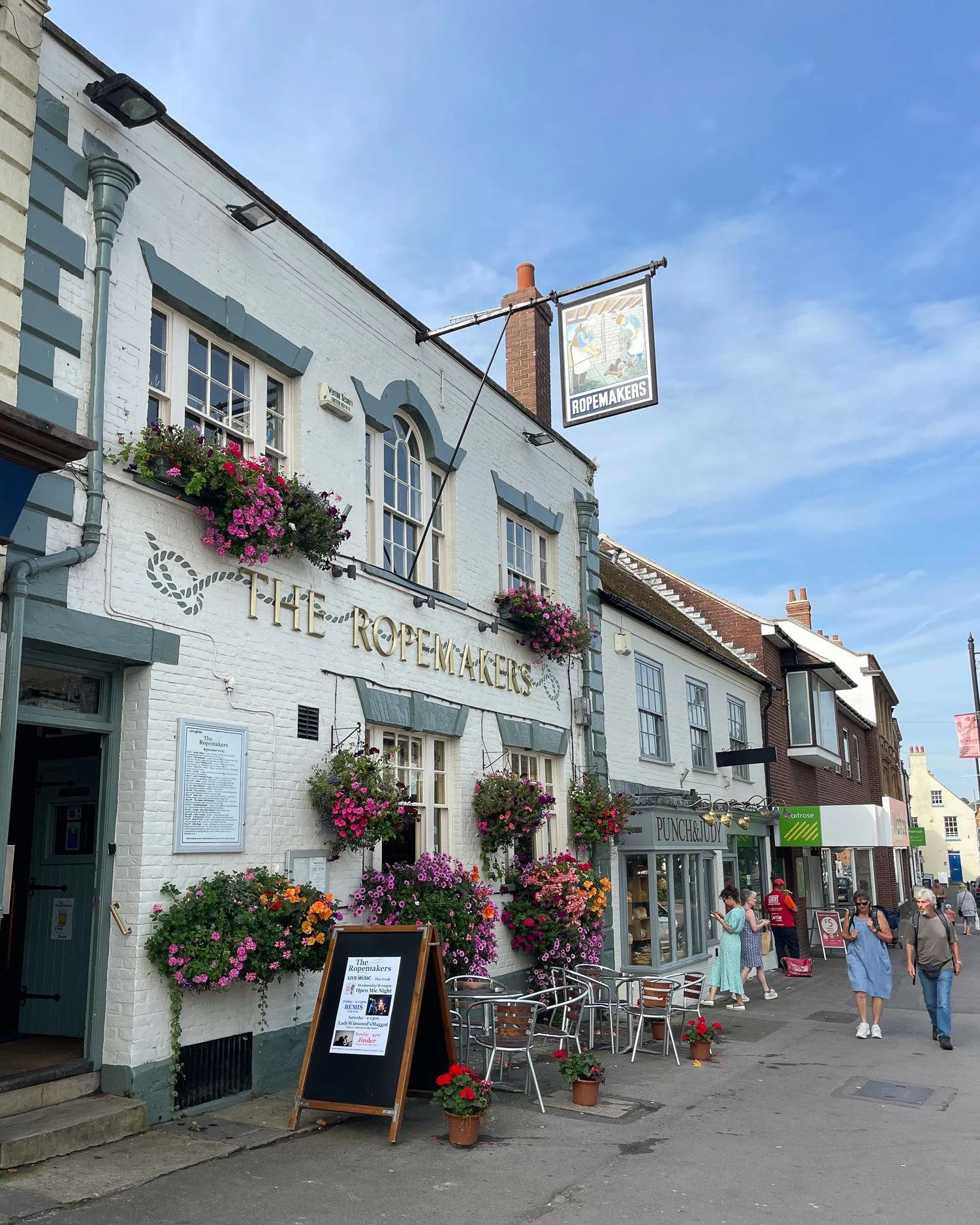
In addition to the twice weekly market, there’s a monthly farmer’s market and the Bridport food festival is held in June. Look out for Moore’s Bakery Shop selling the famous Dorset Knob biscuit and the 18th century thatched building of Palmer’s Brewery for cask ales. We also enjoyed shopping for local goodies at Washingpool farm shop, near our cottage on the outskirts of Bridport.

If you like browsing for antiques and collectables, the St Michael’s Trading Estate is home to a number of vintage and antique shops. Stop at the Bridport Tourist Information centre in the Old Town Hall to check what’s going on, or discover the area’s history in the small Bridport Museum.
5. West Bay – a gorgeous sandy beach and harbour
Just down the road from Bridport on the coast is West Bay, which was the town’s seaport. My impression was of a seaside town with a dual personality.
On the east side of town is a gorgeous sandy beach backed with attractive old houses and heritage buildings. But around the harbour is more down to earth, with kiosks selling ice creams or fish & chips, an amusement arcade and modern holiday apartments.
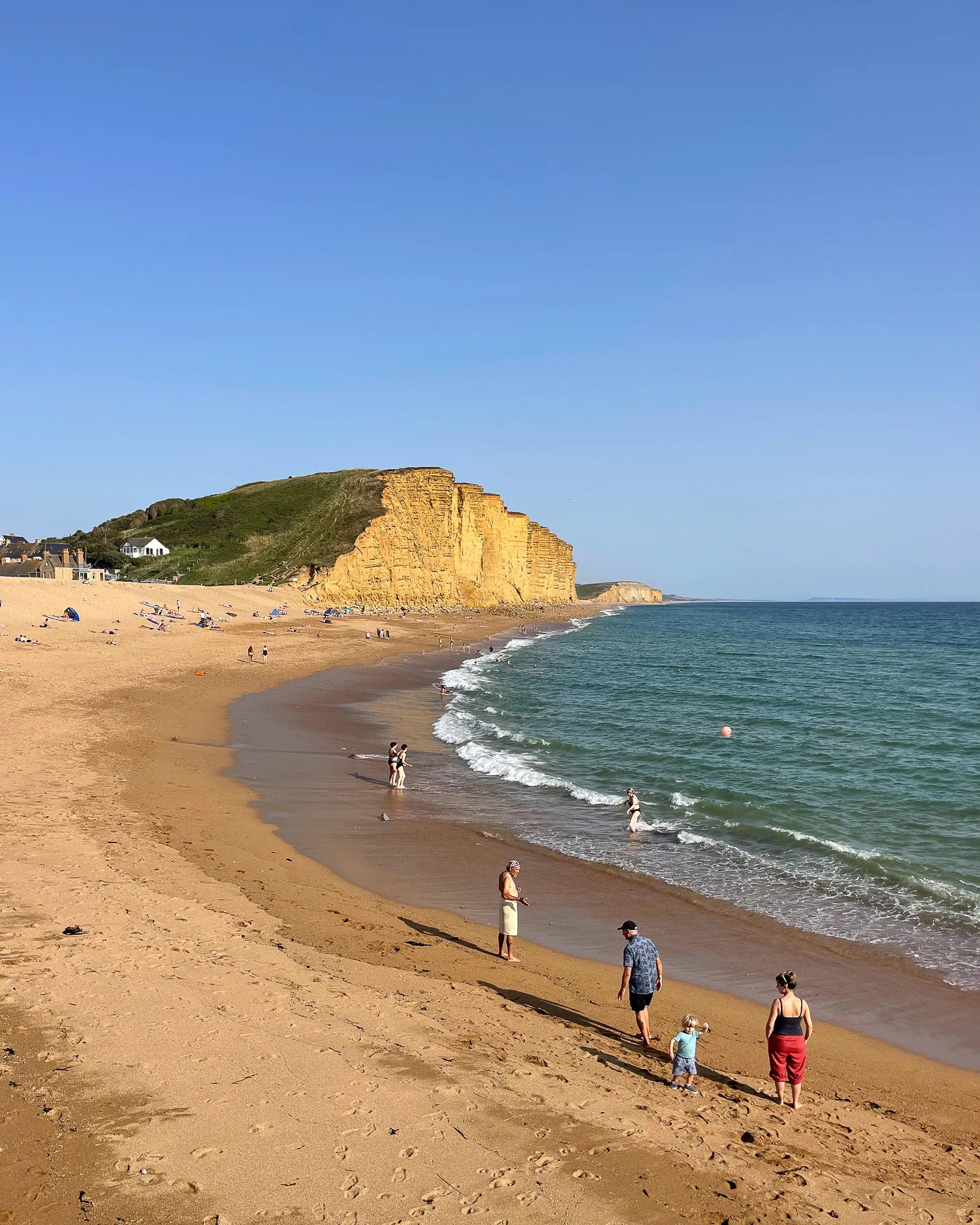
In a former Methodist Church is the West Bay Discovery centre, where on Thursday mornings, there’s a 90 minute guided walk, lead by one of the centre’s volunteers.
The Customs House Emporium is a whole warehouse full of antique stalls and Slader’s Yard offers exhibitions of contemporary art and furniture in a Georgian rope warehouse. There are plenty of independent cafes dotted around the village – check out the Watch Bay Cafe right on the beach.
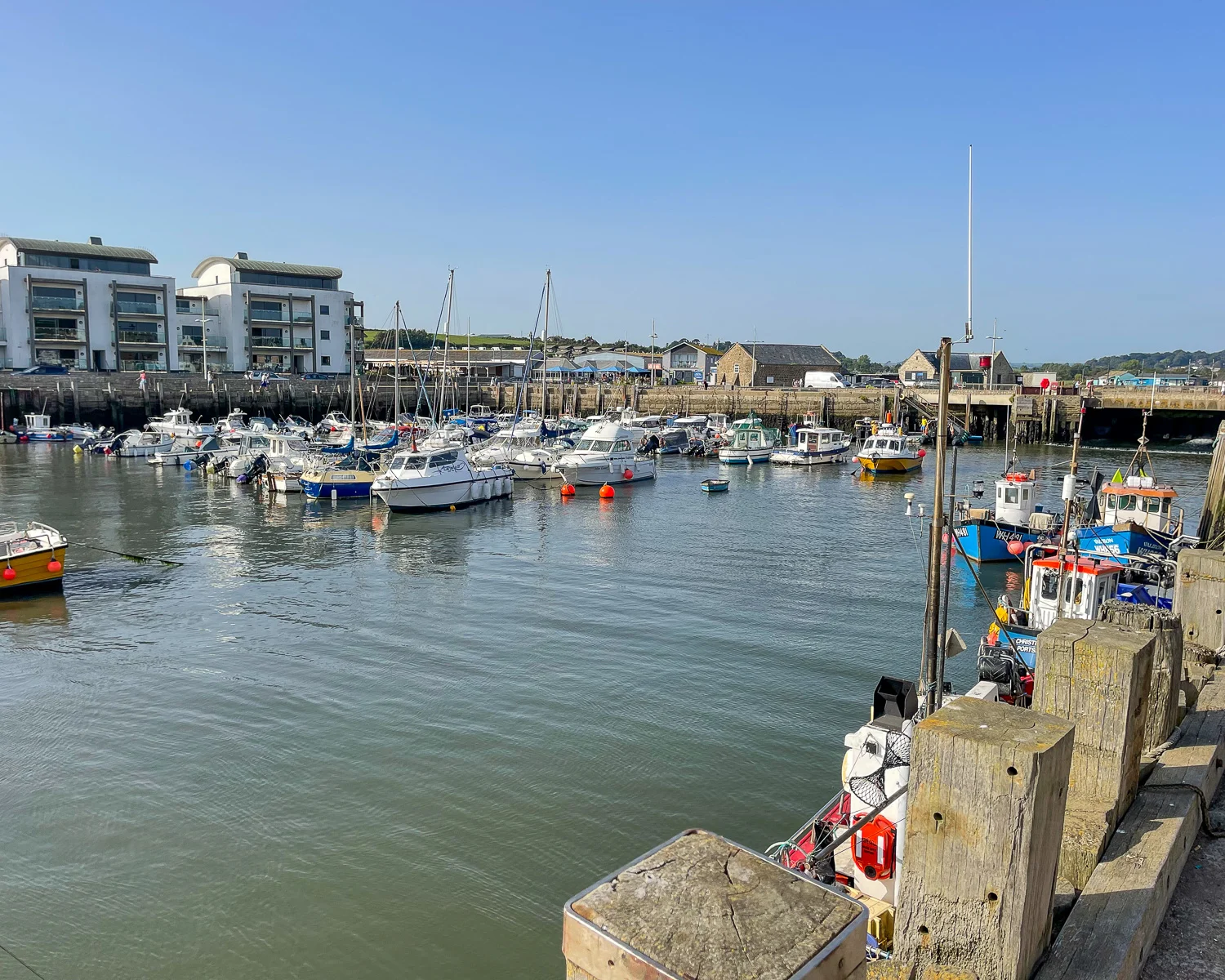
The River Brit runs right up to West Bay harbour, where its flow is controlled by sluice gates. The resulting marine lake offers rowing boats for hire. To enjoy those river views head to Rise Cafe Bar, a casual restaurant with terrace overlooking the river, or for more traditional pub fare try The George just opposite.
6. Discover the Broadchurch film locations of West Bay
I’m a big fan of the BAFTA award winning detective drama Broadchurch, created by local writer Chris Chibnall, much of which was set in and around West Bay. The beach and looming cliffs of West Bay are main characters within the drama, so it was fun spotting some of the Broadchurch film locations when we visited.
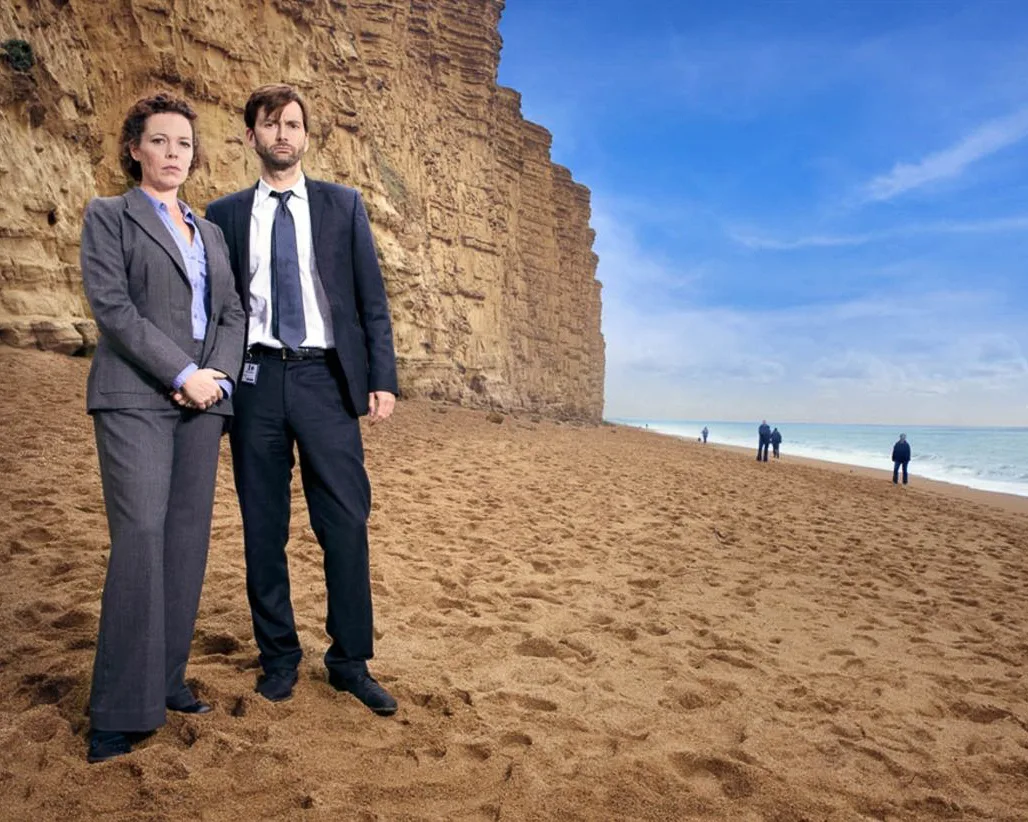
The beach is one of the main film locations where a body is discovered and where the police try and uncover the murder mystery. Within West Bay village, the Discovery Centre, housed in an old Methodist Hall doubles as the Sea Brigade Hall, while the gift shop with a post box outside was used as a newsagent owned by one of the murder suspects.
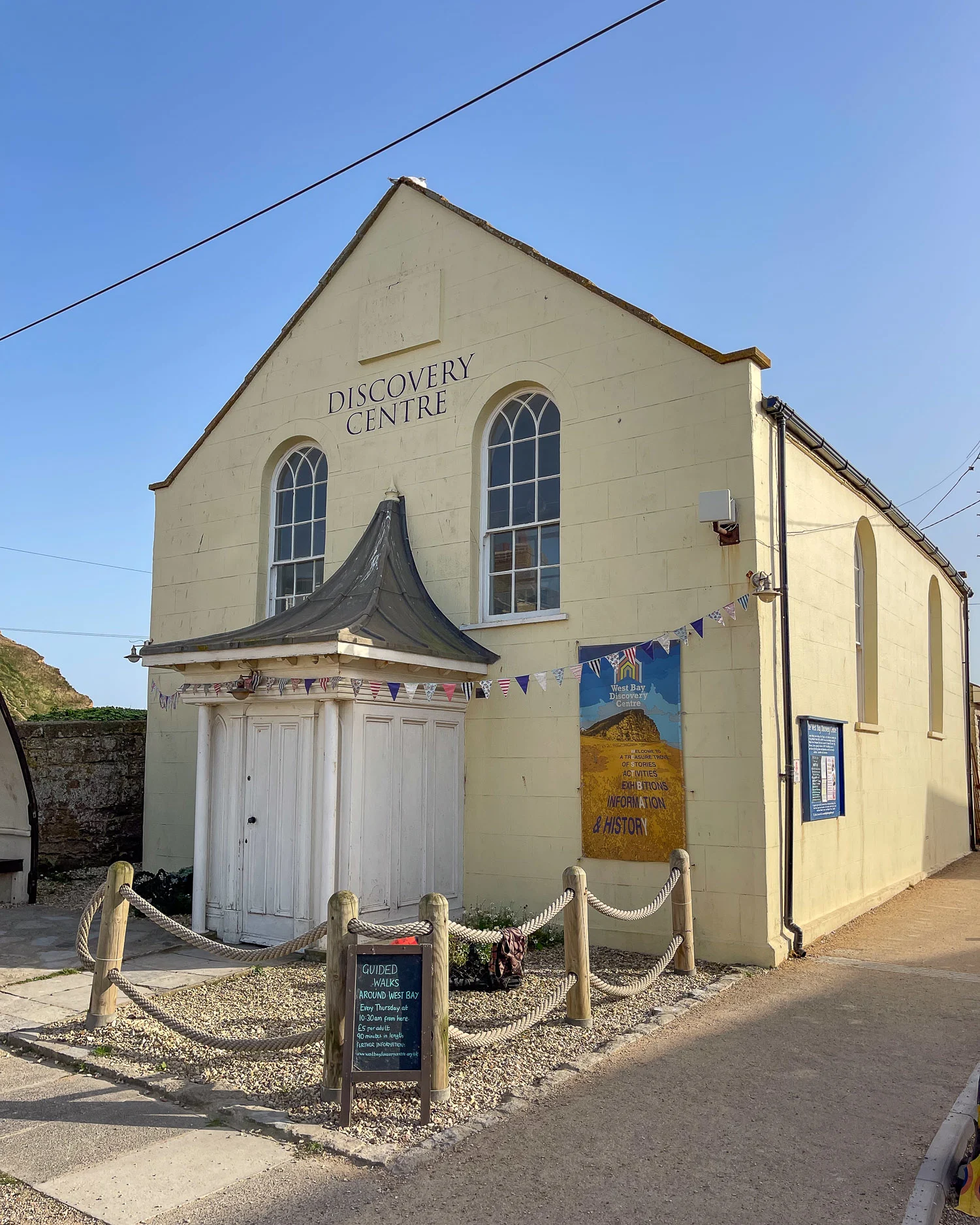
The pretty wooden summerhouse on the cliff that was used as a murder scene in Series 1 is located close to West Bay at Eype Beach, although it’s privately owned, so you can only look from a distance.
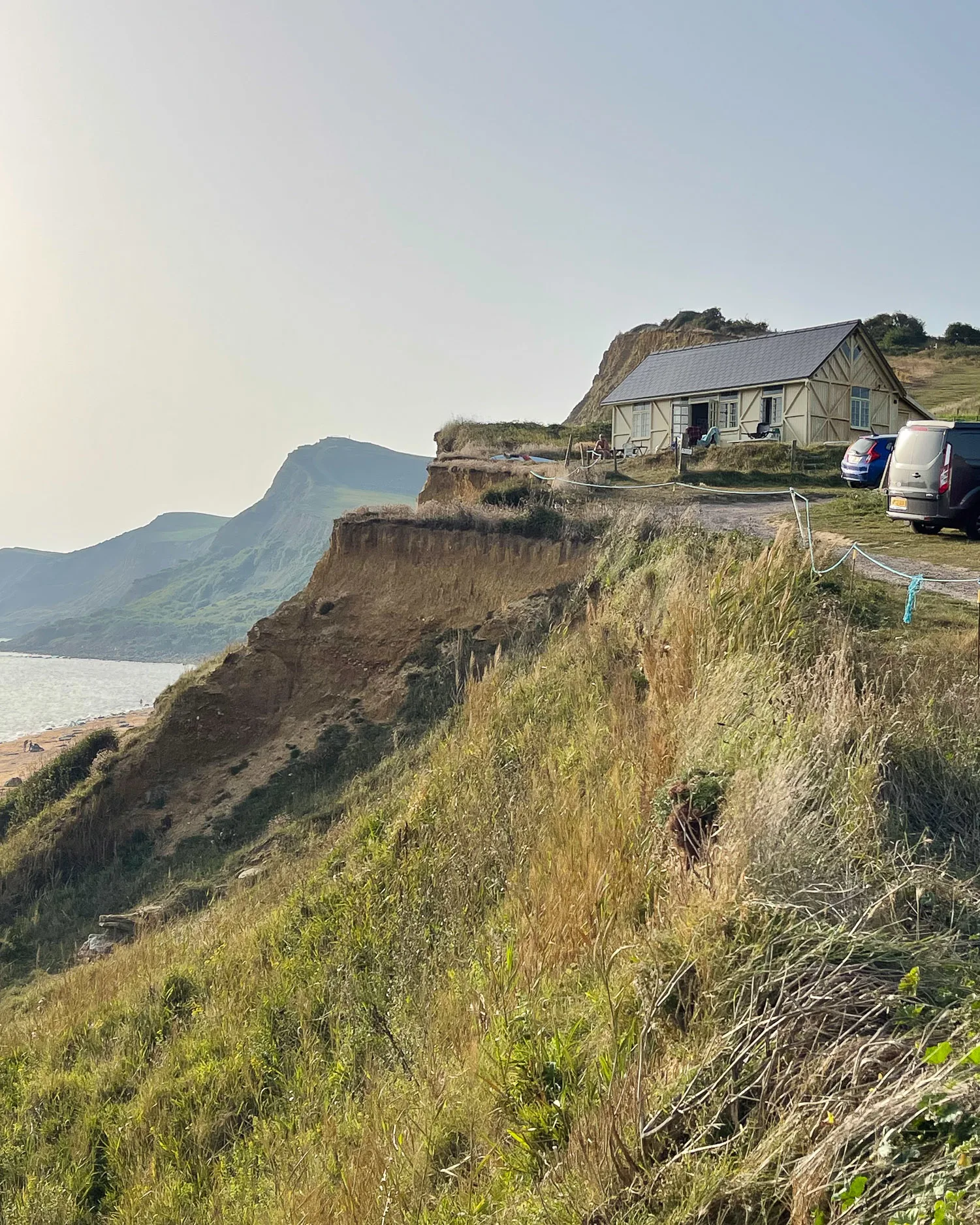
To find out more about the Broadchurch film locations from Series 1, 2 and 3, take a look at the Broadchurch trail information and downloadable leaflet produced by Visit Dorset.
Things to do near Dorchester
7. Visit Dorchester – heart of ‘Hardy Country’
The historic market town of Dorchester is the heart of ‘Hardy Country’. It’s surrounded by the Dorset area of Outstanding Natural Beauty that Thomas Hardy described in his novels.
Hardy featured Dorchester as Casterbridge in his novel The Mayor of Casterbridge and you can see the grand townhouse that was the mayor’s home on South Street.
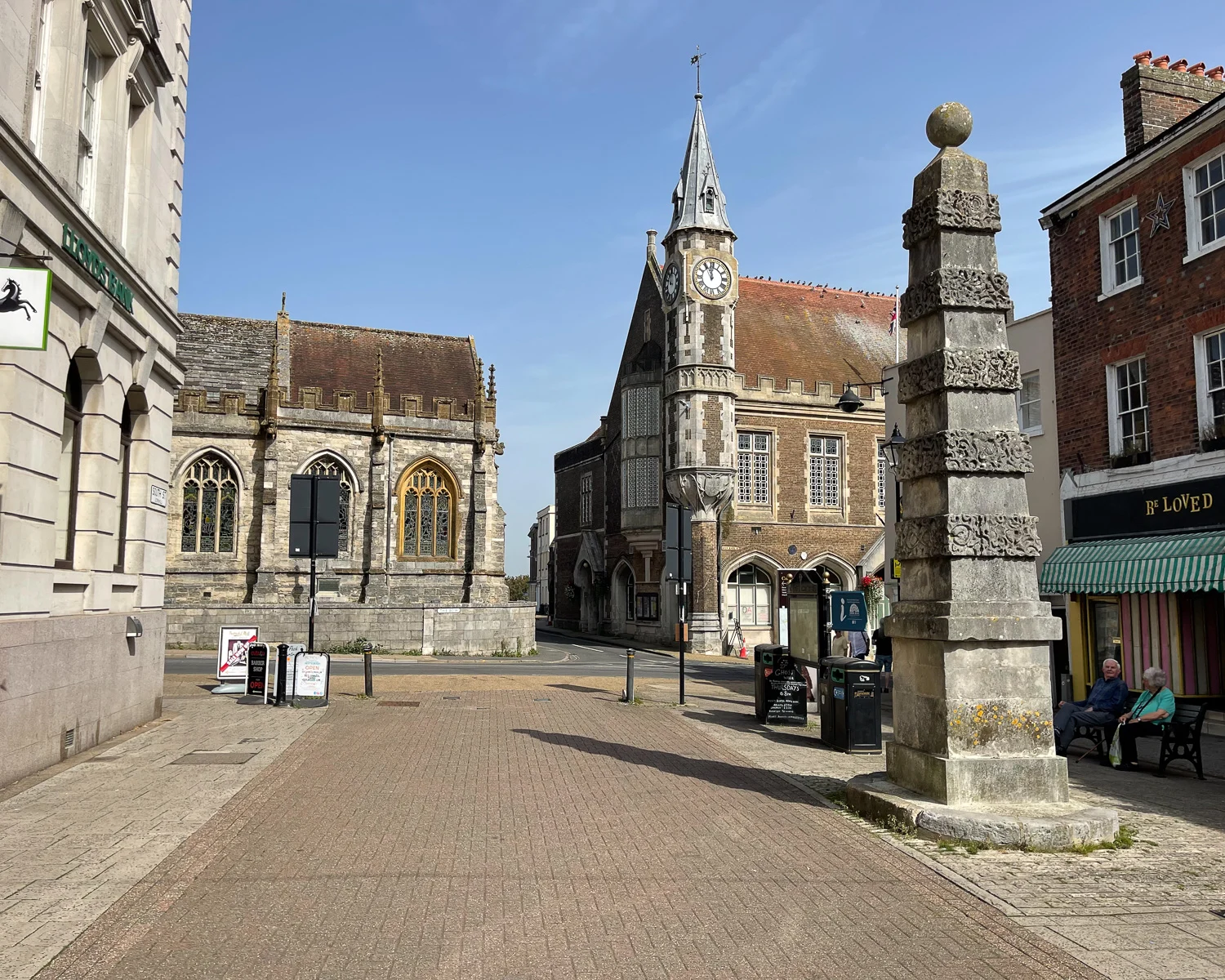
Wander up past the shops of pedestrianised South Street and look in on Antelope Walk for an arcade full of independent businesses, which also featured in Hardy’s novel as Antelope Inn.
Where South Street meets the High Street is a sign giving information about themed walks, such as the Hardy walking trail you can follow around Dorchester.
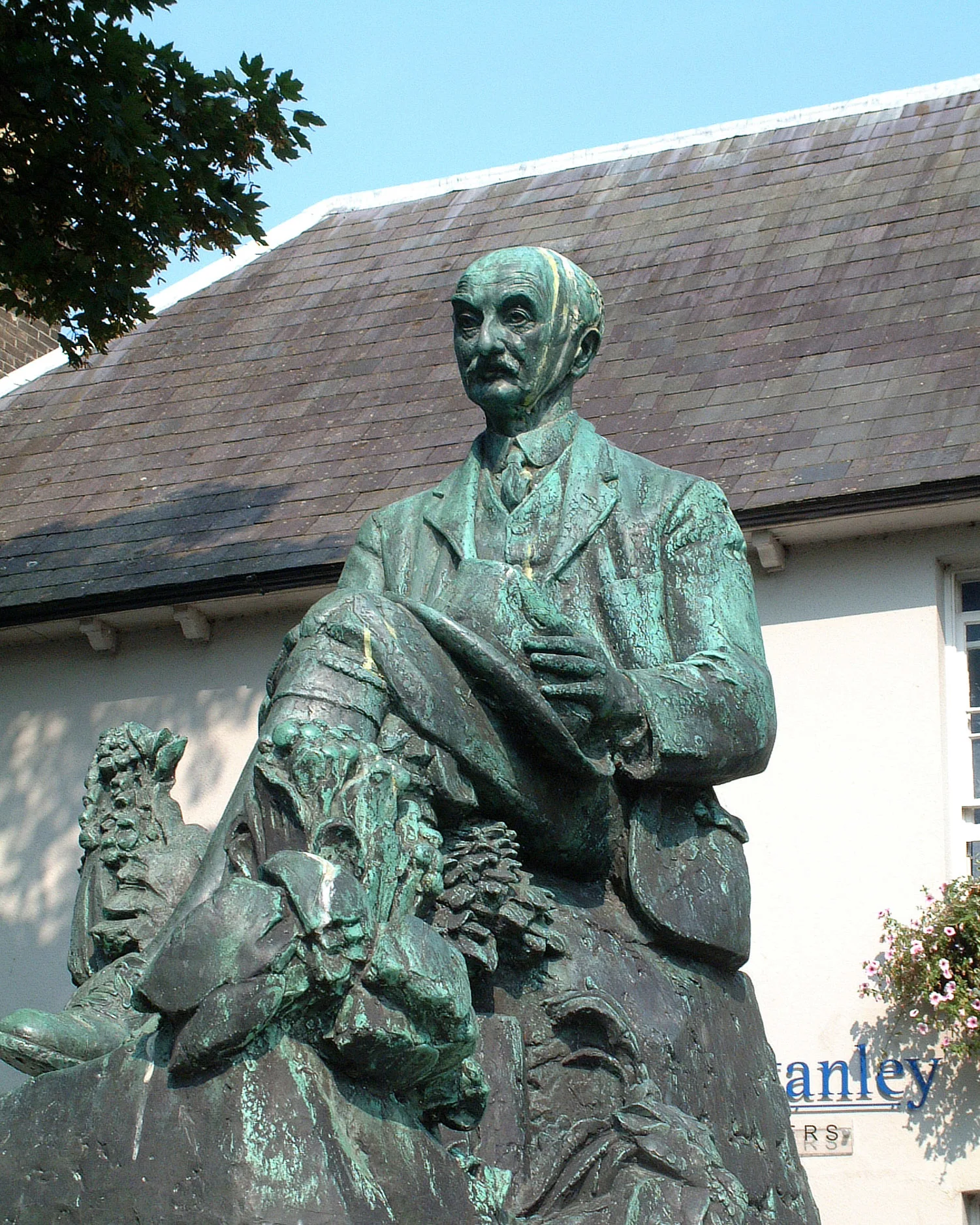
On the High Street are some of the town’s grander buildings, such as the Corn Exchange, which is now an arts centre, and the fine Victorian building that houses the Dorset Museum. At the top of the town is a statue of Dorchester’s most famous resident, Thomas Hardy himself.
8. Hardy’s Cottage – birthplace of Thomas Hardy
The pretty cob and thatch cottage, where Thomas Hardy was born, was owned by his grandfather, a master builder. With the cottage garden at the front, Hardy’s cottage makes a photogenic spot that is reminiscent of many old Dorset cottages and villages.
Together with nearby Max Gate, the cottage is one of the places of interest in Dorset to discover the life and work of Thomas Hardy and his fictional ‘Wessex’.
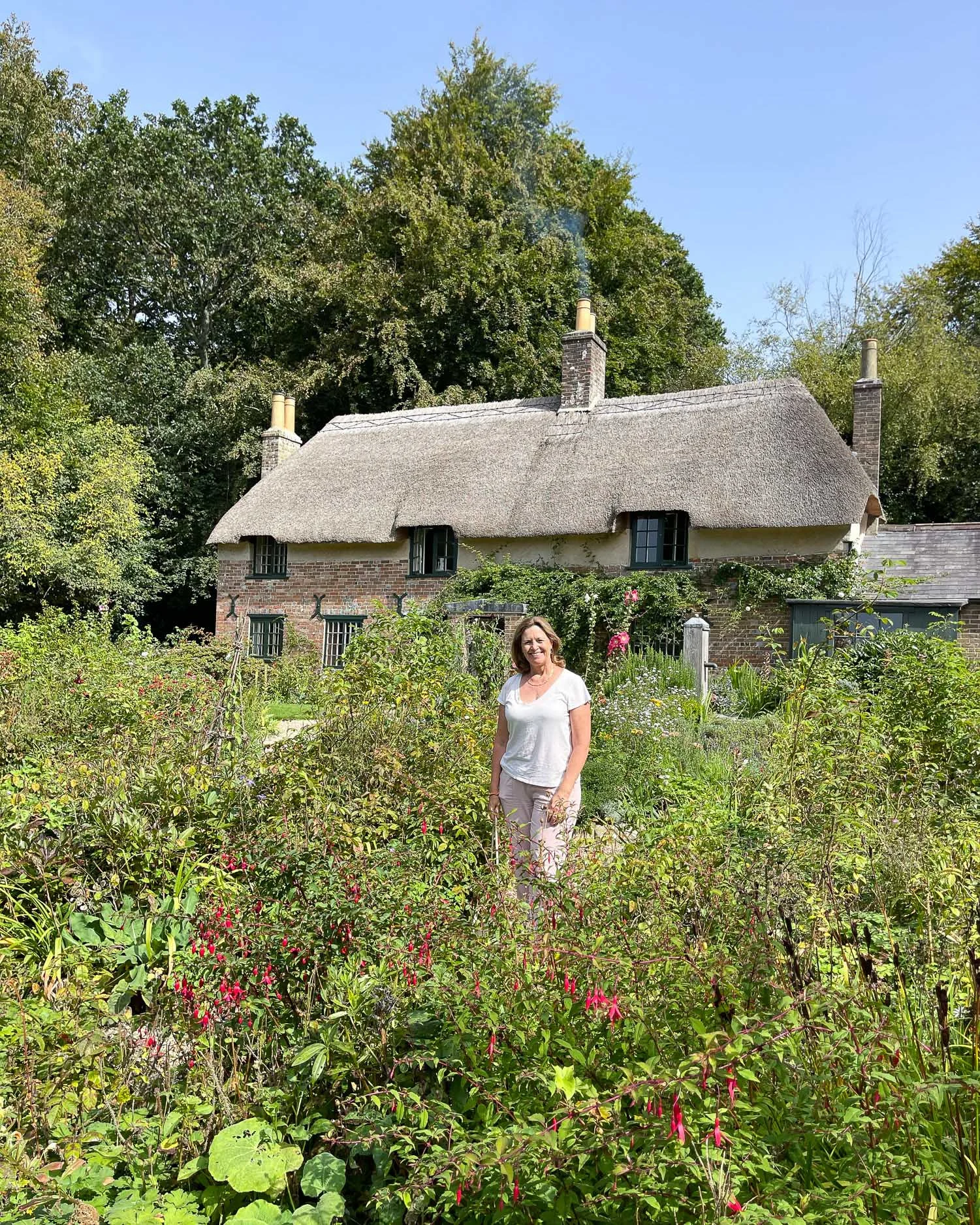
But the reality of Hardy’s upbringing is somewhat less idyllic, since the flower filled garden was once a builder’s yard serving the family business. Three generations of Hardys were crowded into the small cottage, with cooking done over the open fire in the kitchen and water from the pump outside.
Thomas Hardy himself lived at home until his thirties until he had earned enough from his writing and work as an architect to set up home with his wife Emma.
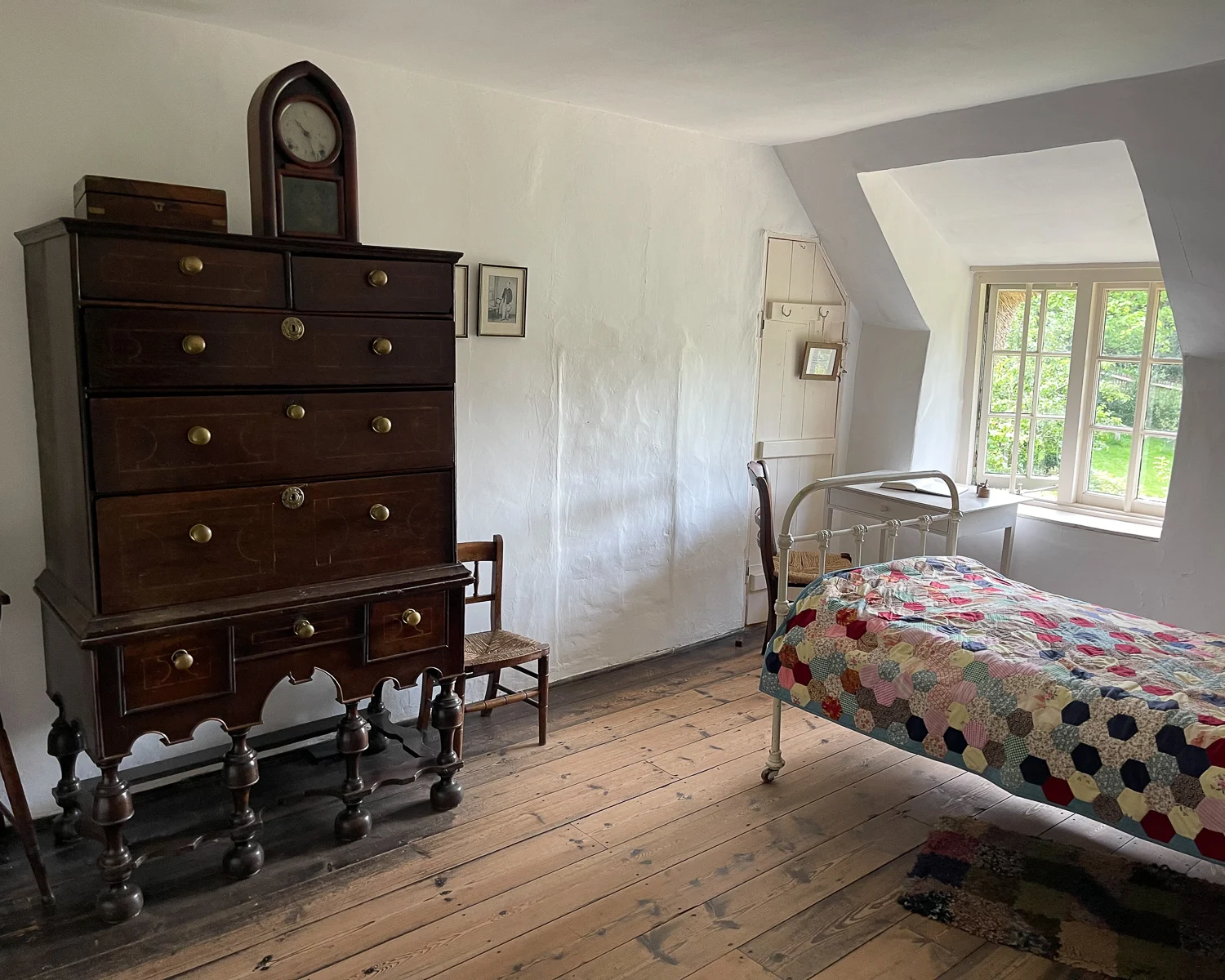
You can walk through the woods from the visitor centre and join a timed tour to learn more about Hardy’s childhood and life at the cottage. After enjoying the garden, step inside the cottage to find the cosy kitchen where the family would gather to make music. One of the sparse upstairs bedrooms has a desk at the window, where Hardy wrote several of his novels.
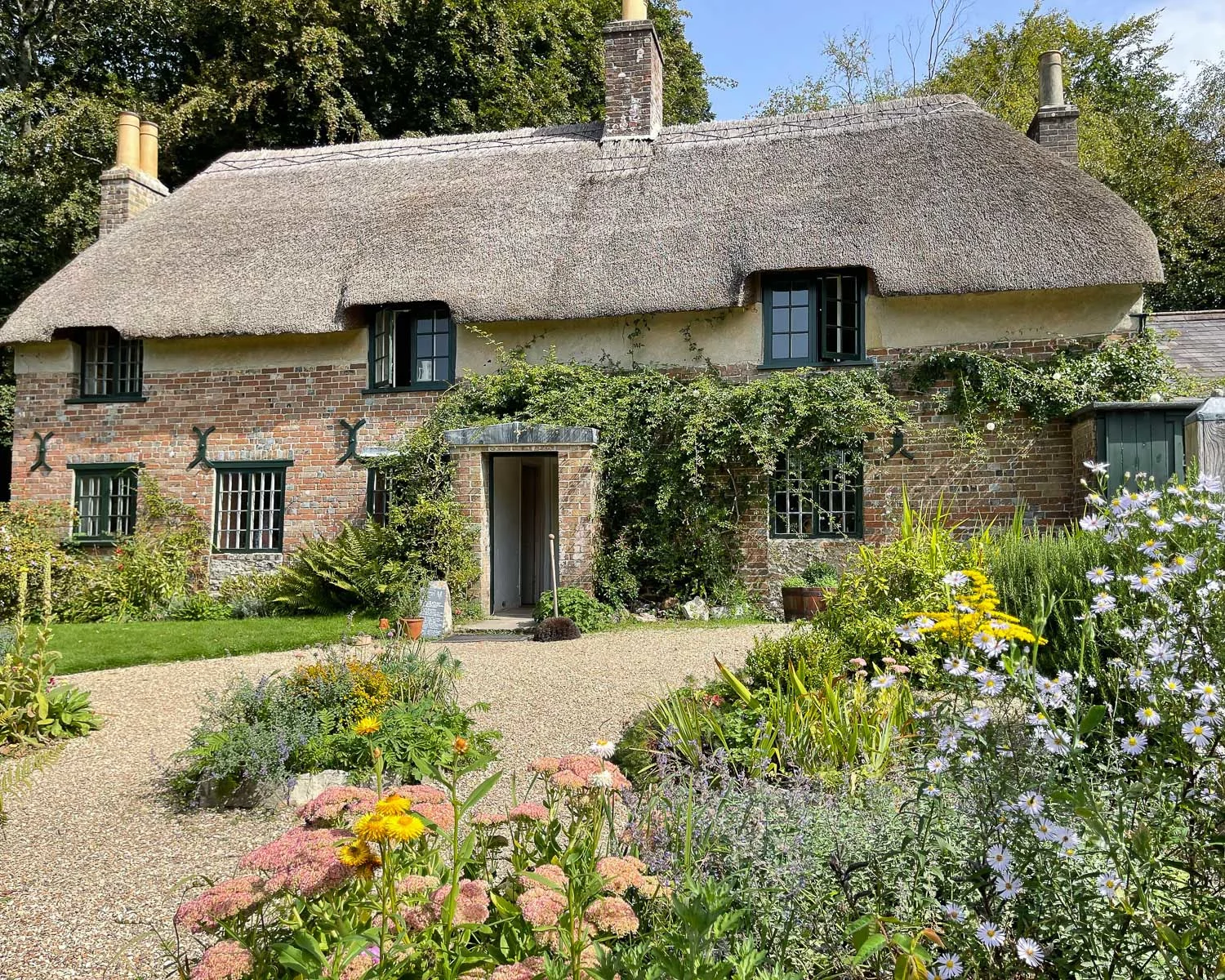
9. Max Gate – the home that Thomas Hardy built
Another home of Thomas Hardy is Max Gate, located just outside Dorchester. Max Gate was designed by Hardy himself, who trained as an architect and is furnished as it was when he died here in 1926.
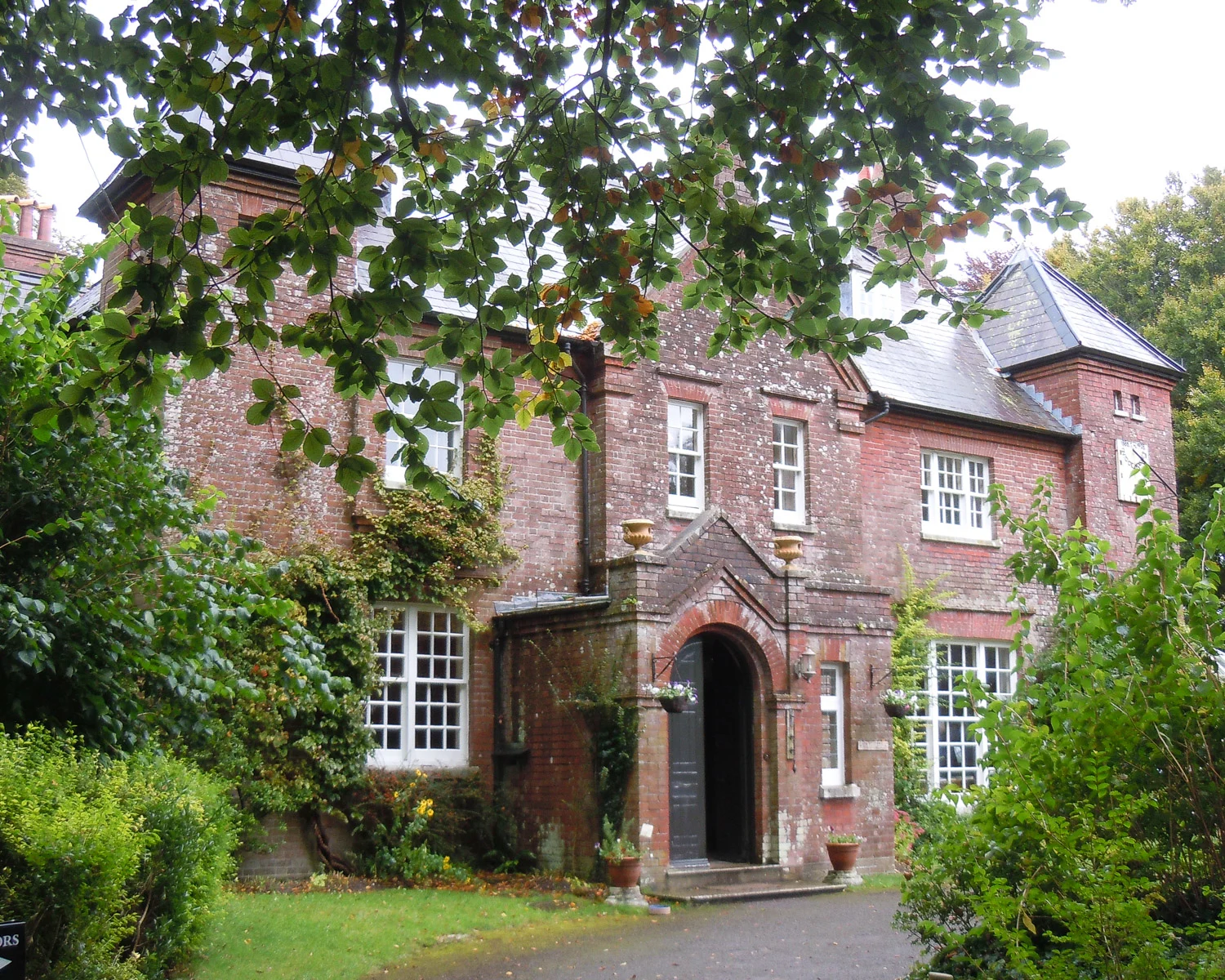
This is the red brick house built by Hardy once he had reached some success, reflecting how far he had risen in society from the modest thatched cottage of his childhood.
In the house, which he shared with his first wife Emma, Hardy wrote novels such as Tess of the D’Urbervilles and Jude the Obscure, as well as much of his poetry.
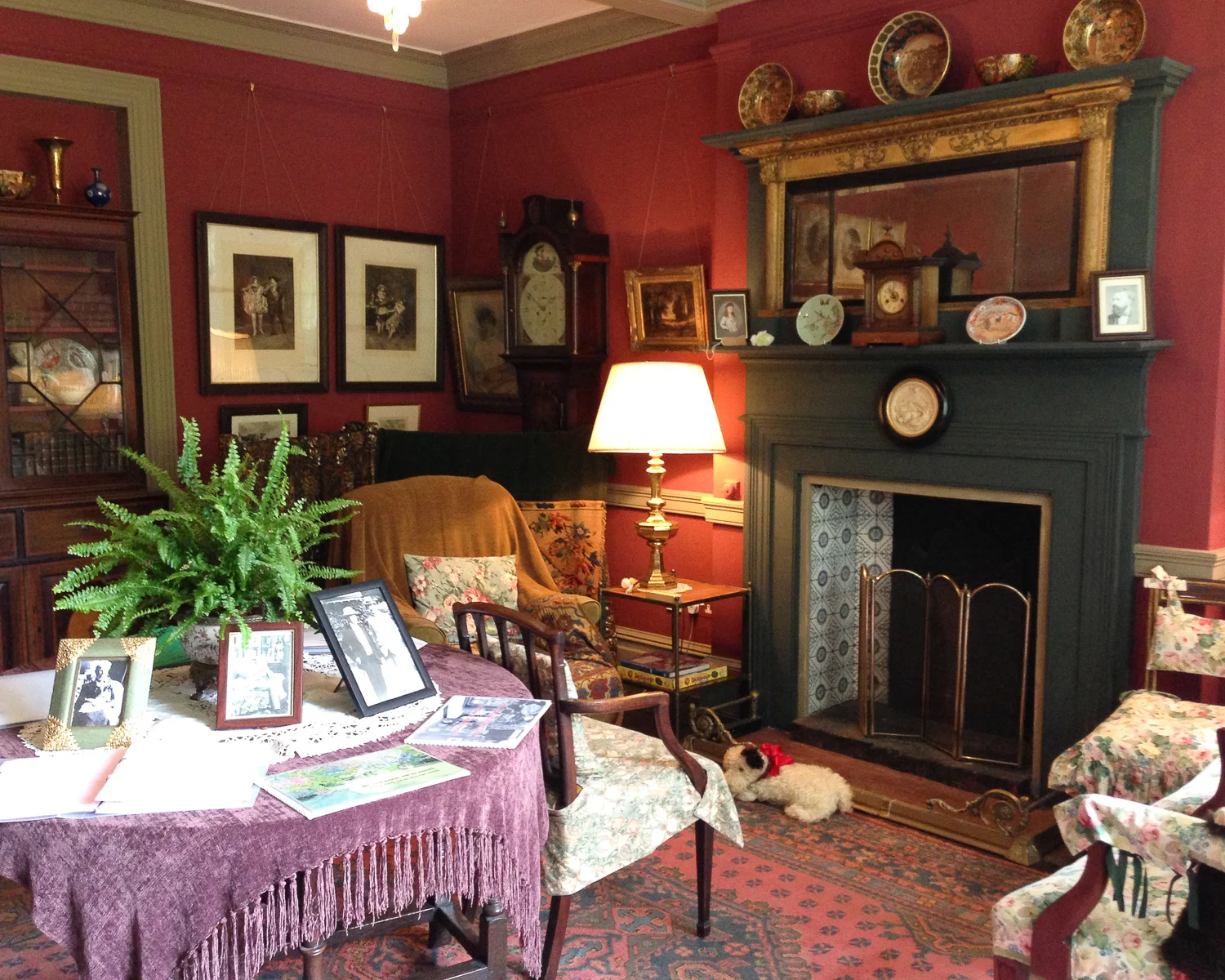
10. The Cerne Giant at Cerne Abbas
Just outside Dorchester, the small village of Cerne Abbas is best known for the 180 ft high naked male figure carved into the chalk hillside, wielding a club. It’s unclear when the figure was carved into the hillside. Earliest mentions are from the 17th century but archaeologists believe the figure dates back to the late Saxon period.
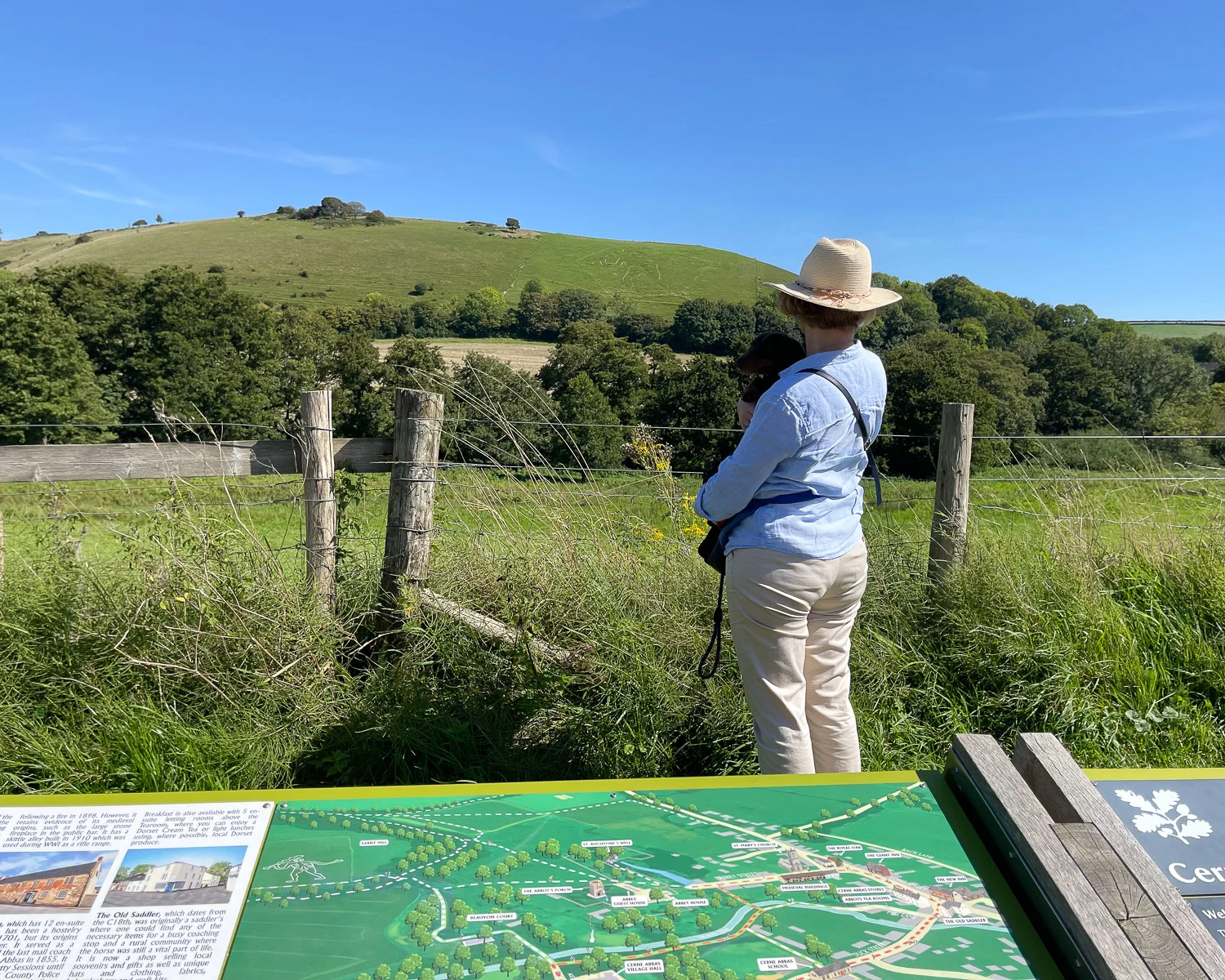
On the hillside above the giant is an iron age fort and the land around it is maintained by the National Trust. To reduce erosion you can’t walk over the giant but there are paths leading up the hillside beside and above it.
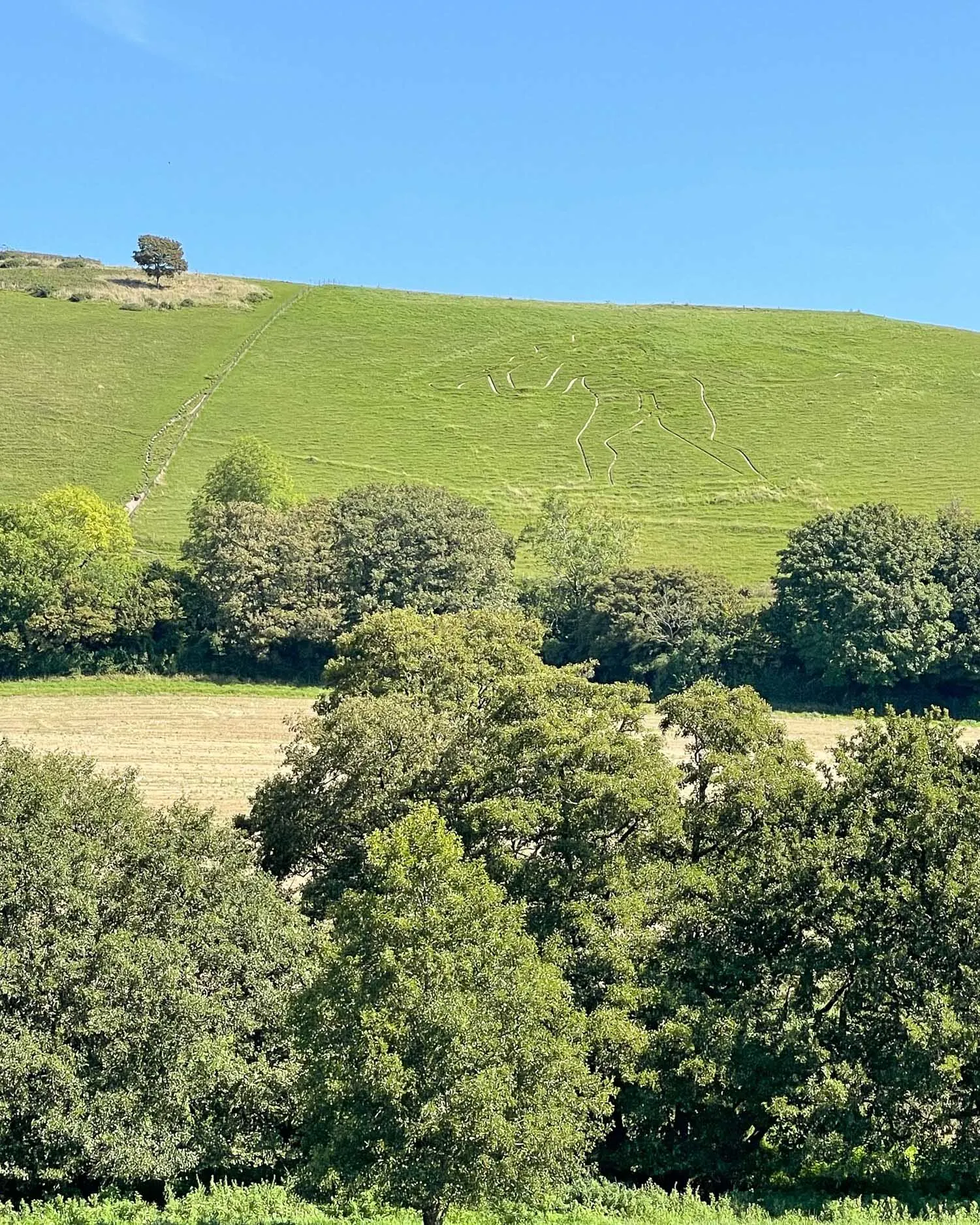
The best viewing point is a small parking area by the main road just north of the village, where there’s an information board. From here you can walk into the pretty village of Cerne, which has many attractive old buildings.
Things to do near Lulworth Cove
11. Lulworth Cove – a picturesque circular cove
The picturesque circular bay with a pebble beach at Lulworth Cove, is one of the most popular places to visit in Dorset. If you time it right, you may find rock pools revealed at low tide.
Stop for coffee or lunch at the Boat Shed Cafe right by the beach, or there are plenty more pubs, cafes and ice cream shops.
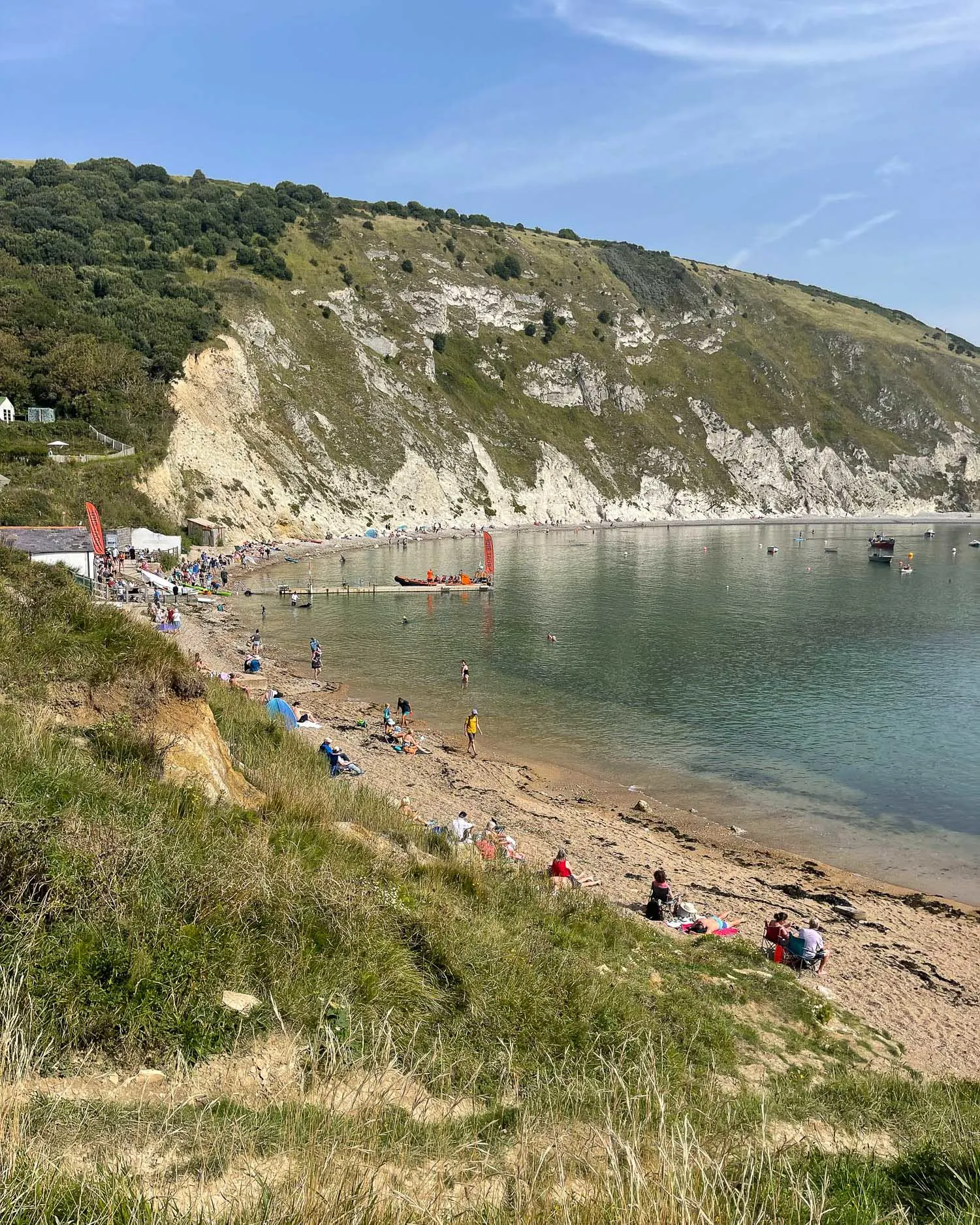
Immediately above Lulworth Cove is a small hamlet with just a few cottages, but the larger village of West Lulworth is a 15 minute walk away. A main road passes through West Lulworth, but other than a useful village store and pub, there’s not much to see in the village itself.
The South West Coastal Path runs right past Lulworth Cove, so rather than walking along the beach, you may like to follow the path in either direction for some lovely views from the clifftops down onto the cove.
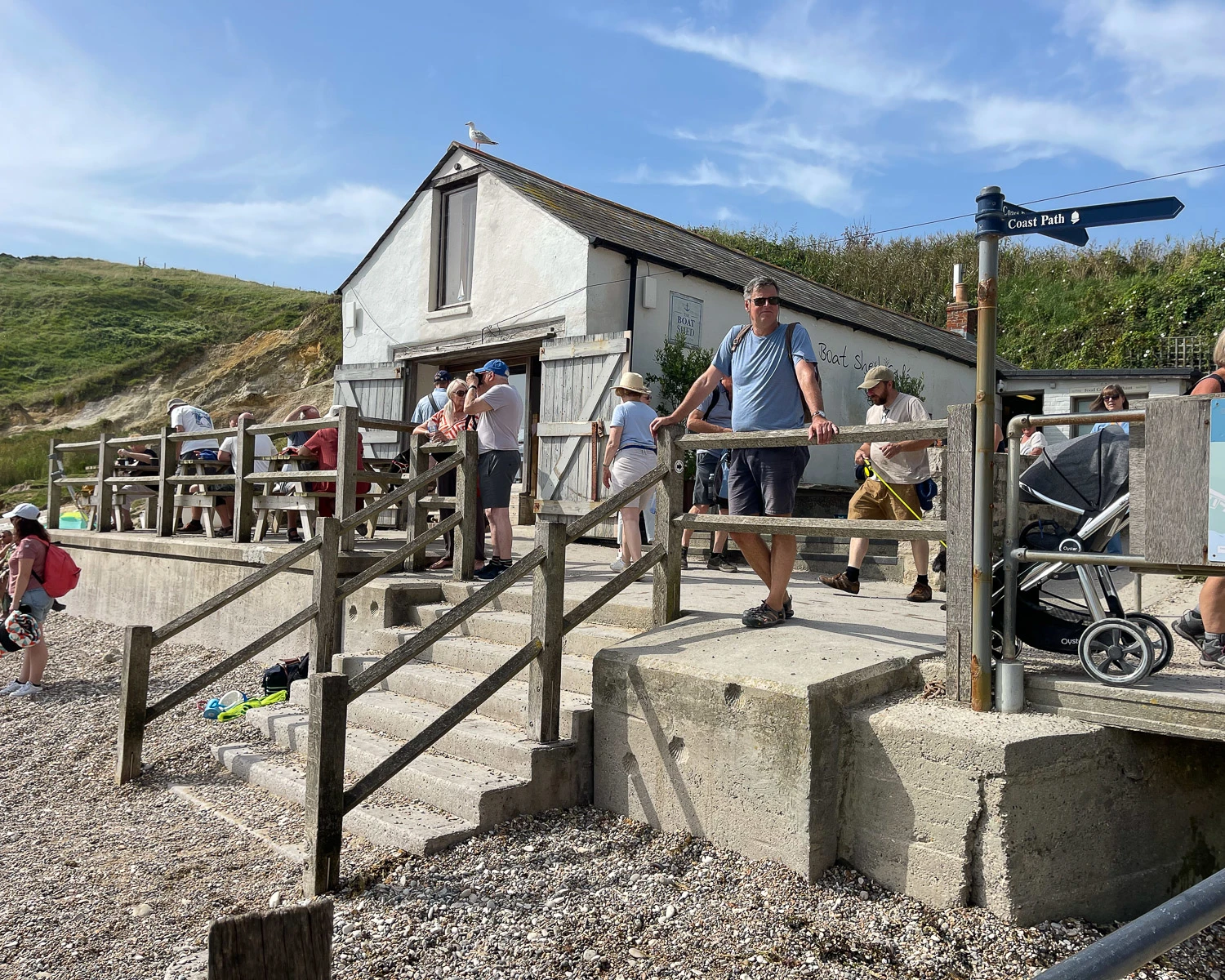
If you follow the path eastwards, you’ll reach the secluded beach of Worbarrow Bay and the abandoned village of Tyneham. It’s part of the military training area, so this section of footpath is generally only open at weekends and in school holidays.
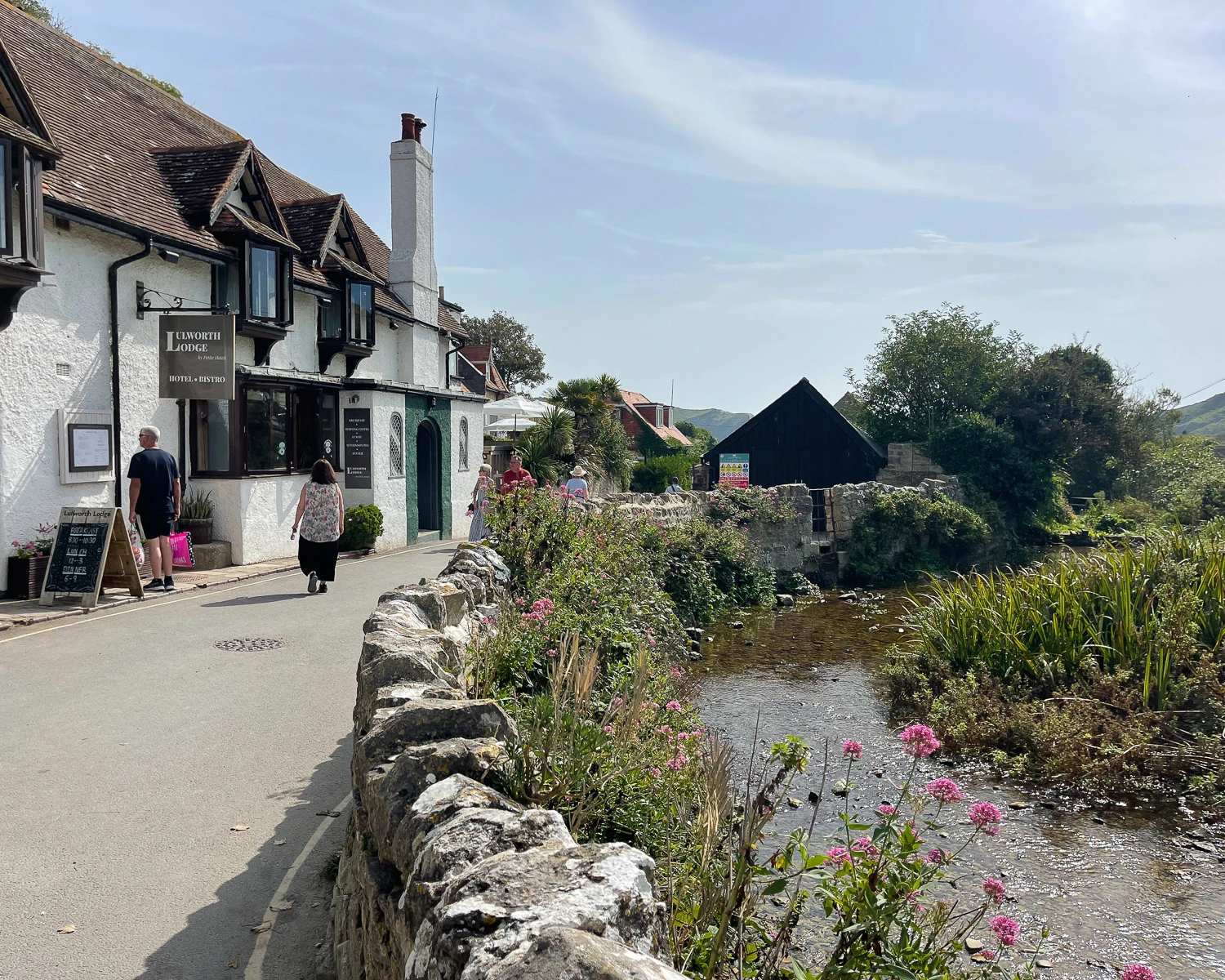
There’s a large car park at Lulworth cove, with a Visitor Centre that’s worth a quick stop to learn more about the area. From the car park a scenic cliff path will take you in less than an hour to Durdle Door.
12. Durdle Door – the famous sea arch
The famous rock archway and its shingle beach are one of the most photographed Dorset attractions along the Jurassic Coast. Durdle Door was created by sea erosion and although you can swim through the arch, the currents are strong, so we recommend admiring from the beach.
From the car park it’s a steep walk down to the beach which takes around 15 mins. This site gets very busy in the summer months, so be warned!
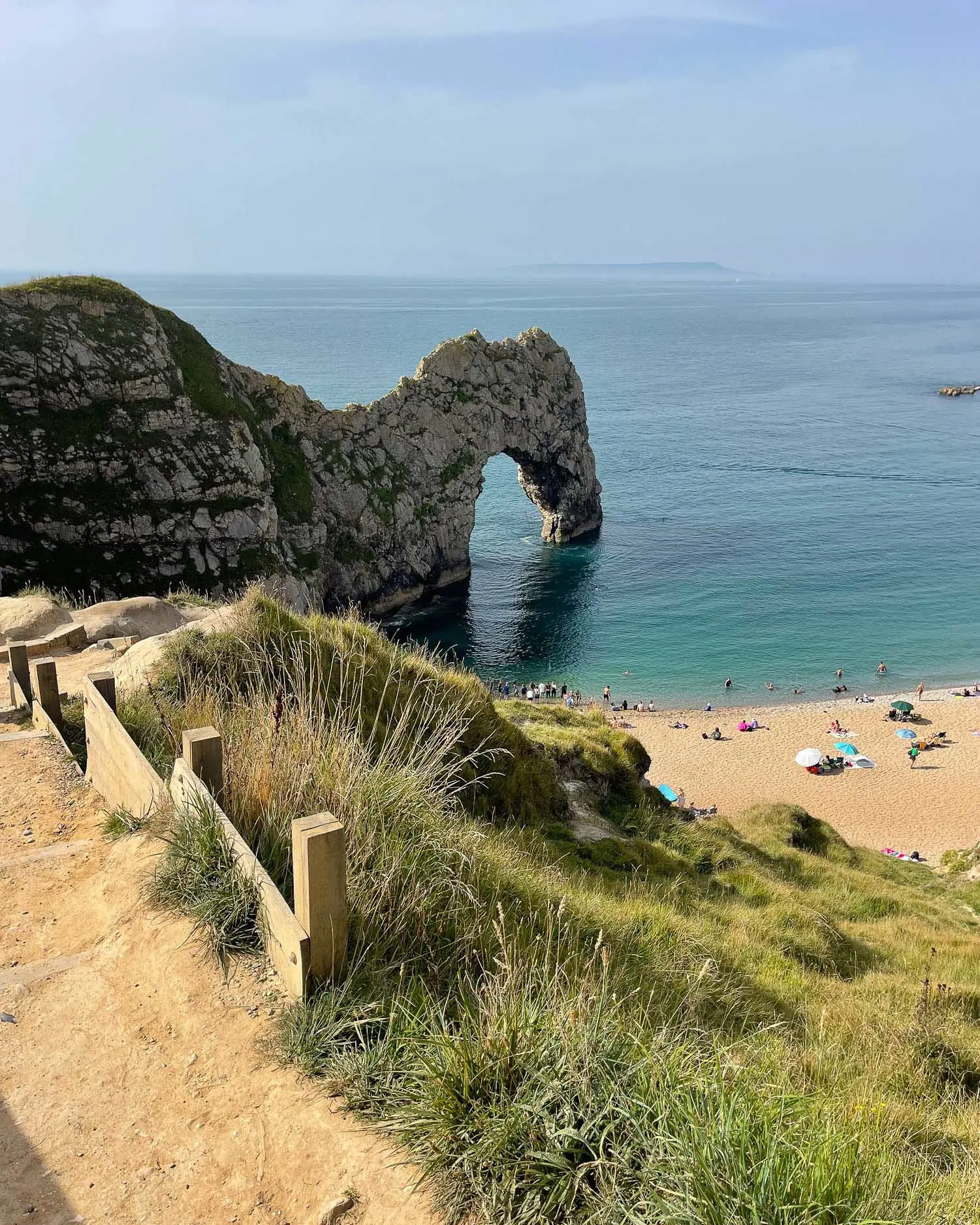
Another popular Dorset beach on the east side of Durdle Door is called Man O’War Beach, which is also accessed by a steep path. Both Durdle Door and Man O’War beach are open to dogs all year round. There’s a paid car park at Durdle Door which you can use to access either beach.

You can also make the easy 1 mile walk from Lulworth Cove car park along the South West Coastal Path to Durdle Door and return by the same path, or make a circular route that takes you slightly inland back to West Lulworth.
13. Lulworth Castle and Park
If you have time after visiting Lulworth Cove and Durdle Door, you may like to call in at the nearby Lulworth Castle, which is also owned by the Lulworth estate. The 17th century hunting lodge was damaged by fire in the 1920s but the structure has been restored with the support of English Heritage.
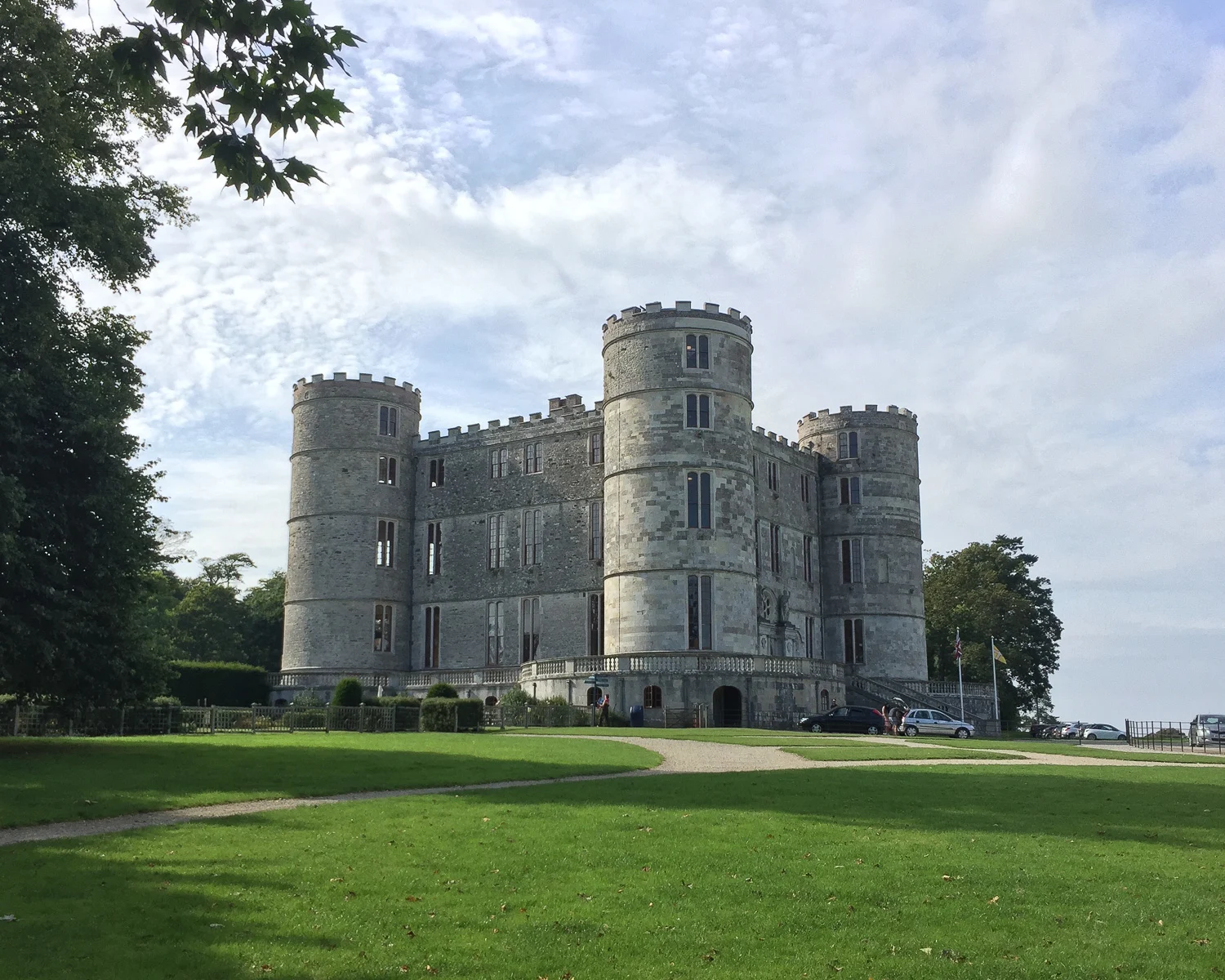
Inside the castle, which is also used as a wedding venue, you’ll follow the fortunes of the Weld family who owned it. While some of the spaces are unfurnished, you can visit the basement kitchens and get views from the turrets of the surrounding Purbeck Hills.
There’s extensive wood and parkland where you can walk, with a children’s playground and tea room.
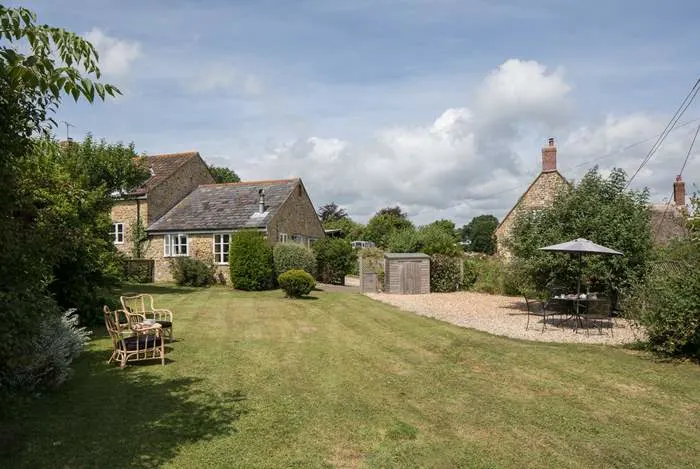
Badgers Cottage – a 1 bedroom dog friendly cottage on a farm estate near the Jurassic Coast
14. Clouds Hill – retreat of T.E.Lawrence
The tiny cottage in the woods at Clouds Hill was used as a retreat by T. E. Lawrence, better known as Lawrence of Arabia. While working at nearby Bovington Camp, Lawrence would come in his spare time to the cottage to read and write, as a creative escape from his working life in the army.
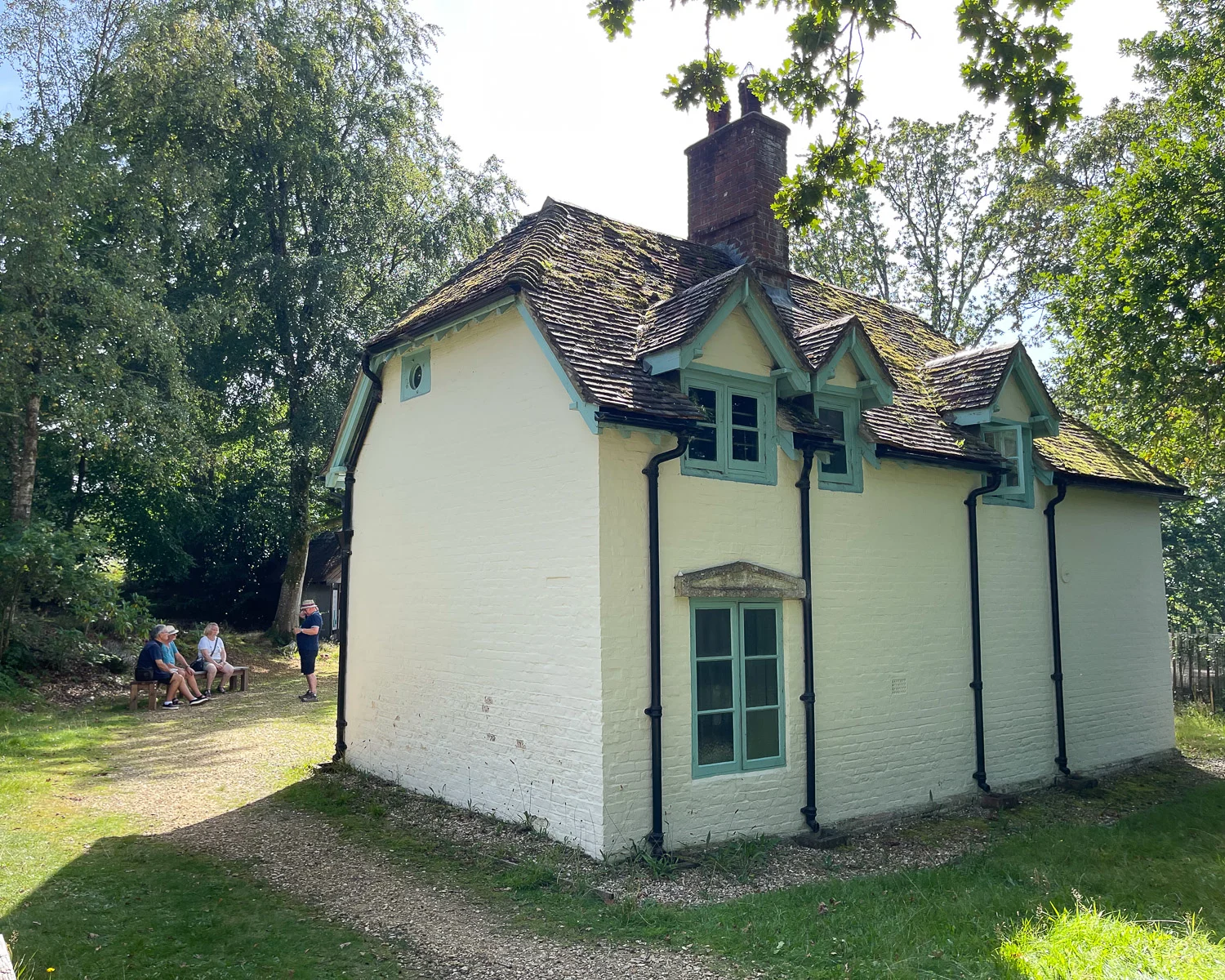
Over a number of years he furnished the cottage in a pragmatic way that suited his own needs. There was no electricity, toilet or kitchen but instead the sparse rooms were filled with books and paintings.
The most luxurious aspect of the cottage was the thatched shed that Lawrence built to house his collection of motorbikes!

Sadly Lawrence was killed in a motorbike accident on the road nearby in 1935, and the cottage was preserved much as he left it on that day. Due to the limited size, tickets need to be booked in advance. Visit the NT website for more information.
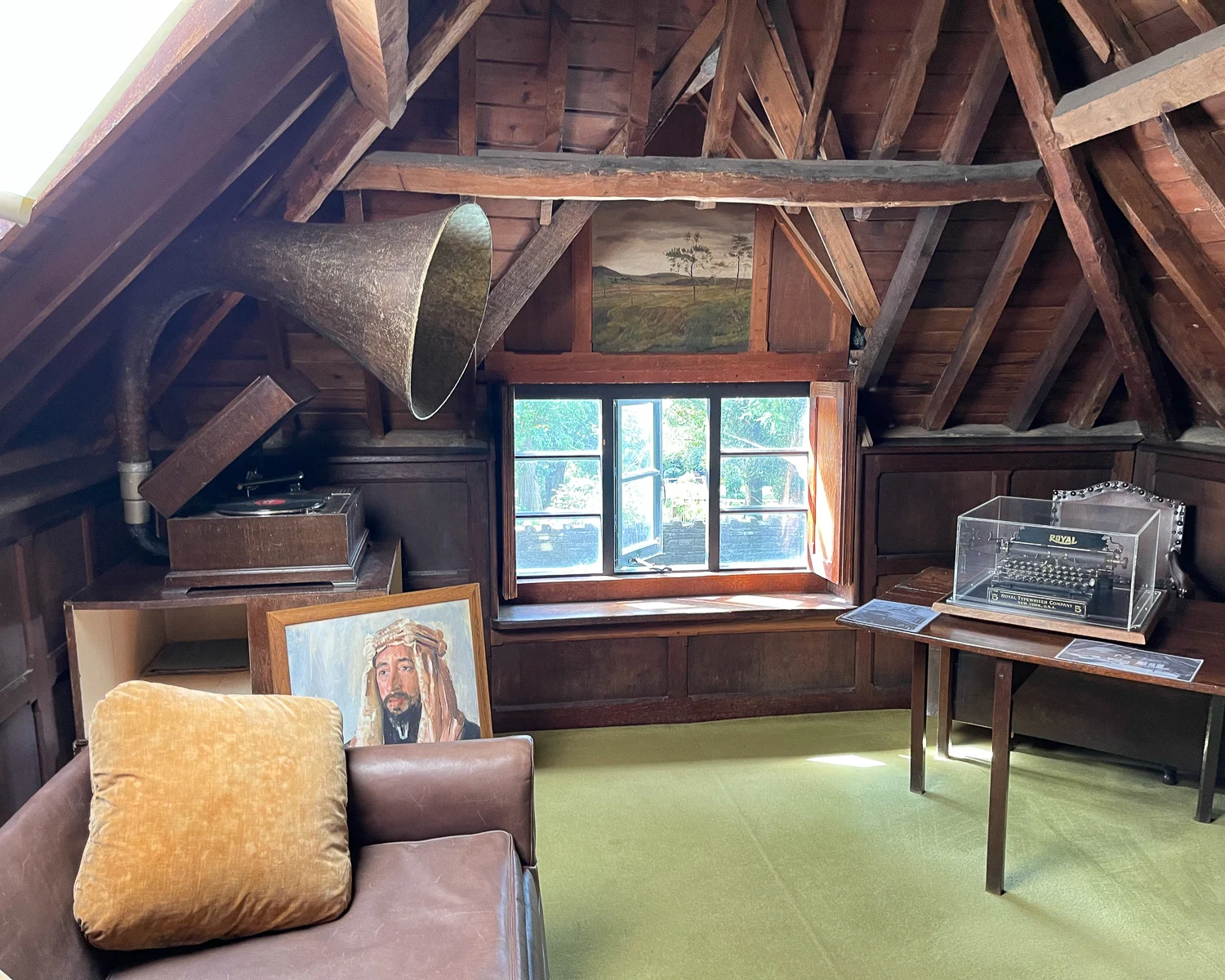
15. The Tank Museum at Bovington
Since Guy is a former tank commander, of course the Tank Museum at Bovington was top of his list to visit. Unless you have military connections, you may not be aware that parts of Dorset are a major army training area, with a centre at Bovington Camp and a firing range near Lulworth Cove.
Hence it makes sense that that the Tank Museum, full of military hardware would be located at Bovington, home of the Royal Tank Regiment. It’s a huge museum, with plenty to keep the whole family interested and hundreds of tanks on display.

The exhibits tell the story of how tanks were used in world wide conflicts, from WWI and WW2 to Afghanistan. It’s worth checking for some of the different events such as the annual Tankfest festival in June, where you can see the tanks in action in an arena setting.
Tip: Even if you don’t visit the museum, you may like to stop at the free roadside viewing spot near Clouds Hill, where you can often see tanks at close range being driven within the Bovington training area.
It’s marked on the map as the Lawrence of Arabia memorial, and there’s a stone marking where T. E. Lawrence was fatally injured in a motorbike accident on this road.
Things to do in Weymouth
16. Weymouth – a historic harbour and sandy beach
The pretty fishing town of Weymouth with its coloured houses, clustered around a protected harbour, offers the British seaside experience at its best. The town became popular in Georgian times, when King George III visited and sea bathing for health became fashionable.
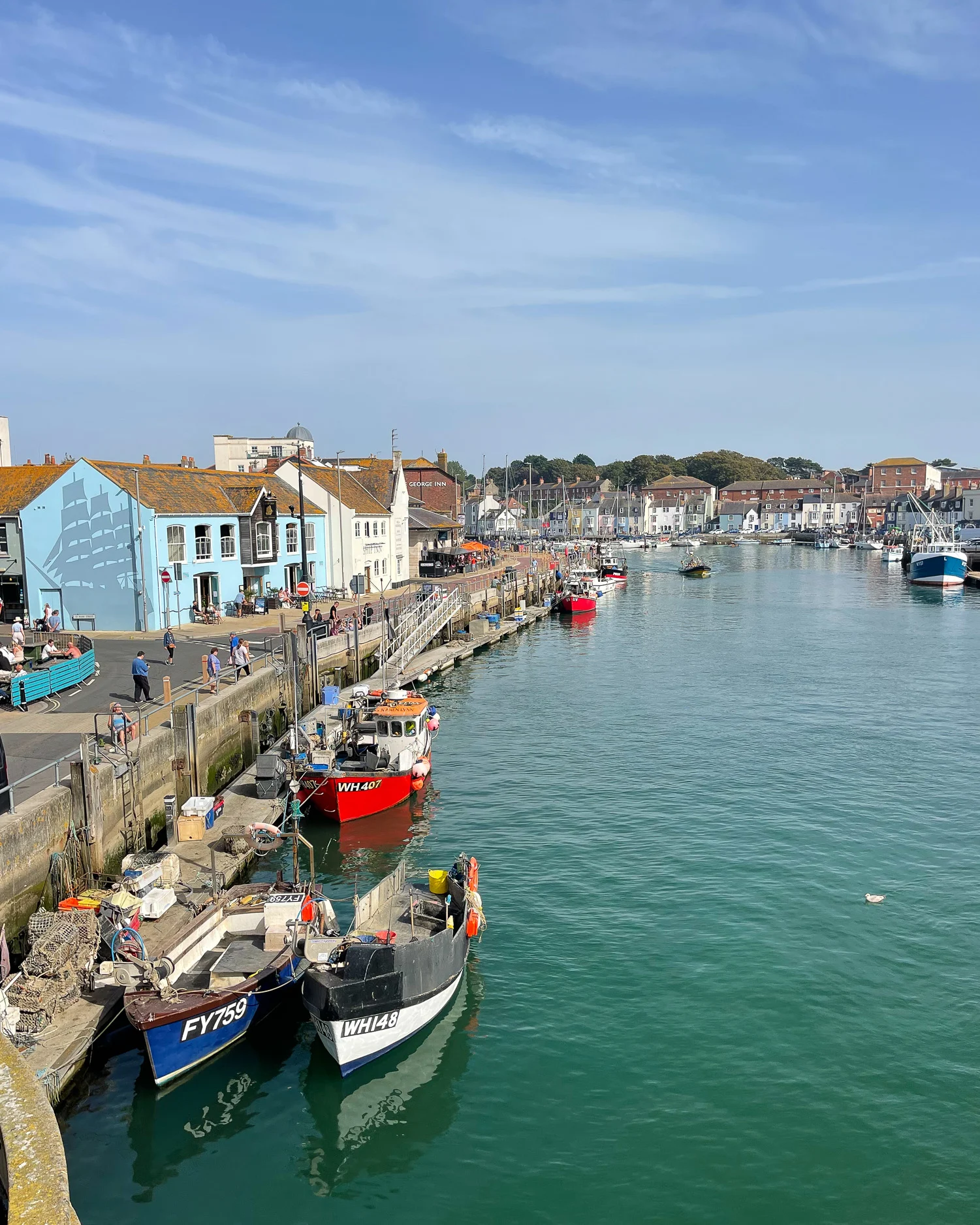
On one side of the town, the modern marina leads into the harbour with its pretty Georgian buildings. Following the line of the harbour past the numerous pubs and restaurants brings you round to the beach promenade.
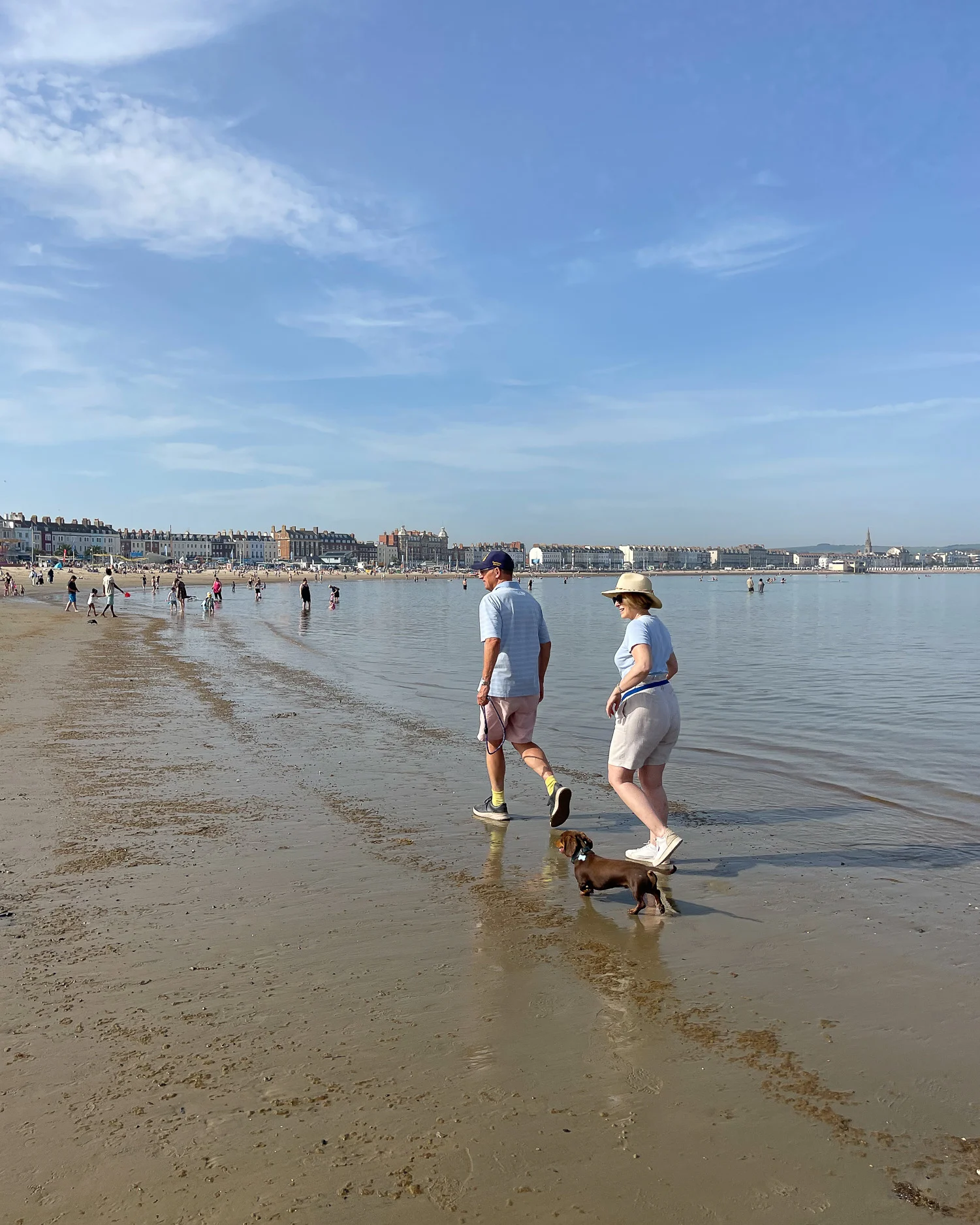
A popular sandy beach stretches from the Pavilion theatre, with a funfair, donkey rides, Punch and Judy shows and sand sculptures. No visit to Weymouth is complete without trying some fish and chips around the harbour (we tried Fish’n’Fritz) or a traditional ice cream from Rossi’s Ices on the Esplanade.
There are some interesting small shops in the lanes that run back from the seafront promenade, although the feel here is a little more down at heel, revealing the contrasts in Weymouth of different levels of affluence.

17. Isle of Portland and Portland Bill Lighthouse
Close to Weymouth is a peninsular known as the Isle of Portland, joined to the coast by a causeway at the eastern end of Chesil Beach. At its tip, the peninsular is known as Portland Bill, marked by a red and white lighthouse that was built in 1906.
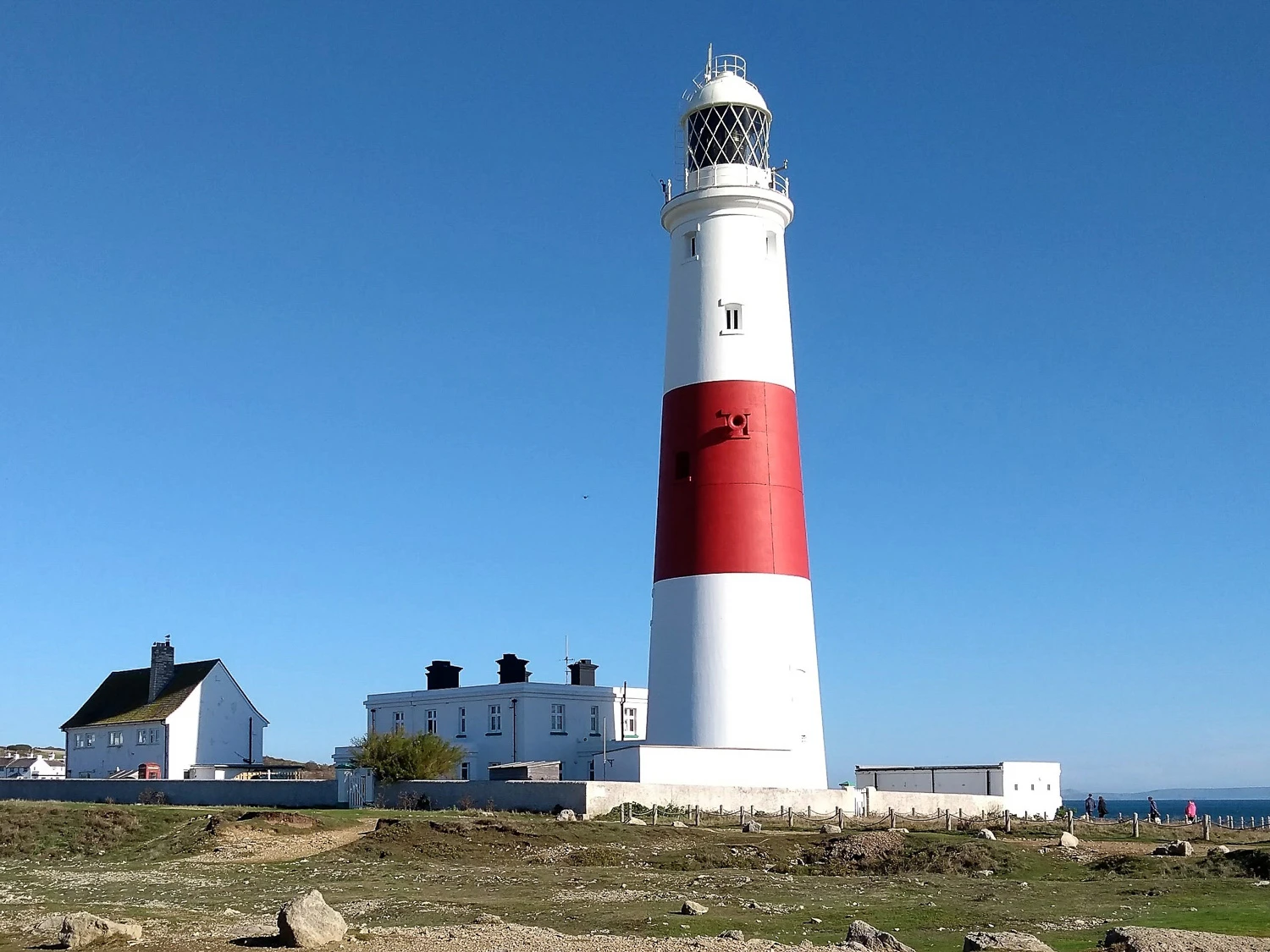
The area was once used as a quarry to extract the famous Portland Stone that was used to build many buildings in London, like St Paul’s Cathedral. Some stone sculptures and remains of the quarries can be seen at Tout Quarries nature reserve.
Overlooking Portland Harbour and the town of Weymouth is Portland Castle, built in the 1540s by King Henry VIII to protect Dorset’s coast from invasion.
To visit Portland Bill, drive to the end of the peninsula and park in the Portland Bill car park, then walk the short distance to the lighthouse. From here you might want to continue your walk along the cliff path to Jess’s Cliff, from where you can get some dramatic photos, looking back at Portland Bill lighthouse.
18. Abbotbury Sub tropical gardens
We particularly enjoyed our visit to Abbotsbury subtropical gardens, on the way to our cottage in Bridport. It’s dog friendly too and Bertie the dachshund was welcome on his lead, in the cafe as well as all parts of the garden.
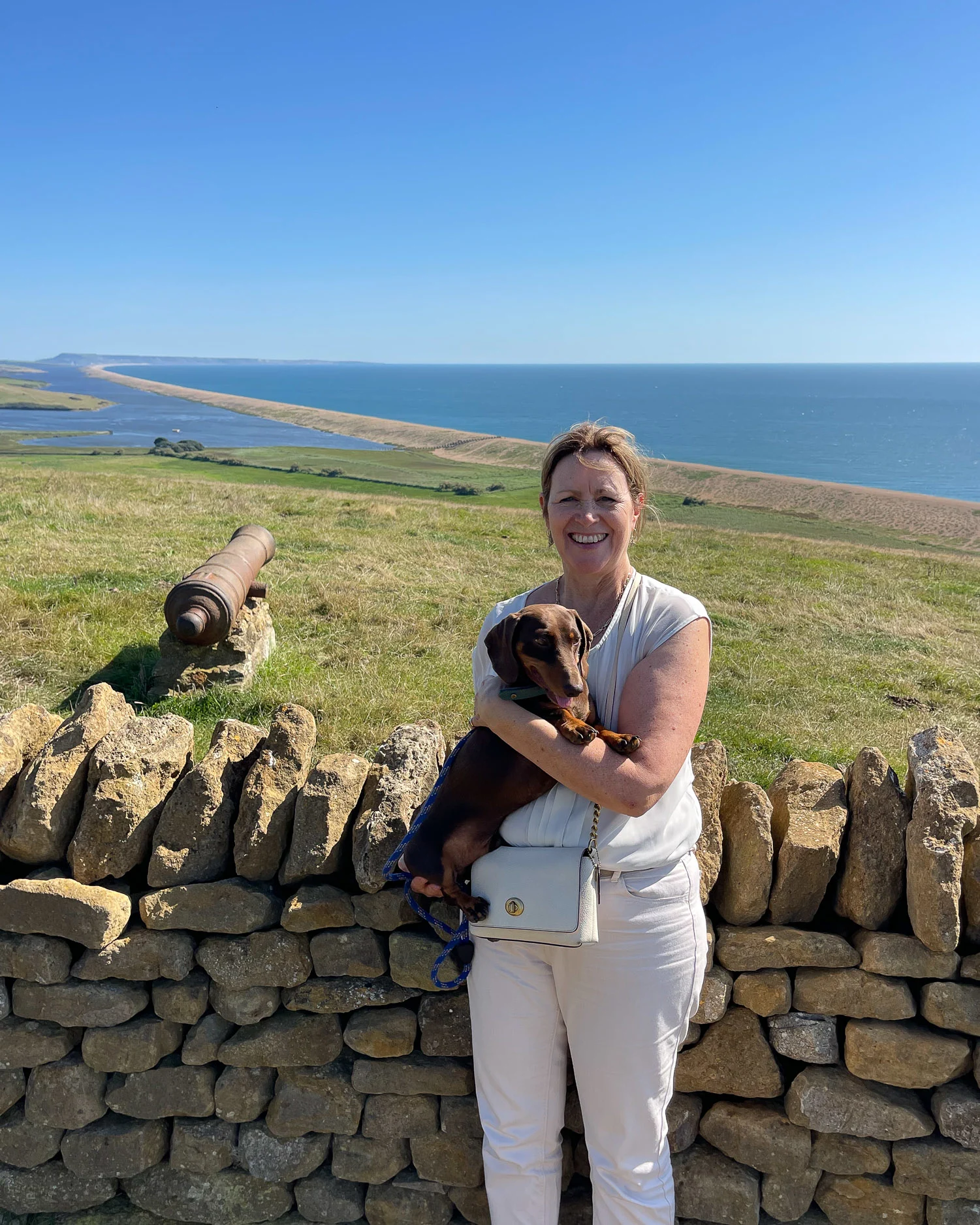
The gardens once belonged to the 18th century Abbotsbury Castle, which stood on the high ground overlooking Chesil Beach, but was demolished in the 1930s. The cafe and shop are located within the castle’s old walled garden, while much of the sub tropical garden covers the gentle slopes of a valley, with a stream running at the bottom.
We admired the carved sculptures from old tree trunks and red oriental bridges around the valley bottom. Returning past a gardener’s bothy full of Victorian tools, we enjoyed the fountains and cute sculptures of Peter Rabbit and Alice in Wonderland around the walled garden area.

There’s also a steep grassy walk up to a viewpoint, which is worth the effort to look over Chesil Beach and the miles of Jurassic coast in Dorset.
The Abbotsbury Swannery is the partner attraction the garden, located a short drive away in the wetlands that sit behind Chesil Beach, with a colony of mute swans.
Check out the list of other lovely gardens in Dorset to visit at the end of the article, many of which are dog friendly.
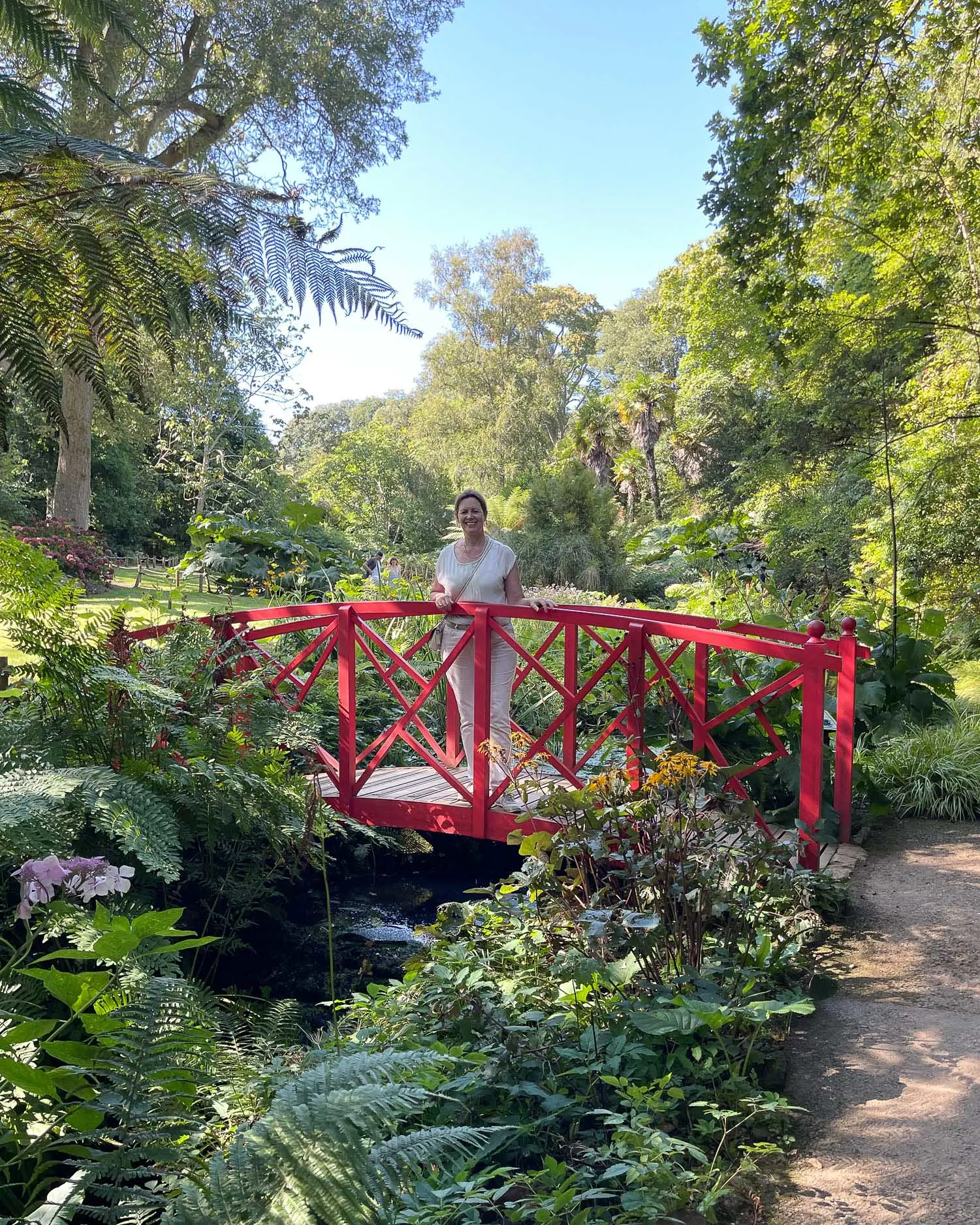
Corfe Castle and the Isle of Purbeck
The Isle of Purbeck is a beautiful area of rolling Dorset countryside, that while not truly an island, is surrounded on three sides by water. At its centre is the ruin of Corfe Castle, dominating the hill top with views of the Purbeck Hills.
There’s plenty to fill a day or more in this area, with a stunning length of coastline, cliff walks, a vintage railway, nature reserve at Studland and fossil hunting at Kimmeridge. Our visit to Corfe Castle and the surrounding area made one of our favourite days out in Dorset while we were there.
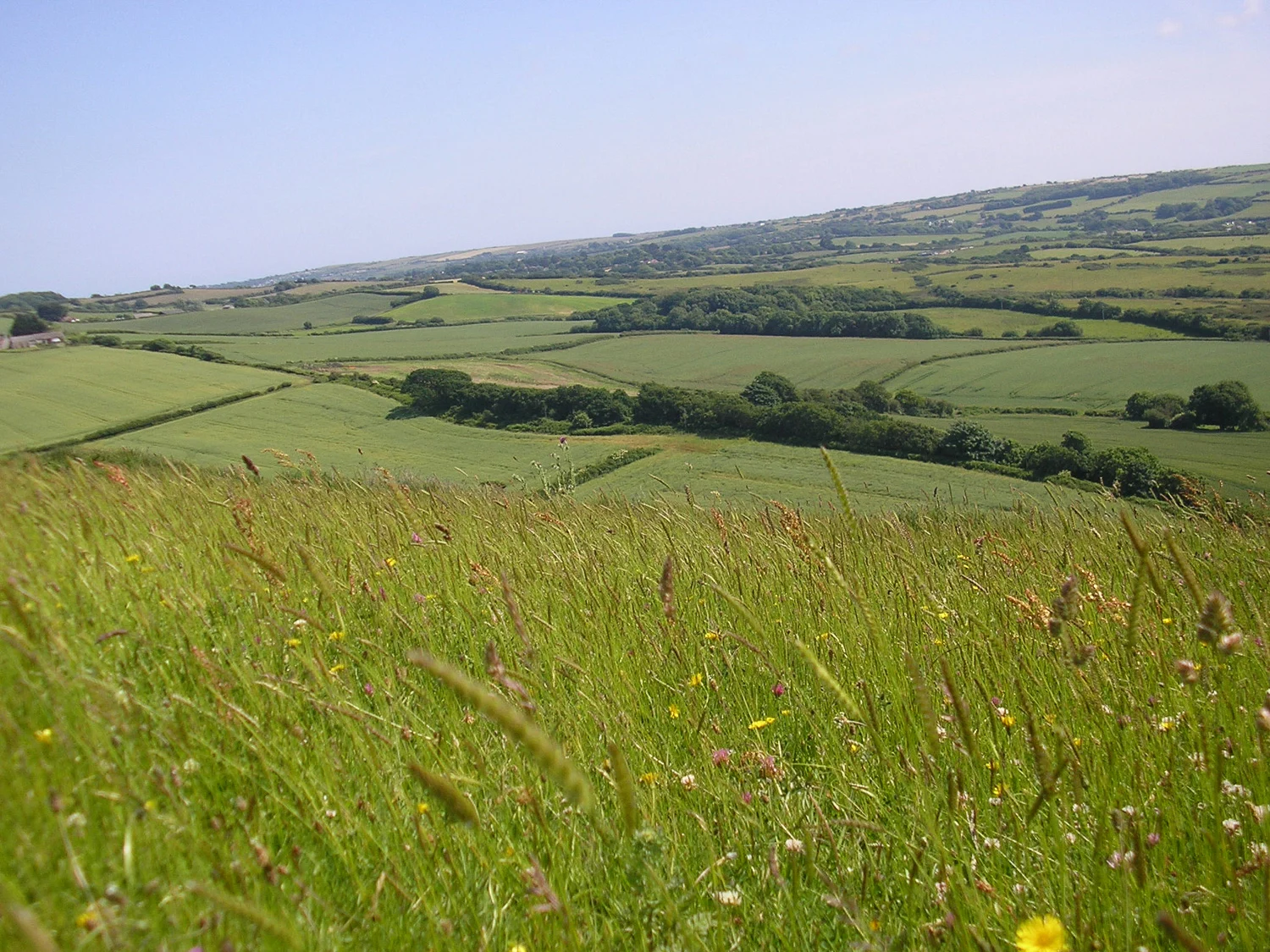
19. Corfe Castle – a ruined castle on the hill
The ruins of Corfe Castle are set in grassy grounds and are a fun place to visit to soak up some history and take in the views of the surrounding Purbeck Hills. The castle was established by William the Conquerer and reduced to a ruin in 1646 during the English Civil War.

As you walk around the castle, there are information signs to tell you about the castle’s history and an audio trail to listen to at various points. Look out for the ravens nesting in the castle walls who are said to desert the castle when disaster is about to strike. Enid Blyton featured Corfe Castle in her Famous Five books as Kirrin Castle.
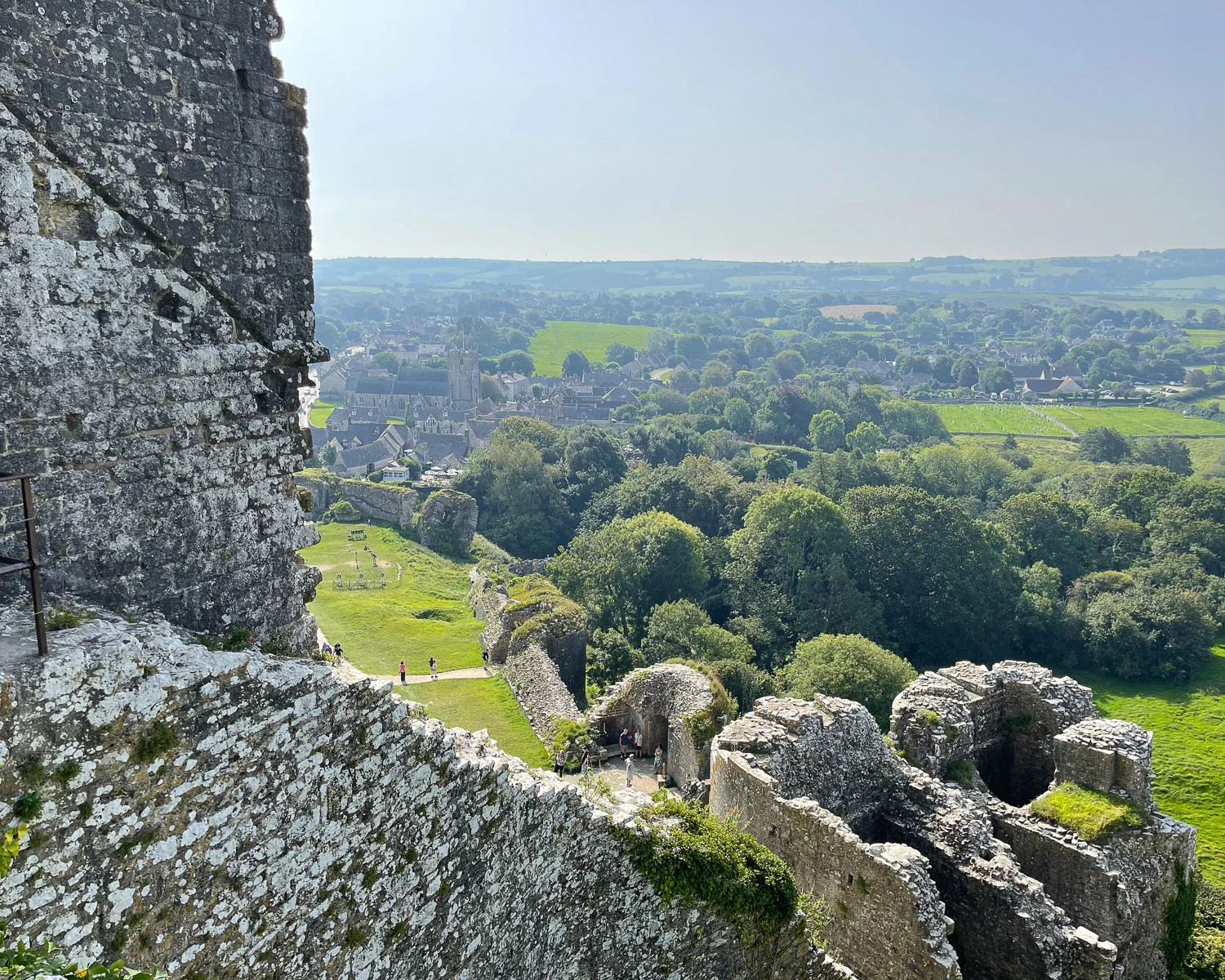
Following your visit, you might like to wander around the pretty village of Corfe Castle, or take a walk in the hills surrounding the castle. Another lovely dog friendly attraction that’s tucked away in Corfe Village is the Corfe Model Village, with a scale model of Corfe, tea room and pretty rose filled gardens.
One of Dorset’s top tourist attractions, Corfe Castle is run by the National Trust: Opening times and entry prices here.
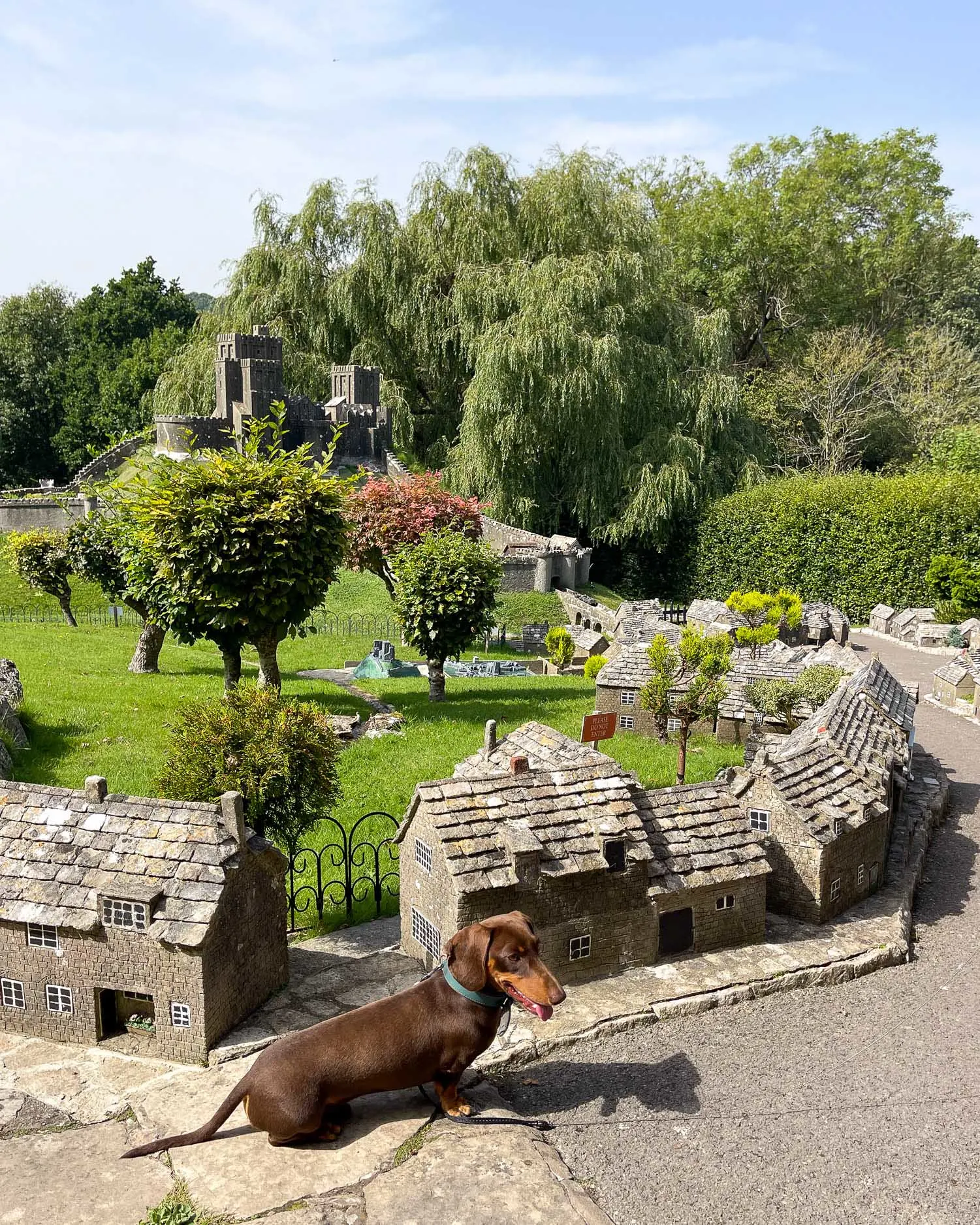
20. Swanage Railway – ride the steam trains
The Swanage Railway is a lovingly preserved heritage railway. Travel on a steam train or vintage diesel locomotive, from Swanage to Norton, with a stop at Corfe Castle station. The railway is mainly run by volunteer enthusiasts and was restored after the once thriving railway line was partly demolished in the 1970s.

On the 25 minutes trip (one way) you’ll get lovely views of the Purbeck Hills and Corfe Castle as you pass by and there are normally around 5 trips per day. Dogs are allowed on the train for a small extra charge.
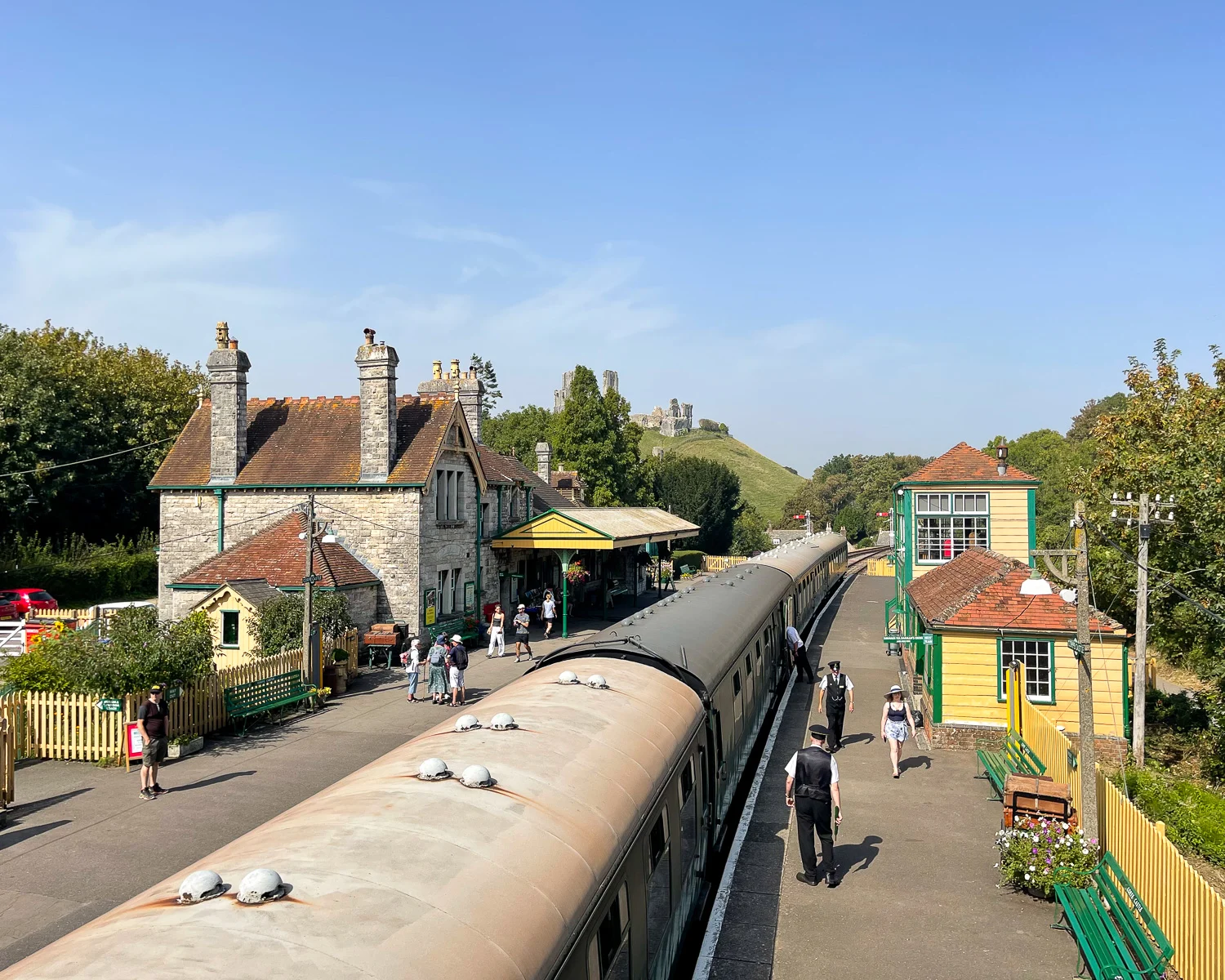
We enjoyed looking around Corfe Castle station while waiting for our train, with its original waiting rooms and knowledgeable volunteers, before taking a short trip up the line to Norton station and back. At Corfe station there’s also a small railway museum (free but donations appreciated), with information and memorabilia about the railway.
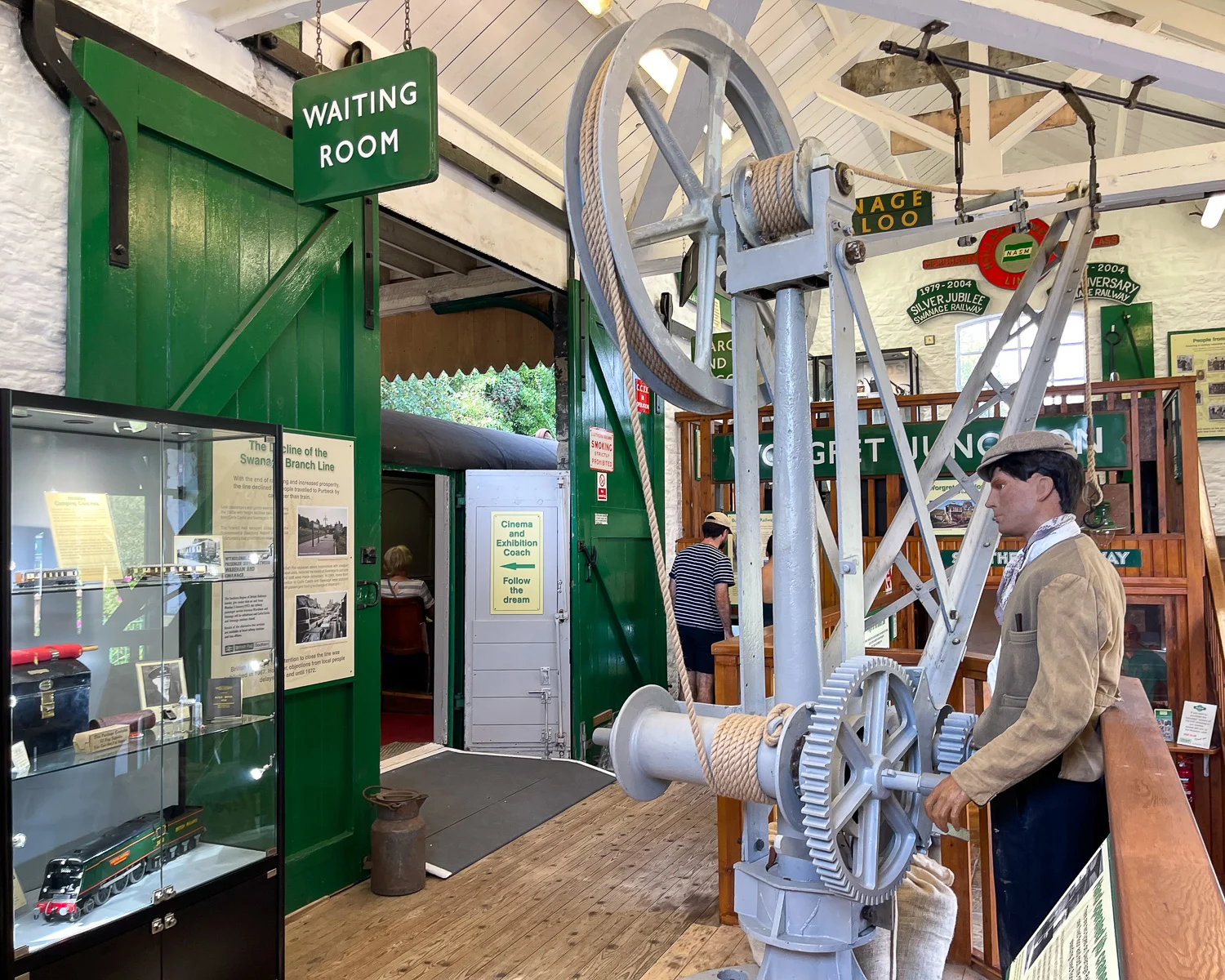
21. Studland Bay and Old Harry Rocks
In the gentle curve of coastline running from Old Harry Rocks to Poole Harbour is Studland Bay. This unspoiled area of heathland and sand dunes is an area of natural beauty run by the National Trust, with miles of sandy shore. There’s a range of different beaches at Studland, from the more remote Naturist beach to Middle Beach and South Beach, both of which have car parks and beach cafes.
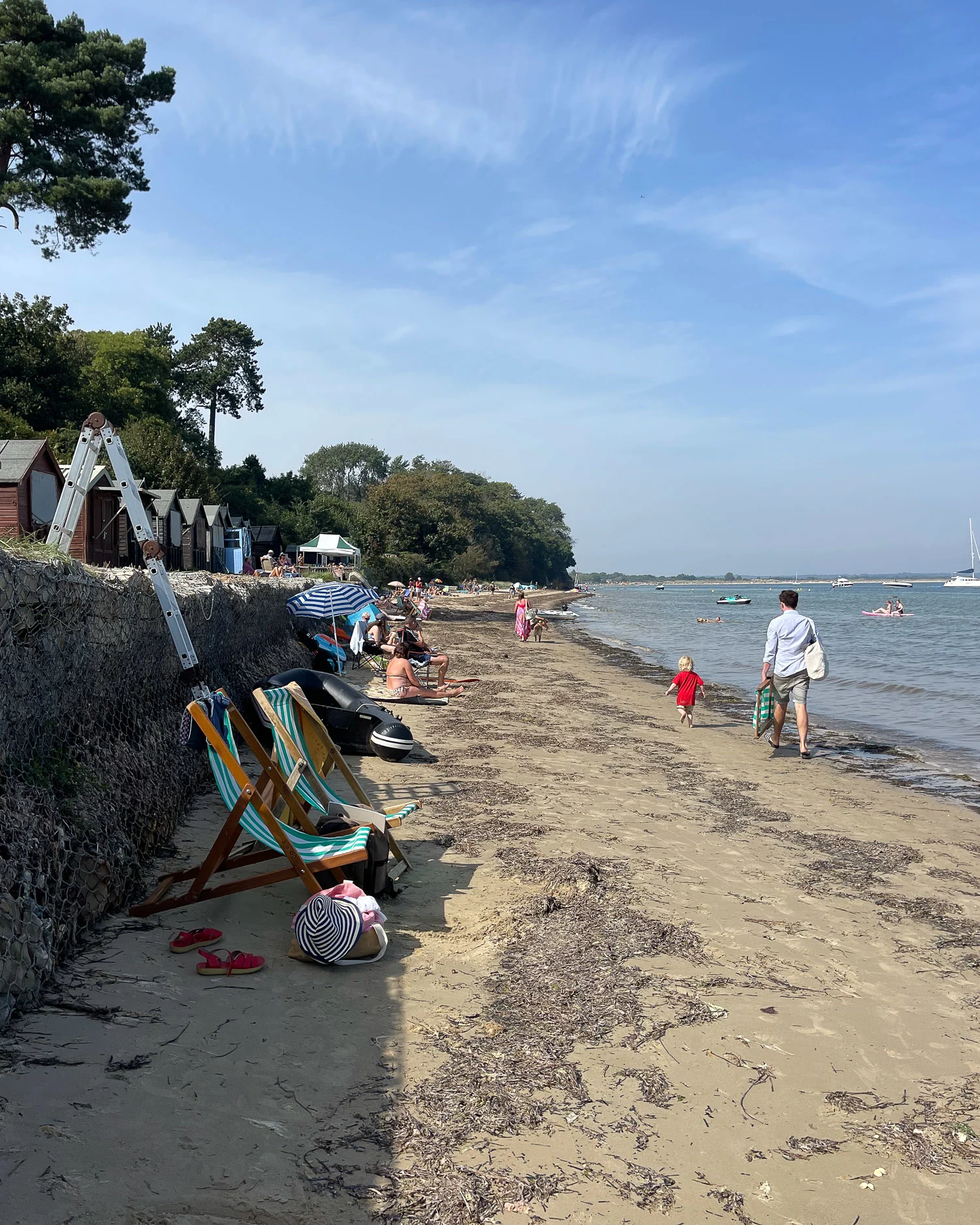
We stopped at Studland South Beach for a picnic on the sand in front of the beach huts, where dogs are allowed. Nearby is The Bankes Arms traditional country pub with a large garden, the Pig on the Beach with its rather smart garden-to-table restaurant and Joe’s Cafe overlooking the beach itself.
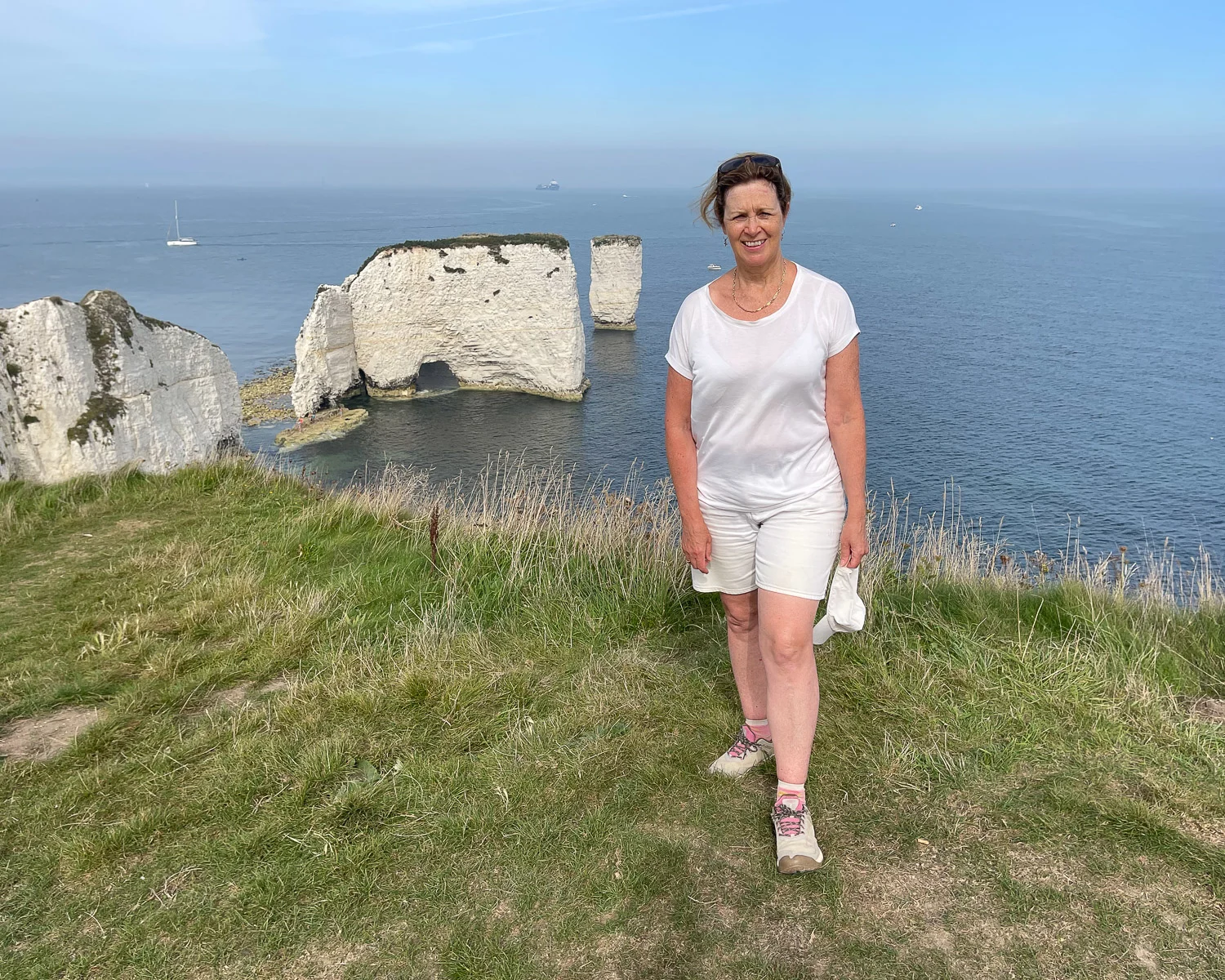
From South Beach an easy path leads to Old Harry Rocks, a string of chalk sea stacks located just off the tip of Handfast Point. After taking in the impressive cliff views, it’s possible to continue the walk along the coastal path to Swanage and beyond.
Look out for seals that occasionally can be spotted around Old Harry Rocks and take care near the unfenced cliff edge when taking photos.
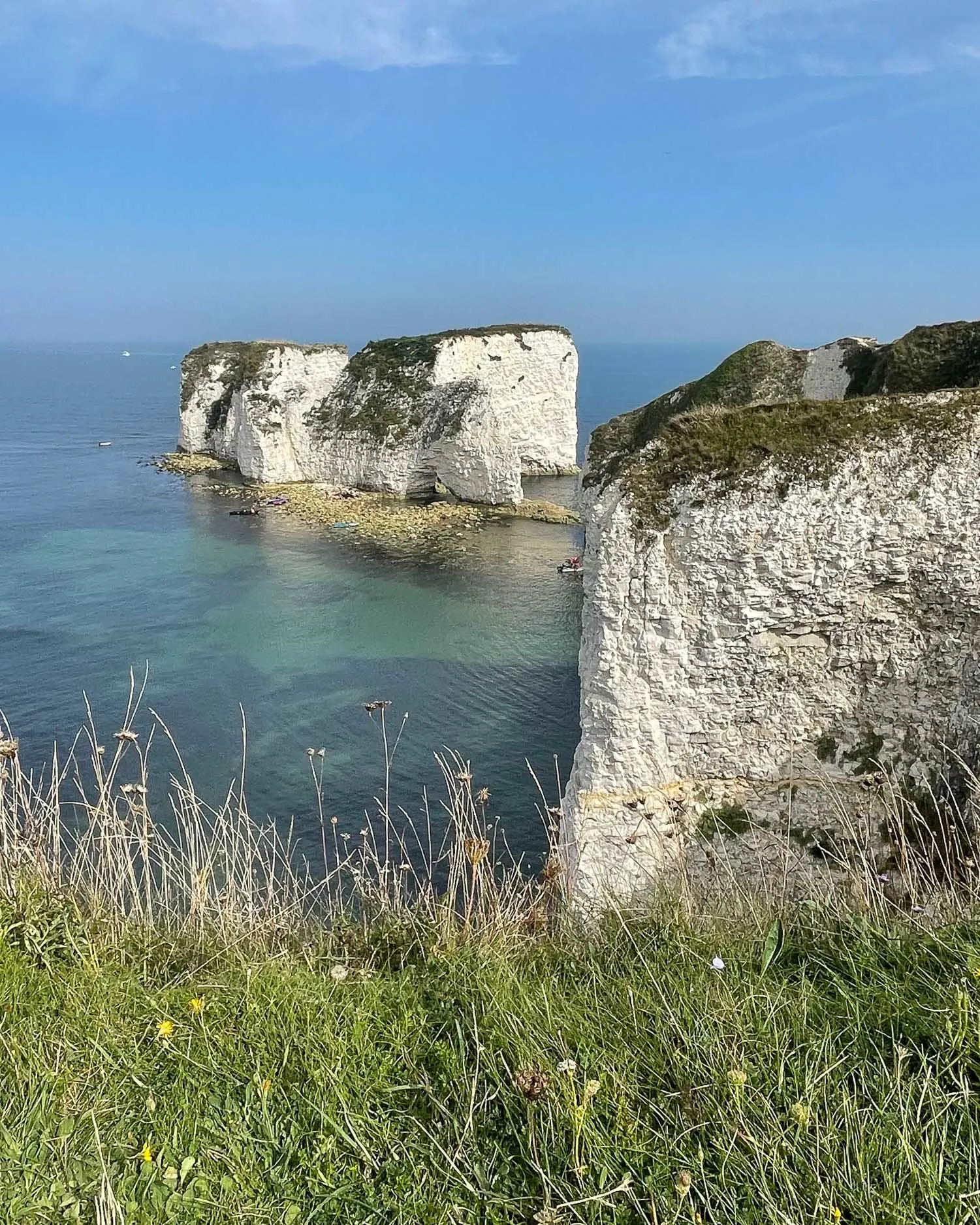
22. Kimmeridge – fossil hunting and the Etches collection
Another place that’s close to Corfe Castle is Kimmeridge Bay, a rocky beach that’s well known for its fossils, rock pools and surfing. From Kimmeridge village the bay is accessible by car via a toll road, with a charge of £6 that includes parking. There’s no charge for cycling or walking along the well marked Kimmeridge Way footpath from the village.
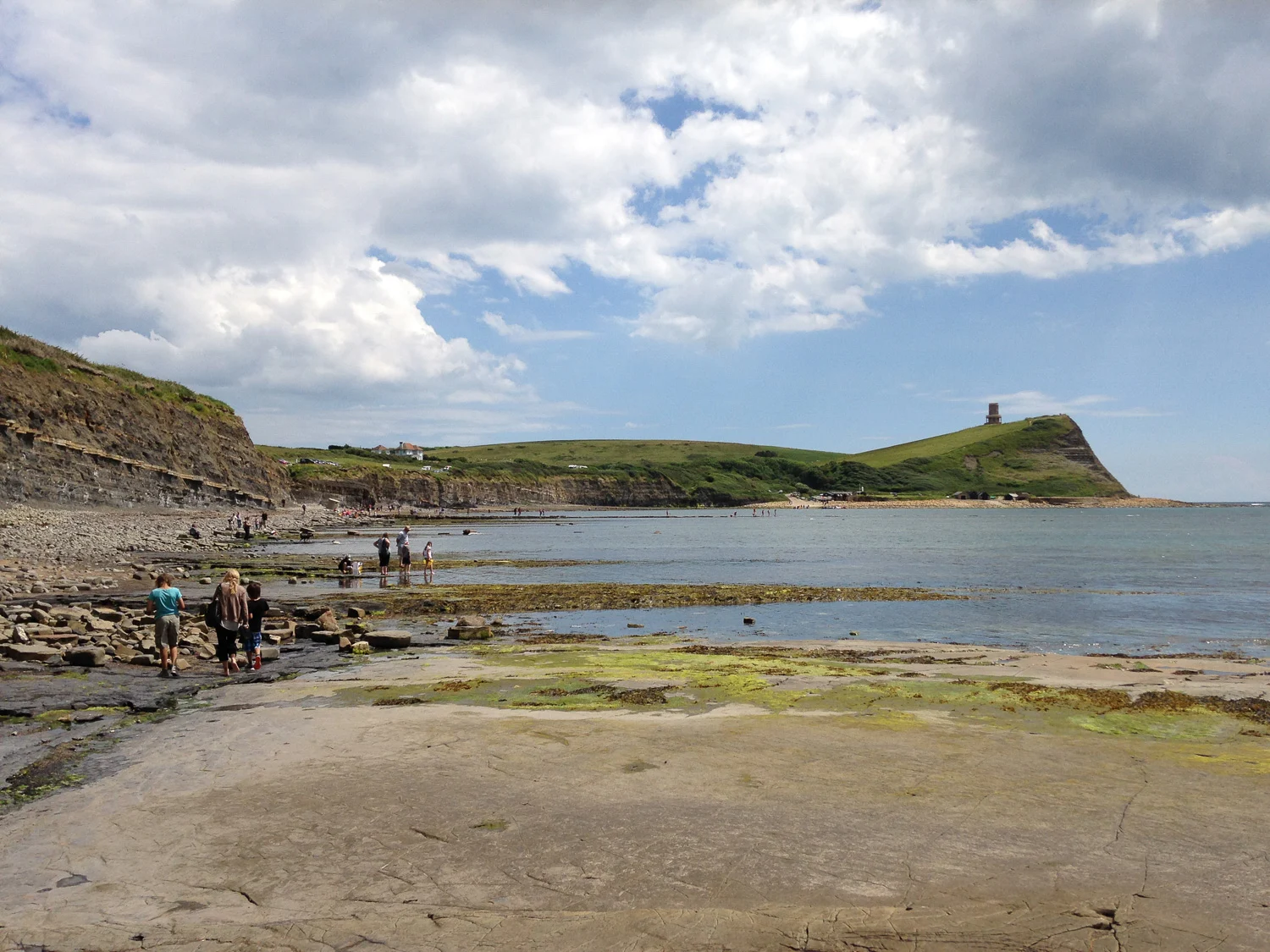
At Kimmeridge Village, which is a little set back from the sea you’ll find The Etches Collection, a modern museum that was purpose built to house the collection of local fossil hunter and paleontologist Dr Steve Etches.
Here you’ll find displays of marine fossils, many of which were collected at Kimmeridge, that tell the story of life in the seas of the Jurassic Coast 157 million years ago.

The museum also runs beach walks to explore the geology and fossils in Kimmeridge Bay, which take place through the winter months from September to April. Just opposite the museum is Clavells, a restaurant with ‘field to fork’ dishes that capture the flavours of Dorset.
23. Sherborne – a pretty town with historic abbey and castles
While Dorset’s gorgeous beaches and coastline are a major attraction, it’s well worth exploring the pleasant rural villages and market towns that lie inland.
One such is the town of Sherborne, where we broke our journey on our drive down from Bristol. Leaving our car in one of the public car parks, we wandered down the semi pedestrianised Cheap Street, full of attractive old buildings and independent boutiques.
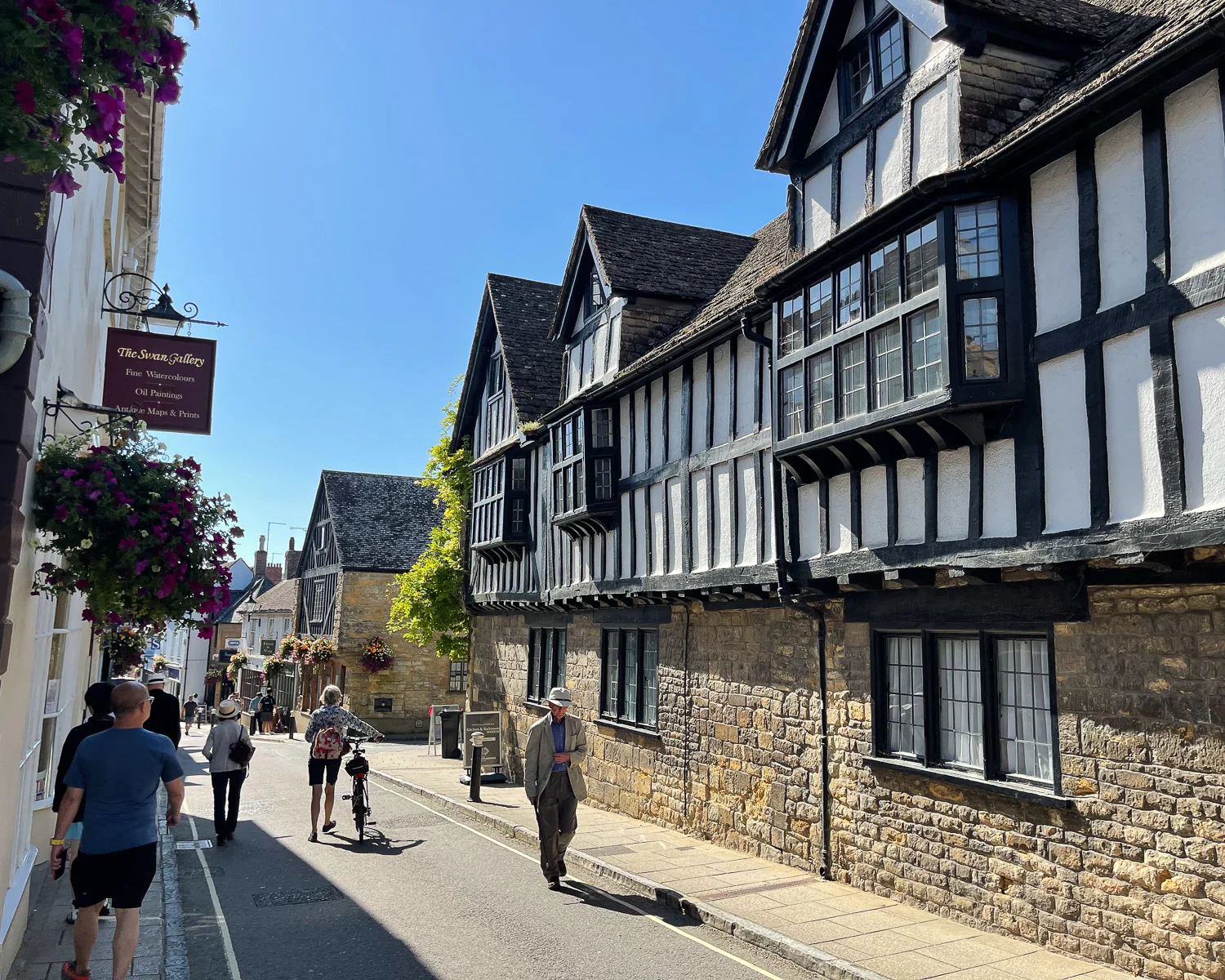
Our walk brought us past the 16th century stone Conduit, used by the monks for washing and into the cloisters of Sherborne Abbey. From the first century until the Reformation, this medieval cathedral served an order of Benedictine monks. Step inside to see the glorious fan vaulted ceiling and stained glass windows, where Sir Walter Raleigh worshipped.

A 20 minute walk across the meadows from here will bring you to Sherborne Castle which was built by Elizabethan courtier, sailor and explorer Sir Walter Raleigh in 1594. In the 18th century, the castle was modernised in the latest fashion by the Digby family and this blend of Tudor and Georgian style is reflected in the fine furnishings and fireplaces.
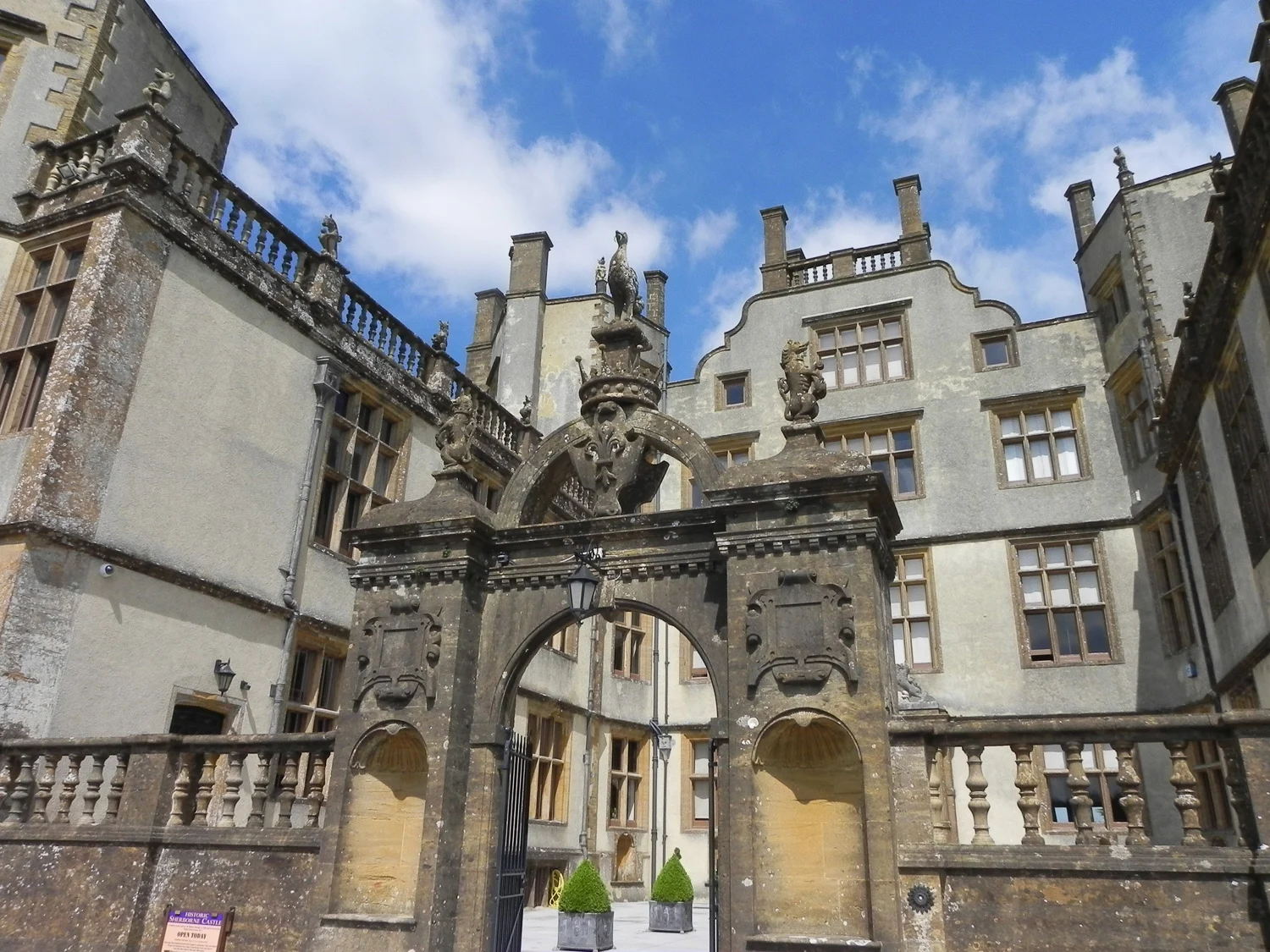
It was at this time that the parklands around the castle and lake were landscaped by Capability Brown, with formal flower borders, walled kitchen gardens and woodland walks.
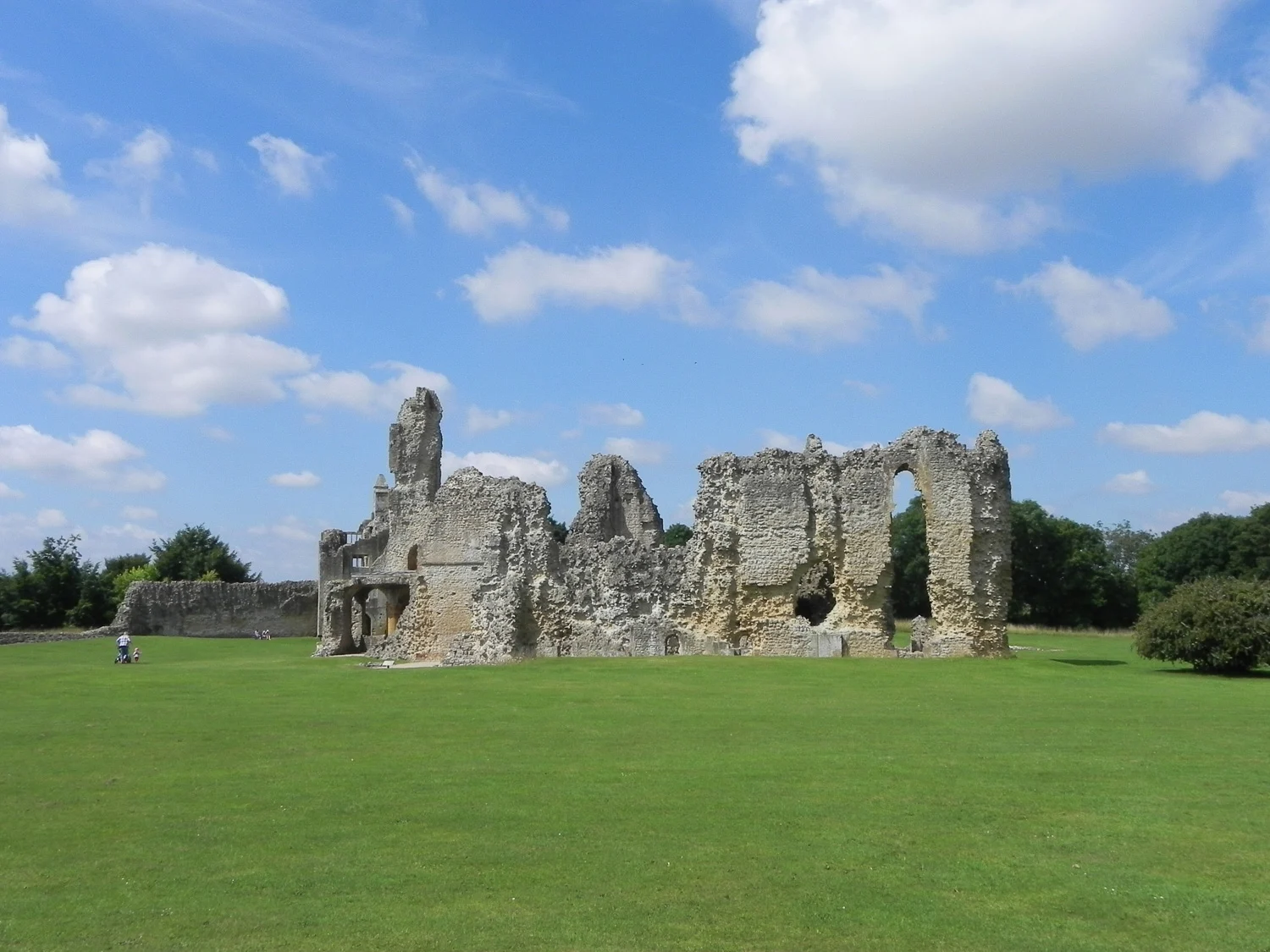
Across the lake is the ruin of Old Sherborne Castle, the original mansion bought by Sir Walter Raleigh but destroyed during the English Civil war. This is run by English Heritage and can be visited with a separate ticket. Read about our previous visit to Sherborne here.
Things to do near Poole
On the eastern border of Dorset are the towns of Poole and Bournemouth. This part of England’s south coast is more densely populated than other parts of Dorset. Poole Harbour is popular with sailors and a small foot ferry runs to Brownsea Island, a nature reserve within the harbour. While we didn’t have time to visit Poole, there are a couple more places to visit nearby that are worth a mention.
24. Kingston Lacey – styled on a Venetian Palazzo
A grand country house, Kingston Lacy is styled like a Venetian Palazzo. It’s filled with artworks and surrounded by parkland and a formal garden. The house, which is run by the National Trust, was the family home of the Bankes Family who used their enormous wealth to embellish the house over the centuries.
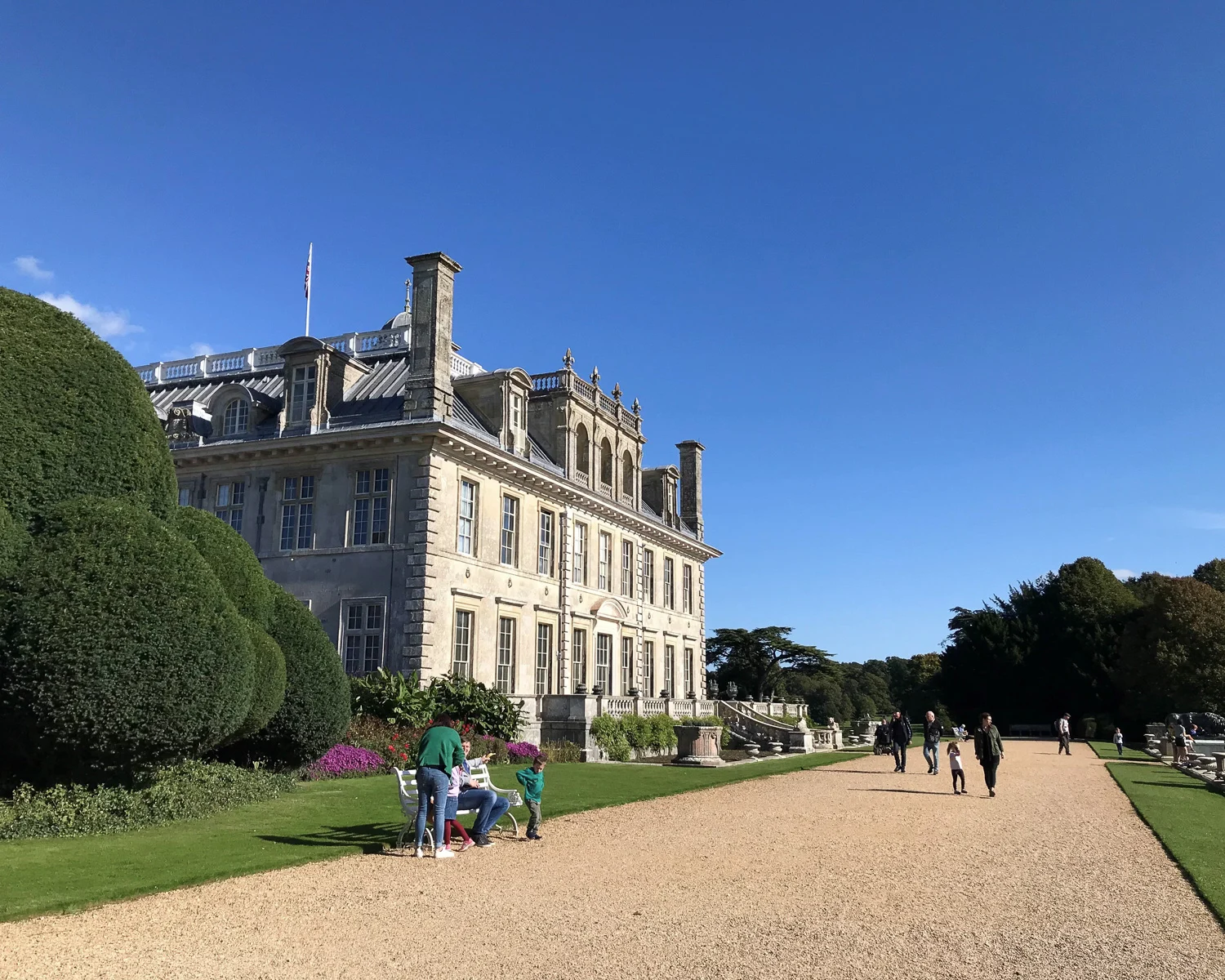
Kingston Lacy as we see it today was remodelled by William John Bankes between 1834 and 1855. Forced to live in Venice due to his homosexuality which was illegal in England at the time, he collected artworks and Egyptian artefacts that were sent home to his house.
Surrounding the house are classic English borders, a Japanese garden and a kitchen garden that you can also visit.
25. Sandbanks beach
Across Poole Harbour from Studland Bay is Sandbanks Beach, which is an extension of the beautiful sandy shore on the Studland side. The narrow strip of land that encircles Poole Harbour has the beach on one side and a road on the other. Sandbanks is also known for the multi million pounds houses that overlook the beach, offering some of the most expensive real estate in England.
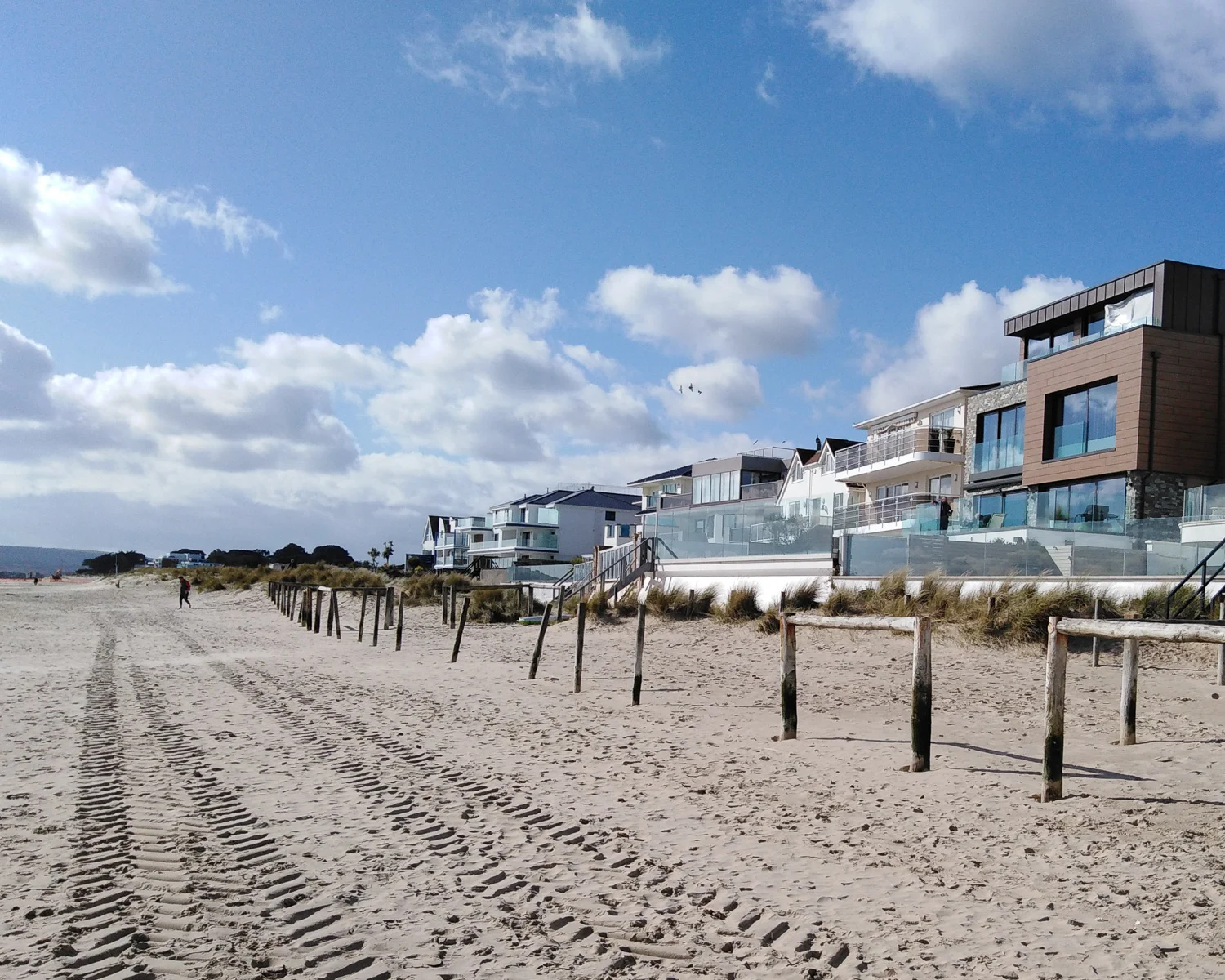
A ferry for both cars and foot passengers crosses the mouth of Poole harbour three times an hour, taking you from Studland to Sandbanks and back. There’s no need to book and you can pay either on the ferry or at the toll boxes.
A smaller ferry for foot passengers also runs from the same location in Sandbanks to Brownsea Island, a nature reserve in Poole Harbour that’s known for its native red squirrels.
Things to do in Dorset with Dogs
With our special guest Bertie the dachshund in tow, we made a point of visiting as many dog friendly places in Dorset as possible. For more on where to stay and what to do with your dog in Dorset, read our article on dog friendly cottages in Dorset.
Here are some of the dog-friendly things that Bertie enjoyed:
Dog friendly cottages:
We recommend a cottage stay if you are travelling with your dog, as it’s more relaxing and less restrictive than some other types of accommodation. Use the filter on the Classic Cottages website to find their holiday cottages that take dogs.
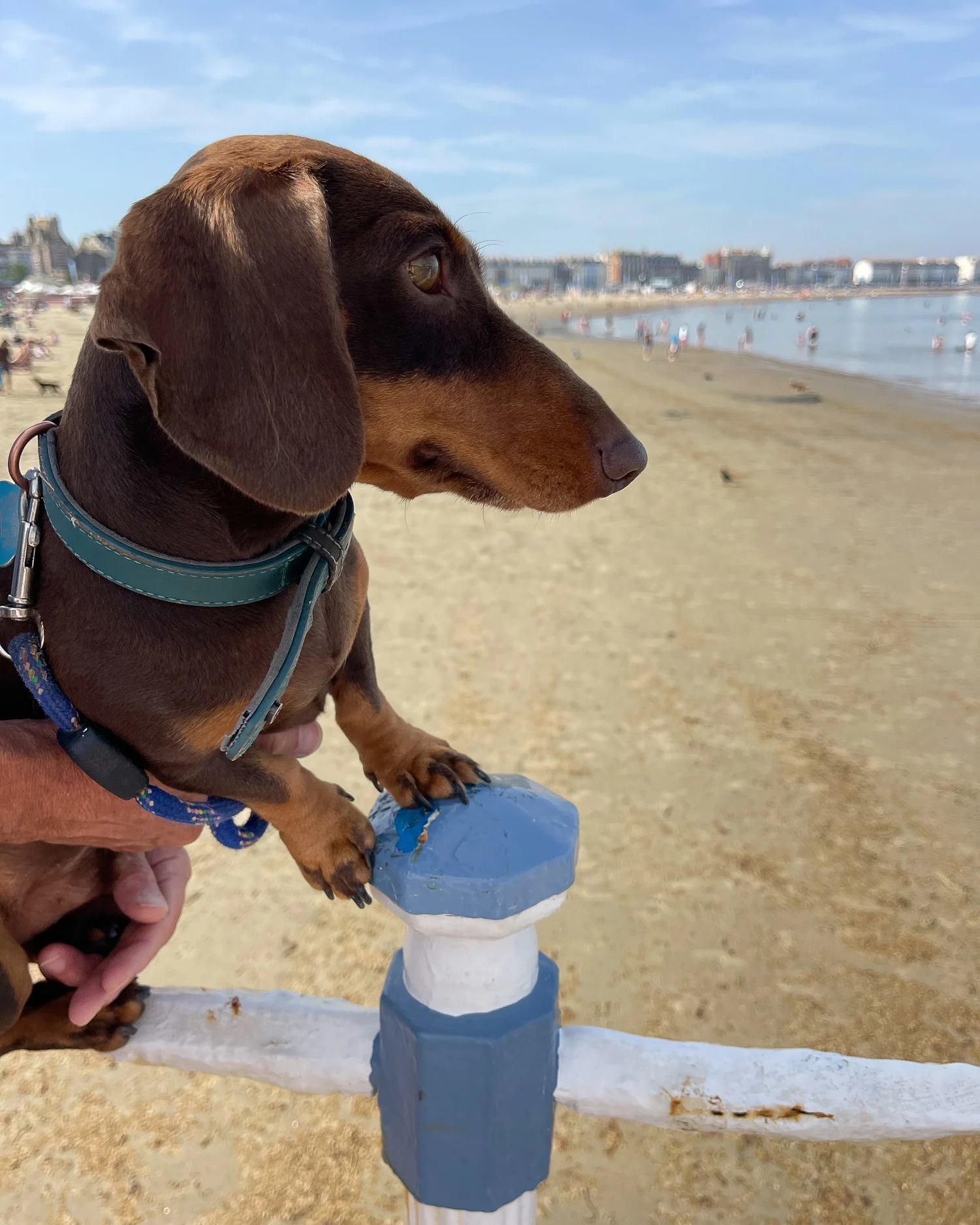
Dorset’s dog friendly beaches:
There’s an endless choice of beaches to visit in Dorset although some do have restrictions, especially between 1 April and 30 September. Almost all beaches have an area to exercise your dog even in summer and on the less busy and wilder beaches you can let your dog off the lead year round.
Dorset’s countryside walks:
The beautifully rural and gently rolling countryside of Dorset offers numerous country walks for your dog. Most cottages like the one we stayed with Classic Cottages will have information about the best local walks near where you’re staying.
Dorset’s dog-friendly heritage attractions:
While most stately homes only allow dogs in their parklands Bertie enjoyed our visit to Corfe Castle. He was also welcome to travel on the heritage steam trains of Swanage Railway and found that Corfe Model Village was just the right size for him to sniff around.

Dorset dog friendly gardens:
Bertie loved visiting the dog friendly Abbotsbury Subtropical gardens, with its shady paths and welcoming cafe. We found that the gardens that don’t have a house to visit, generally accept dogs on leads – try the gardens at Compton Acres, Cranborne Manor Gardens, Exbury Gardens, Minterne Gardens, and the Walled Garden at Moreton.
Dorset dog friendly pubs and restaurants:
Almost all the pubs we came across in Dorset welcome dogs, especially those near a beach or in the countryside. Many country restaurants and beach cafes also welcome dogs, but it’s best to check online before you visit in case they are allowed only in certain parts of the restaurant such as outdoor seating.
Historic houses and castles in Dorset
If you are a history buff like us, you’ll enjoy visiting Dorset’s historic buildings and gardens, some of which are run by the National Trust in Dorset.
Max Gate – The red brick house built by Thomas Hardy once he had reached some success and where he wrote novels such as Tess of the D’Urbervilles.
Thomas Hardy Birthplace – The pretty cob and thatch cottage was built by Thomas Hardy’s grandfather and was where he was born.
Corfe Castle – A picturesque ruined castle that was built by William the Conquerer and partly demolished during the English Civil war.
Kingston Lacy – A grand country house, styled like a Venetian Palazzo filled with artworks and surrounded by parkland and a formal garden.
White Mill – An old water mill on the Kingston Lacy estate, set by the River Stour which can be visited separately from the Kingston Lacy House.
Clouds Hill – The tiny cottage in the woods, used as a retreat by T. E. Lawrence, better known as Lawrence of Arabia.
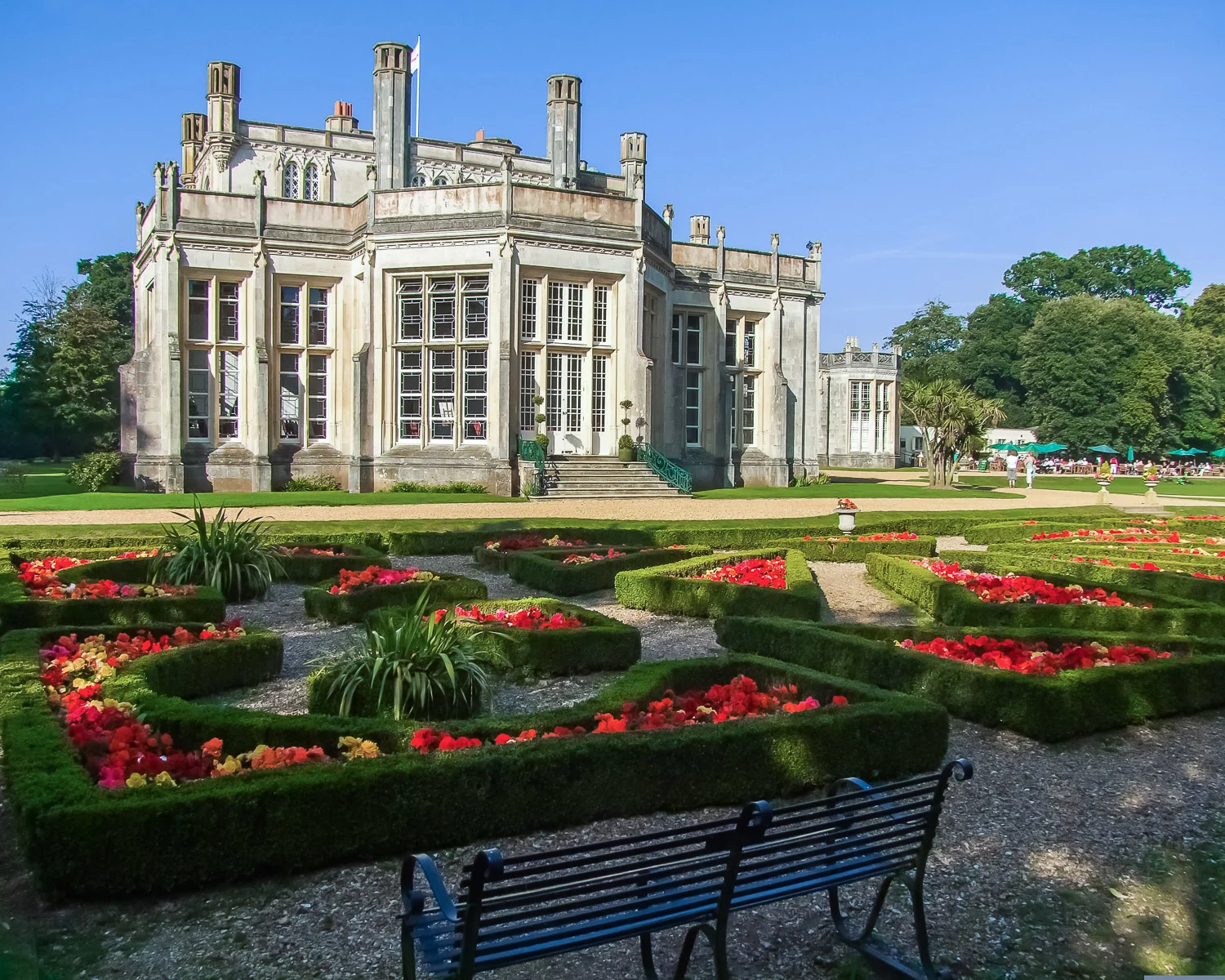
Highcliffe Castle – A historic mansion located close to Bournemouth within 14 acres of gardens and grounds. The house is used as a wedding venue but some rooms are normally open to visit.
Portland Castle – A Tudor coastal fort built by King Henry VIII that overlooks Portland Harbour.
Lulworth Castle and Park – A restored 17th century hunting lodge near Lulworth Cove with extensive grounds.
Athelhampton House and Garden – A Tudor manor house with formal gardens near Dorchester.
Gardens in Dorset
Check out our list of the most beautiful gardens in Dorset to visit, some of which allow dogs on a lead.
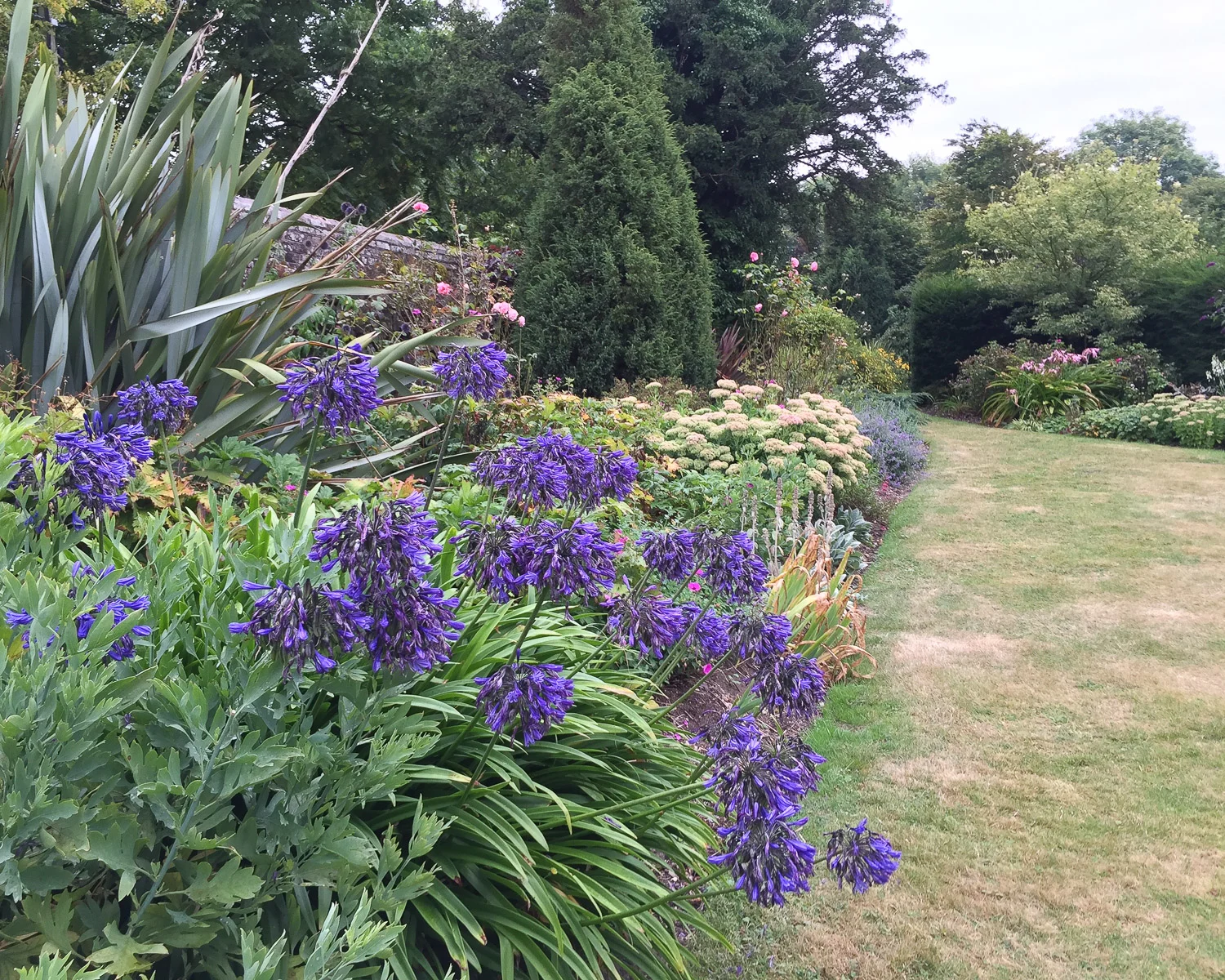
Abbotsbury Subtropical Gardens – Lush gardens with water features and a walled garden in the village of Abbotsbury near Weymouth.
Bennett’s Water Gardens – Home of the National Plant Collection of Water Lilies with a tropical house and woodland walks near Weymouth.
Compton Acres – Ornamental gardens for all seasons with Heather gardens, Japanese gardens and a wooded valley near Poole.
Cranborne Manor Gardens – A traditional English garden surrounding an ancient Manor House near Cranborne.
Mapperton Gardens – Italianate formal gardens with topiary within a small wooded valley near Beaminster.
Minterne Gardens – Tranquil Himalayan gardens, known for the azaleas and rhododendrons planted around streams and waterfalls, near Dorchester.
The Walled Garden, Moreton – A garden with different borders and areas for all year interest, with plant shop and cafe.
Sculpture by the lakes – A sculpture park set in 26 acres around lakes and streams, together with more formal garden areas and a Maker’s yard, close to Dorchester.
More places to stay in Dorset

Seymour Barn – book to stay in this 2 bedroom dog friendly converted barn in the countryside near Bridport
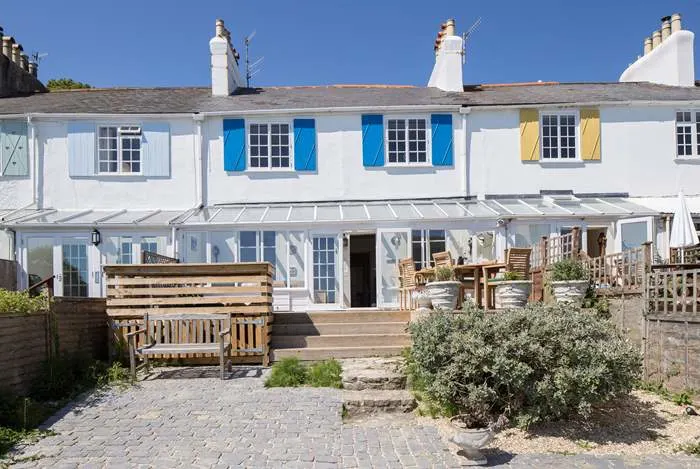
Cobb Cottage – a 3 bedroom dog friendly coastguard’s cottage near the beach in Lyme Regis
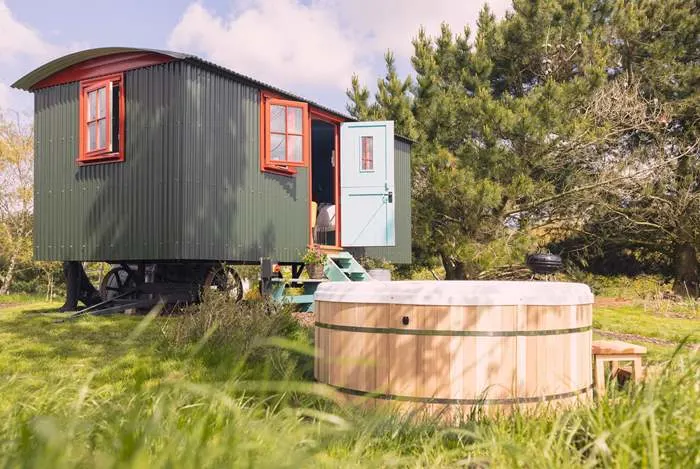
Toby’s Hut – a colourful dog friendly shepherd’s hut for 2 people with hot tub
Where is Dorset?
Dorset is a country located on England’s southern coast, between Hampshire to the east and Devon to the west. It’s easy to reach Dorset from London (3 hrs by car or train) or Heathrow Airport (2 hrs by car or 4 hrs by train via London).
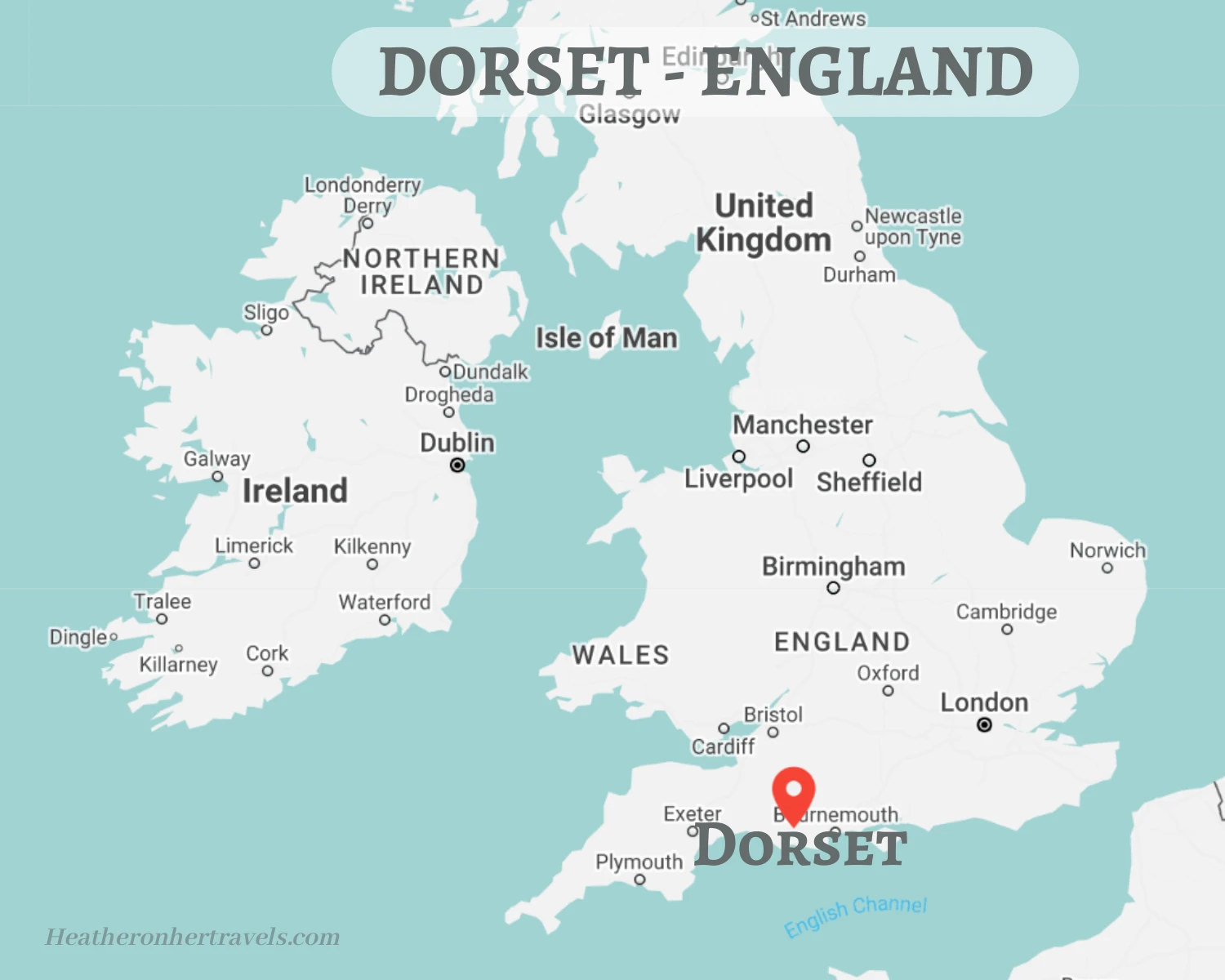
Map of best places to visit in Dorset
To find the places mentioned in the article on a map you can click on the link for our map of places to visit in Dorset or click on the map below.
Read Next
Ready to plan your trip? Explore dog friendly cottages in Dorset
More places to visit in Dorset
Visiting Thomas Hardy Country in Dorset
Cycling in Dorset on the Jurassic Coast
Pin it!
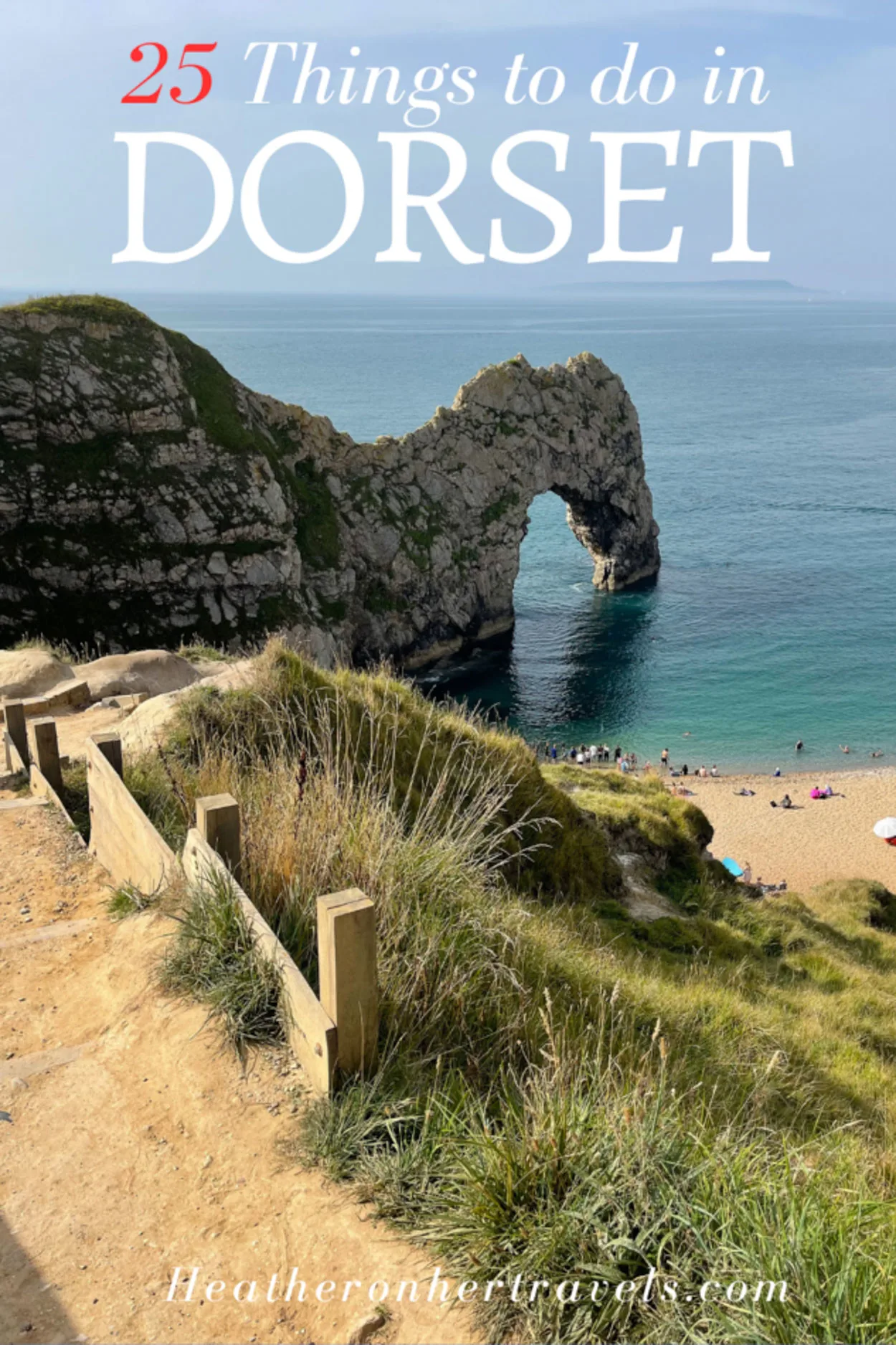
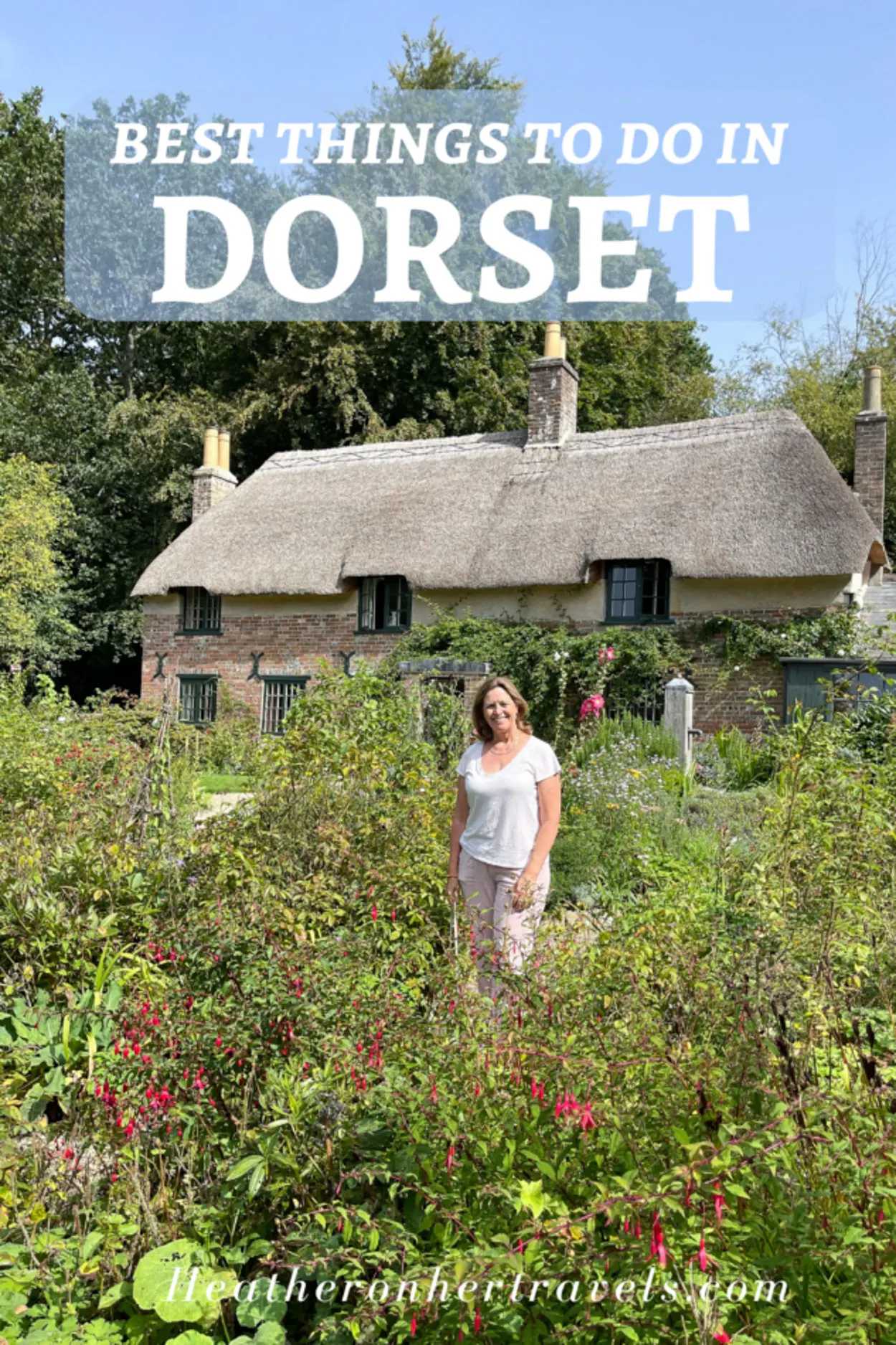
Our Cottage stay in Dorset was sponsored* by Classic Cottages.
* More info on my policies page
This article is originally published at Heatheronhertravels.com

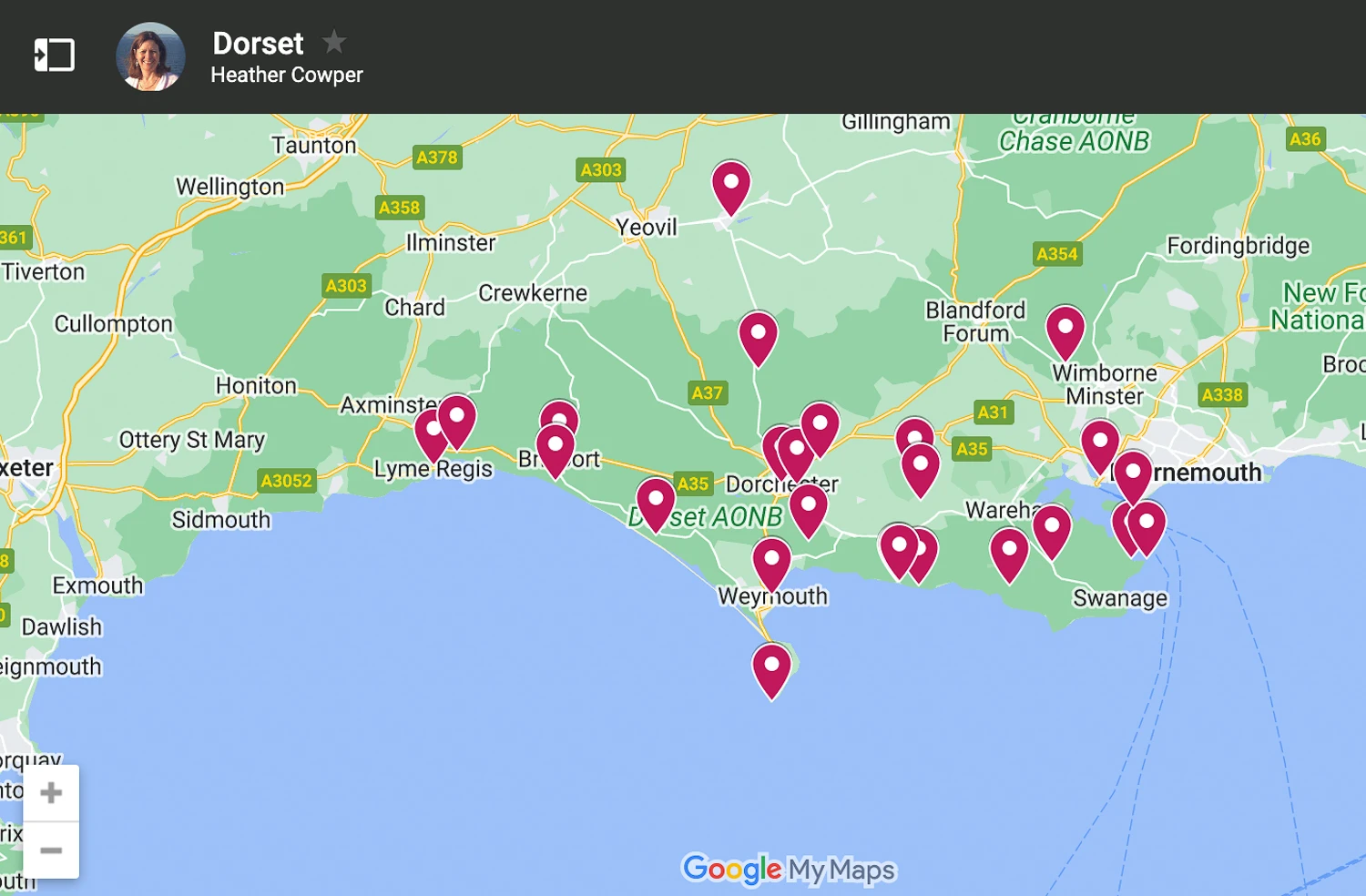



Hels
Thursday 28th of September 2023
When spouse and I lived in Britain many many decades ago, we thought we would never be able to spend time on the beaches. But that was not true, once locals recommended Weymouth, Lyme Regis and Bridport. After a couple of years away, I didn't want to go home :)
Heather Cowper
Thursday 28th of September 2023
@Hels England's beaches are some of the most beautiful in the world, if only the sun always shone on them!